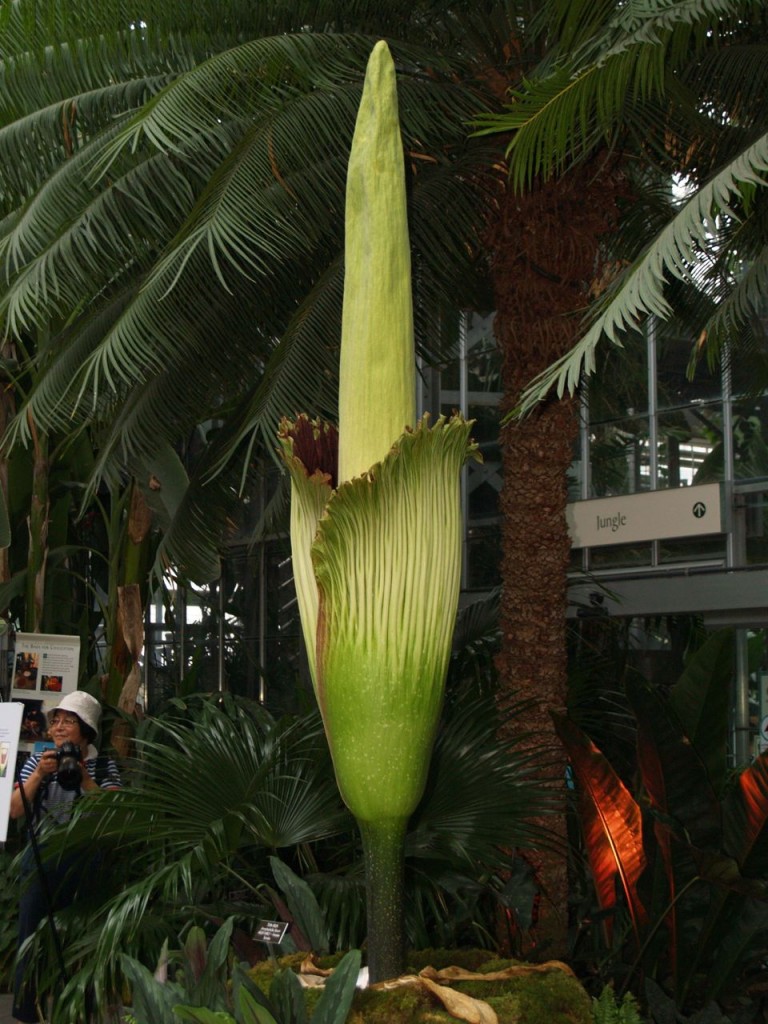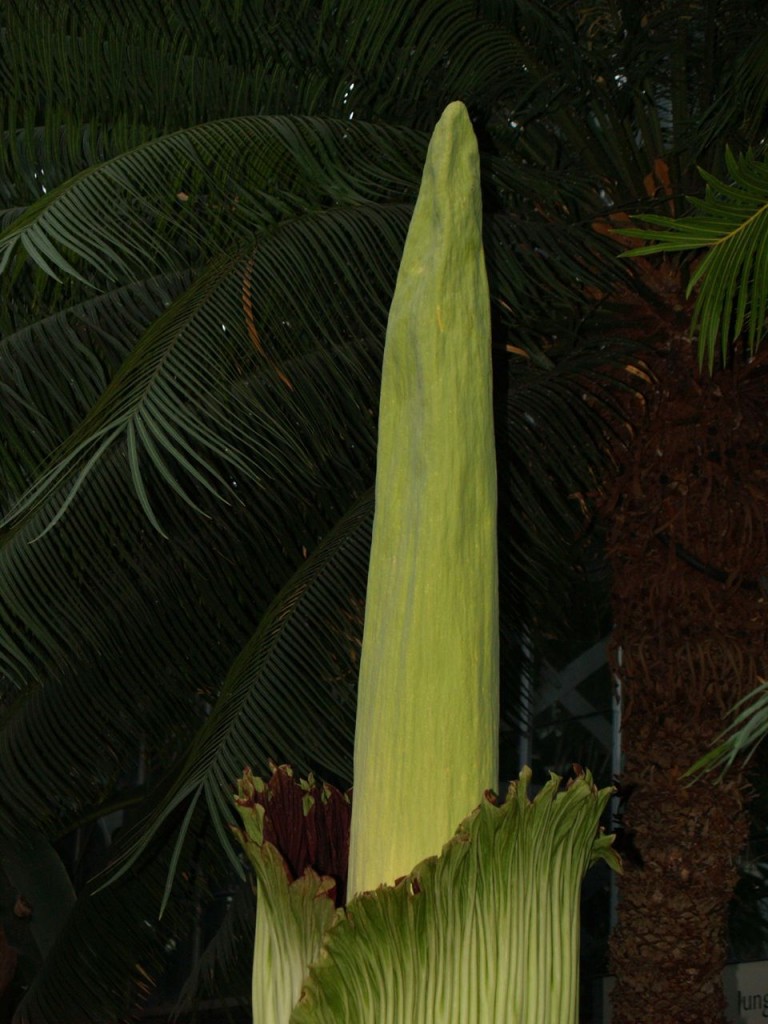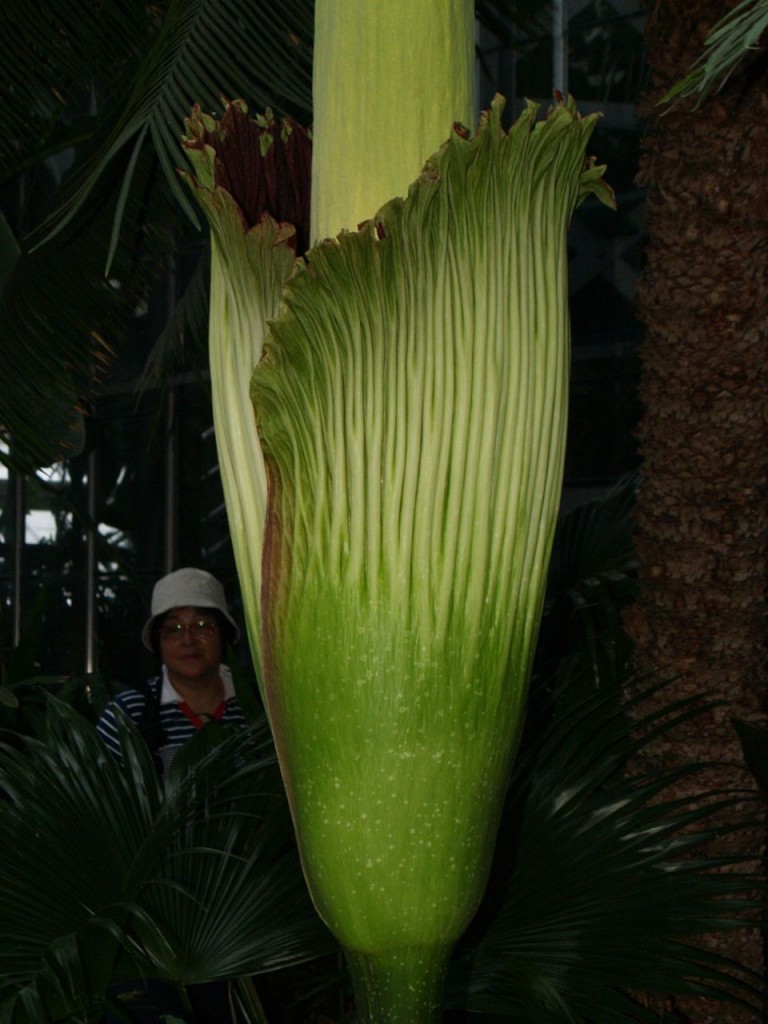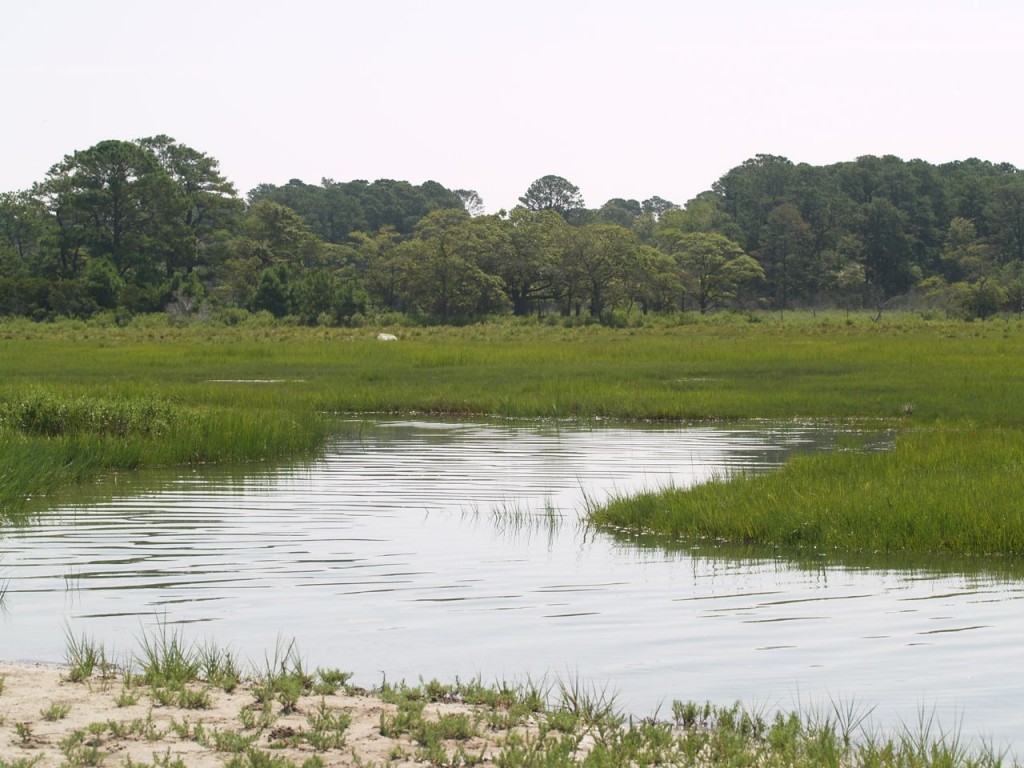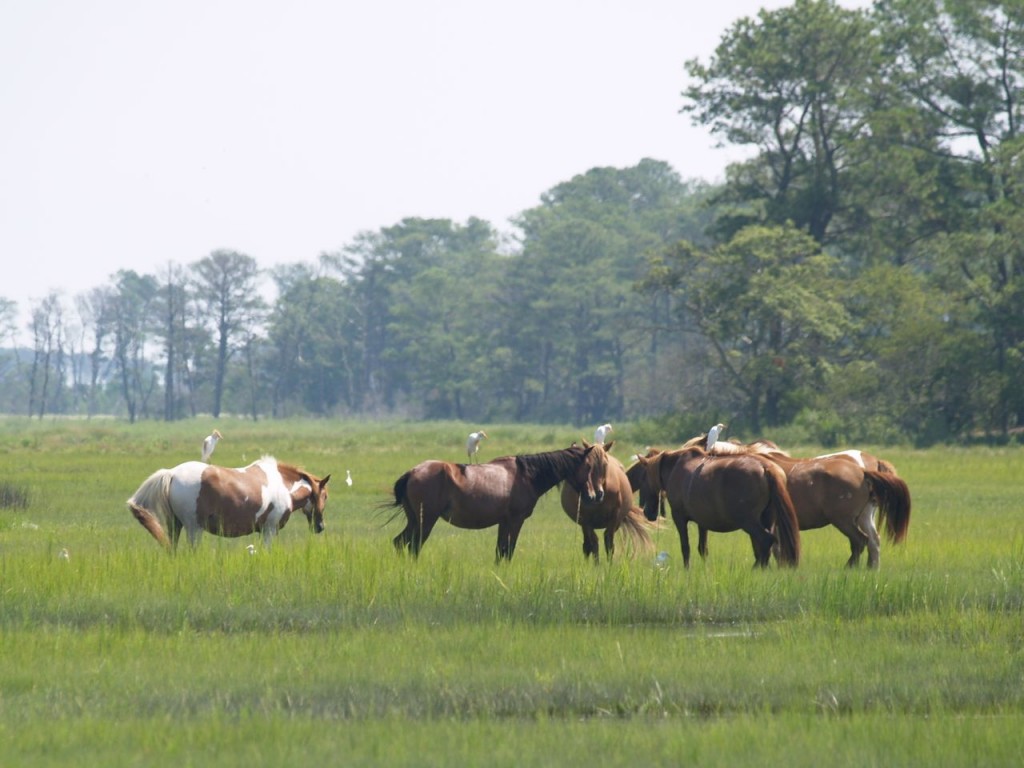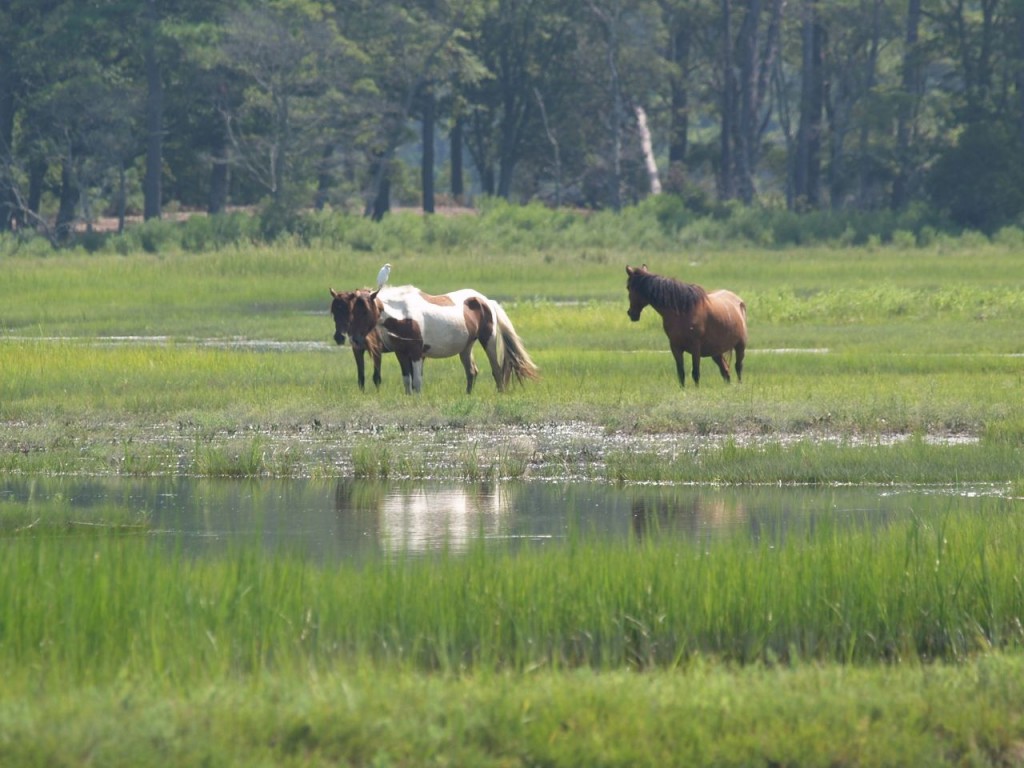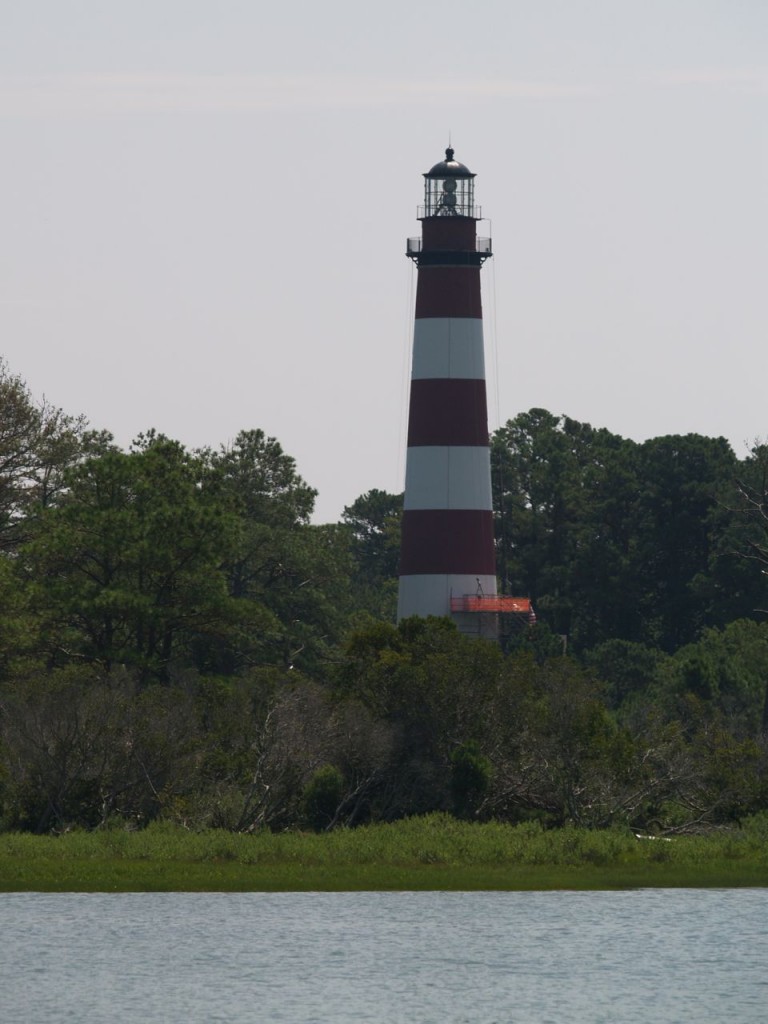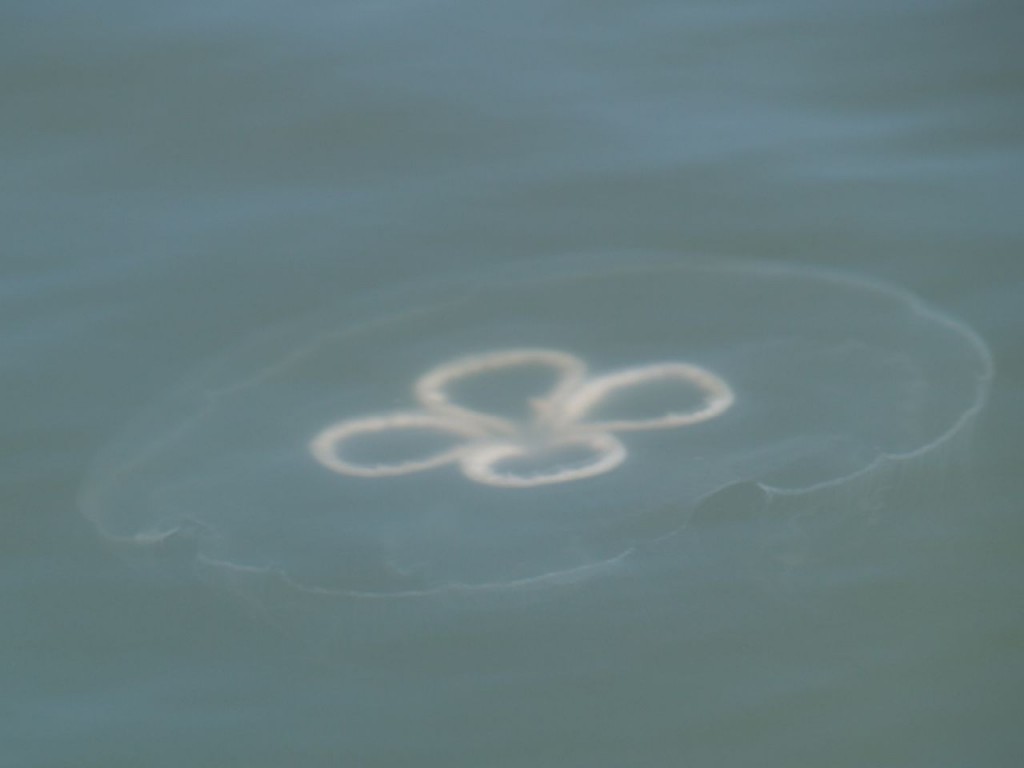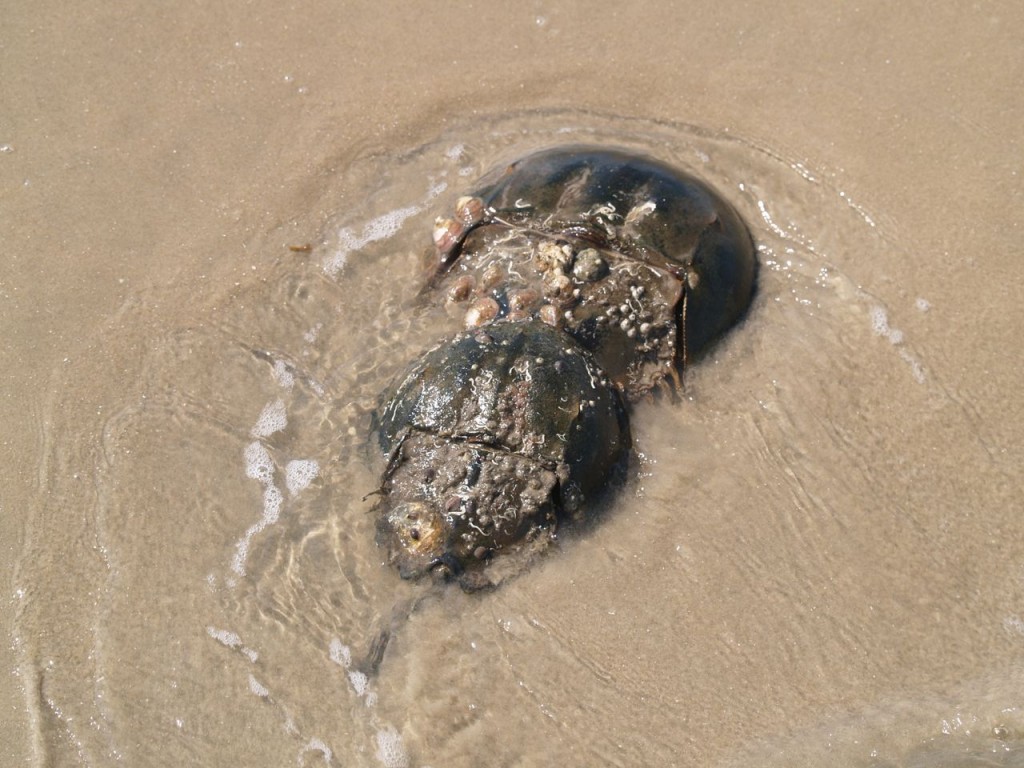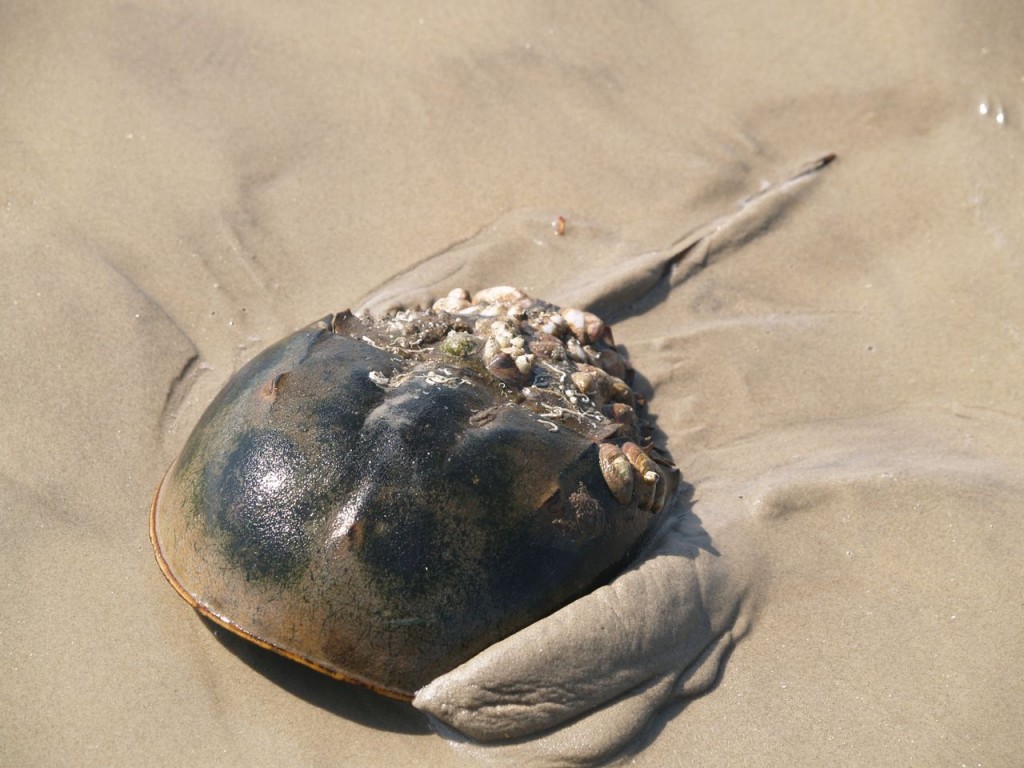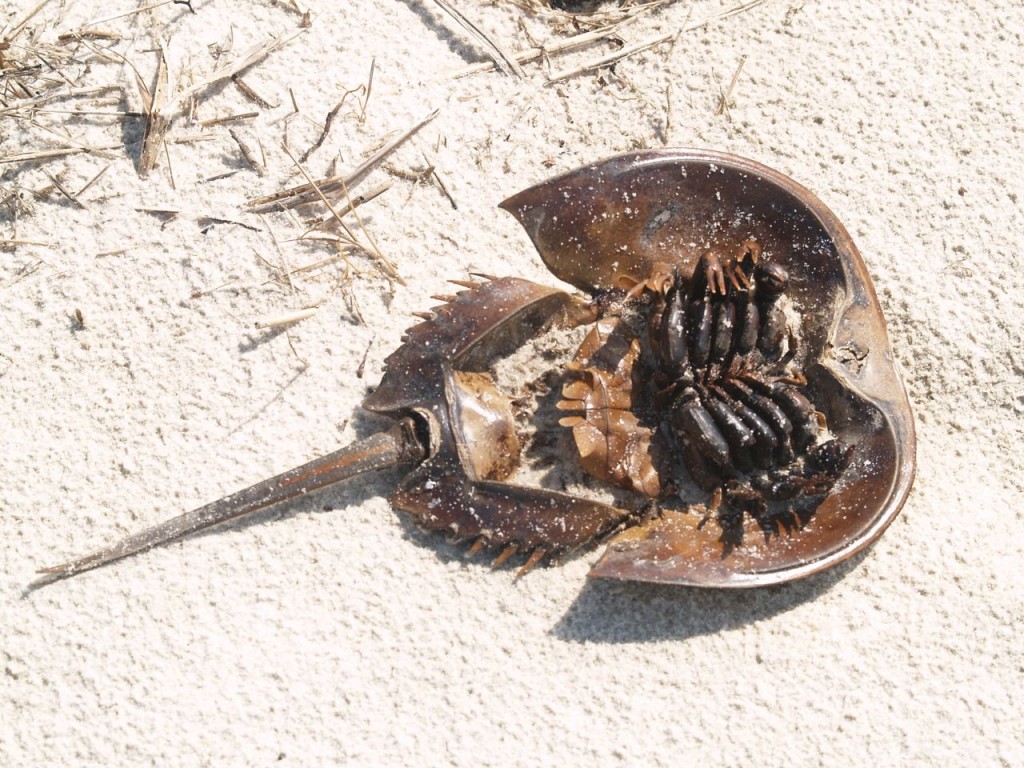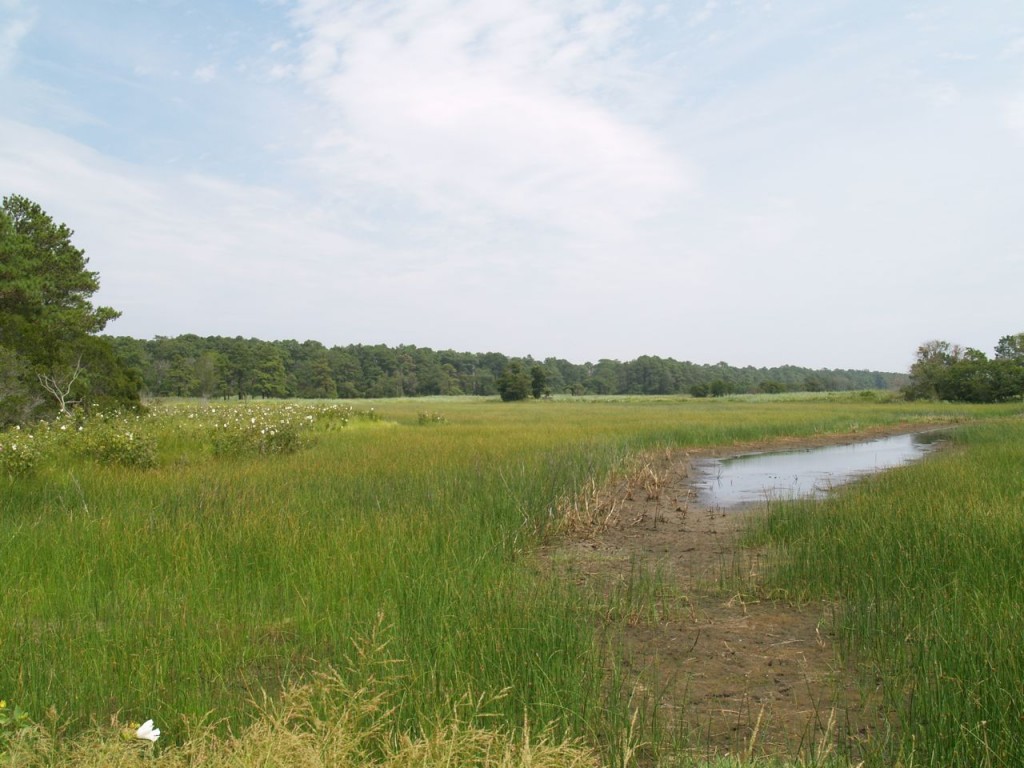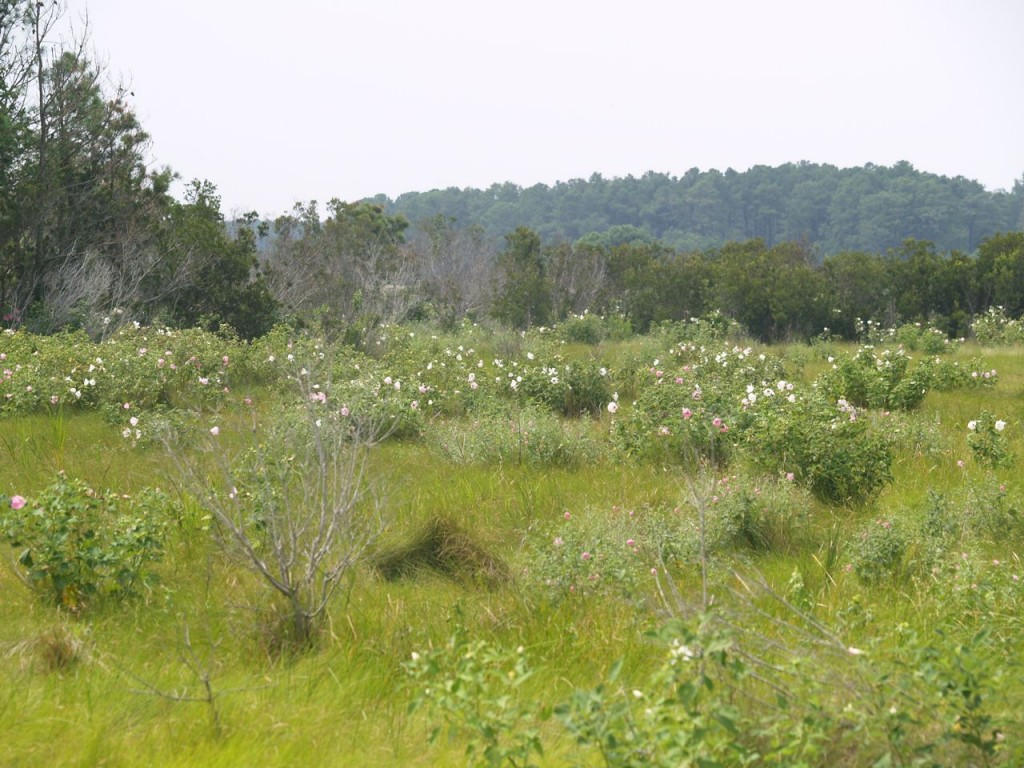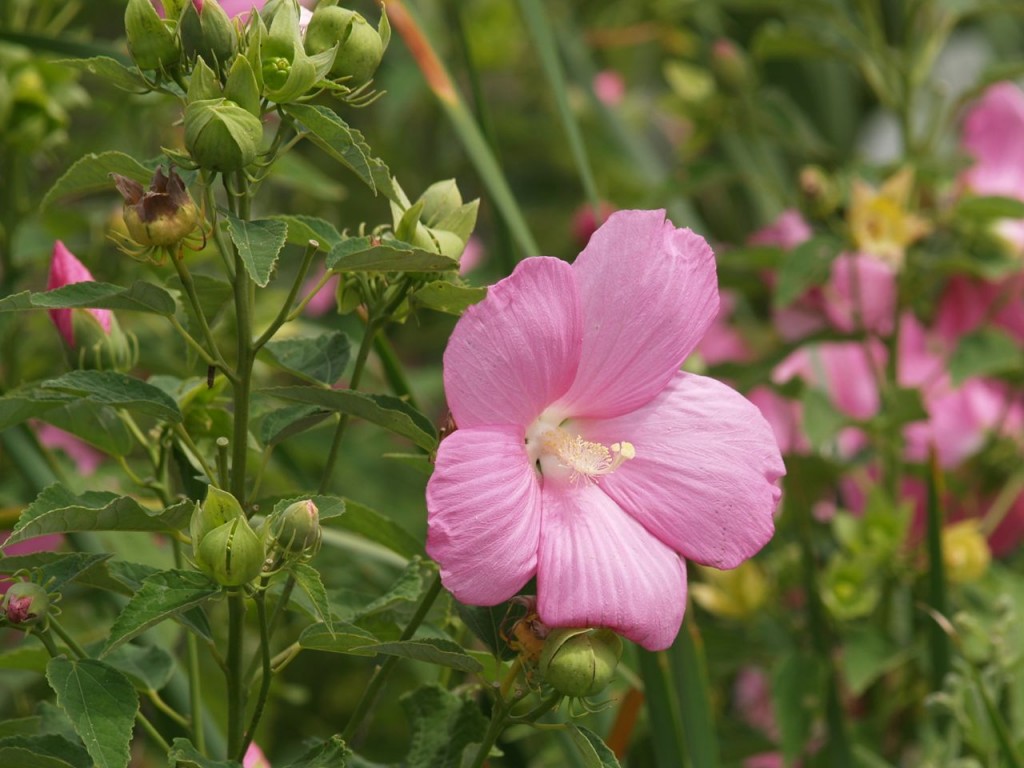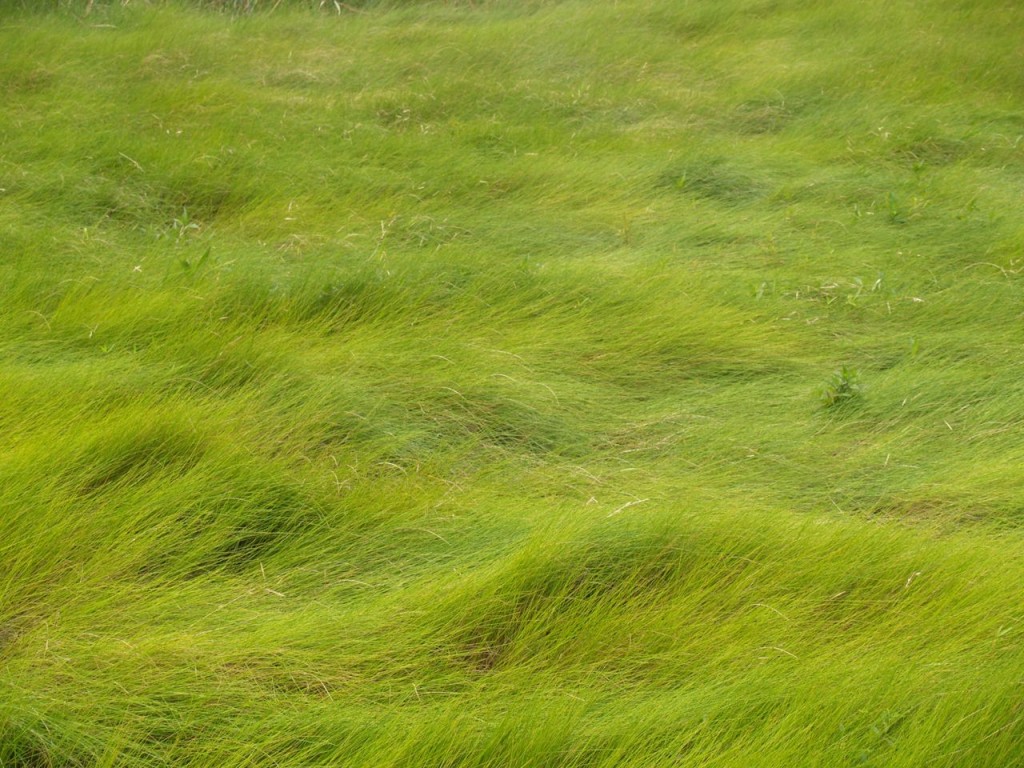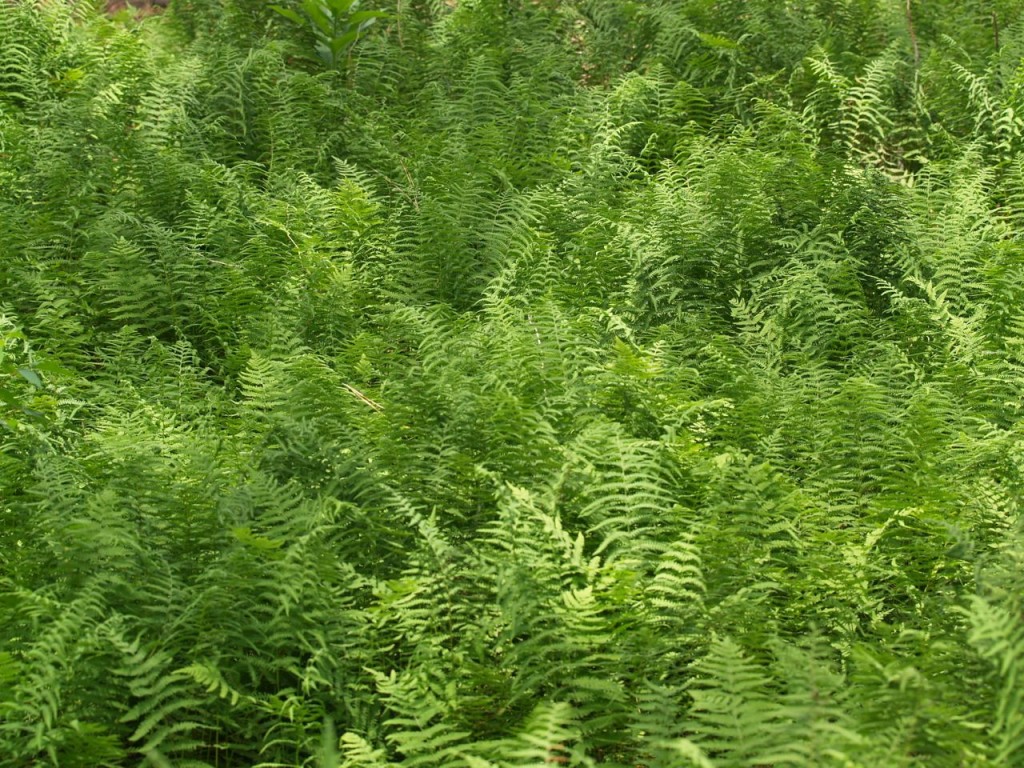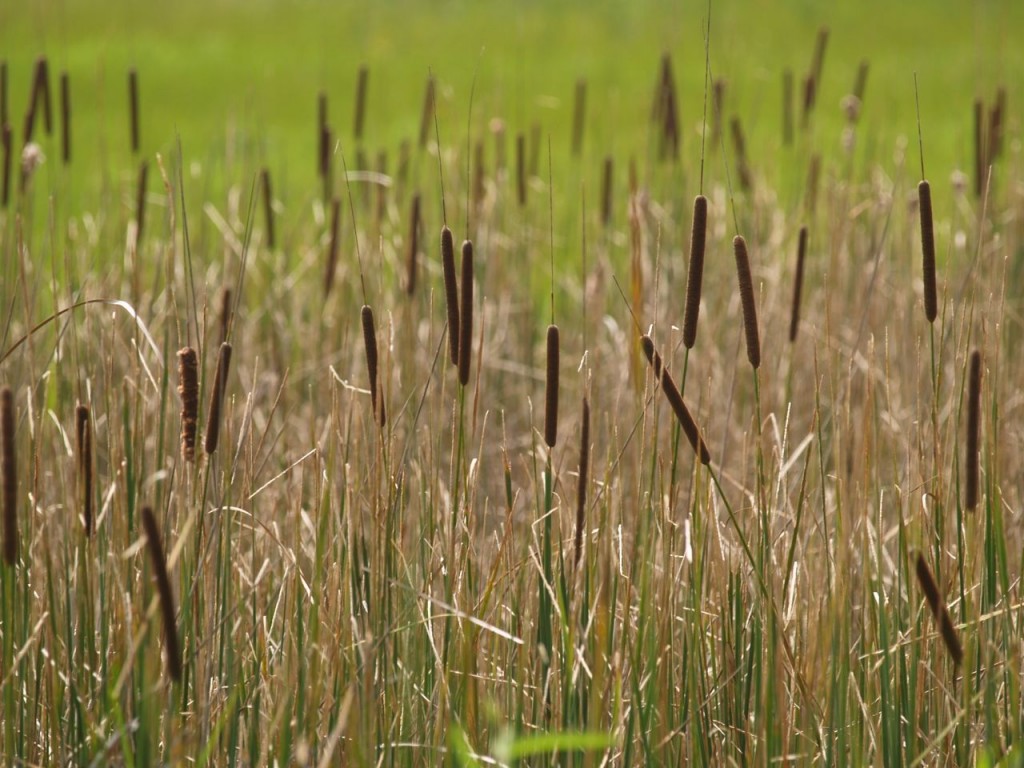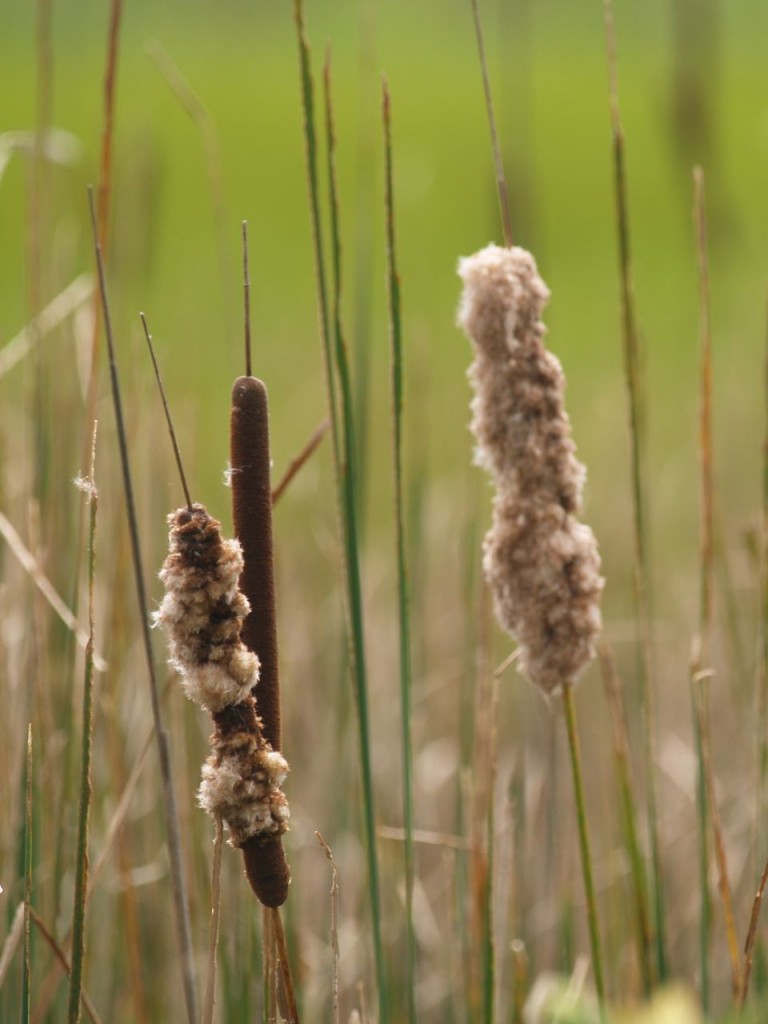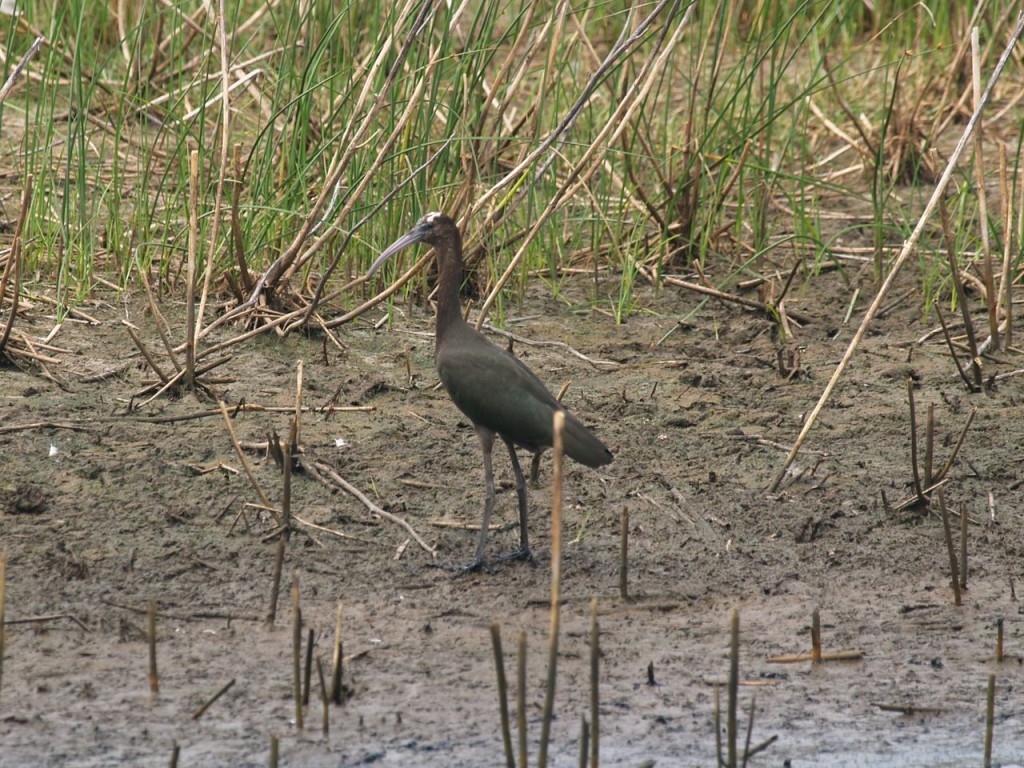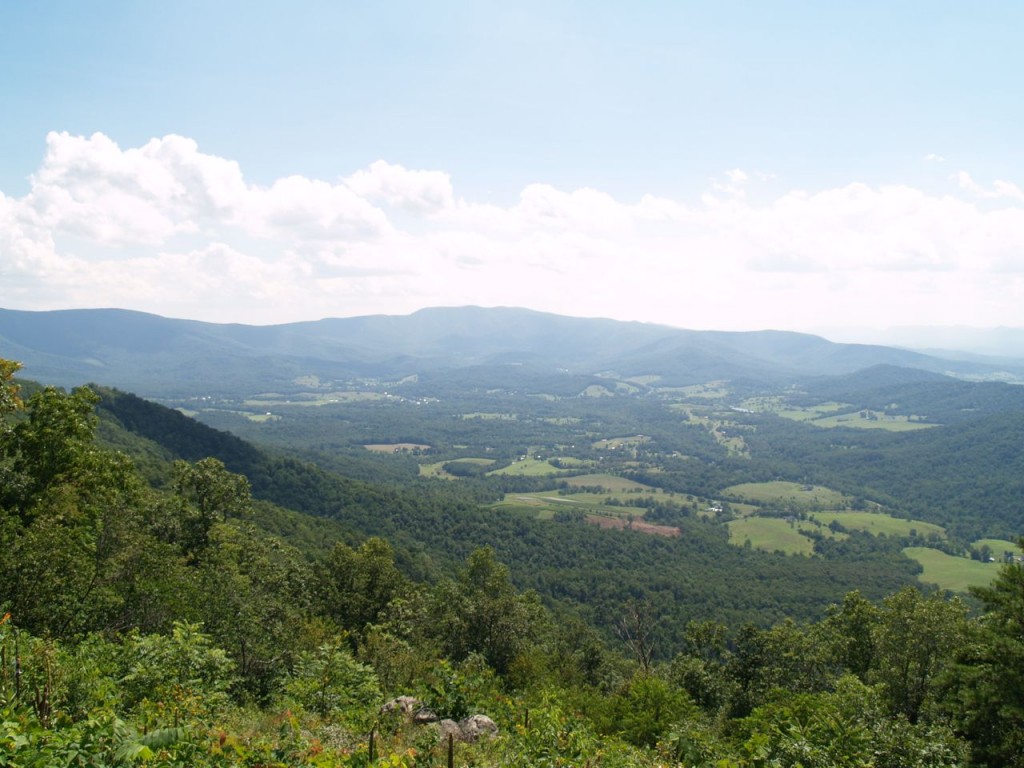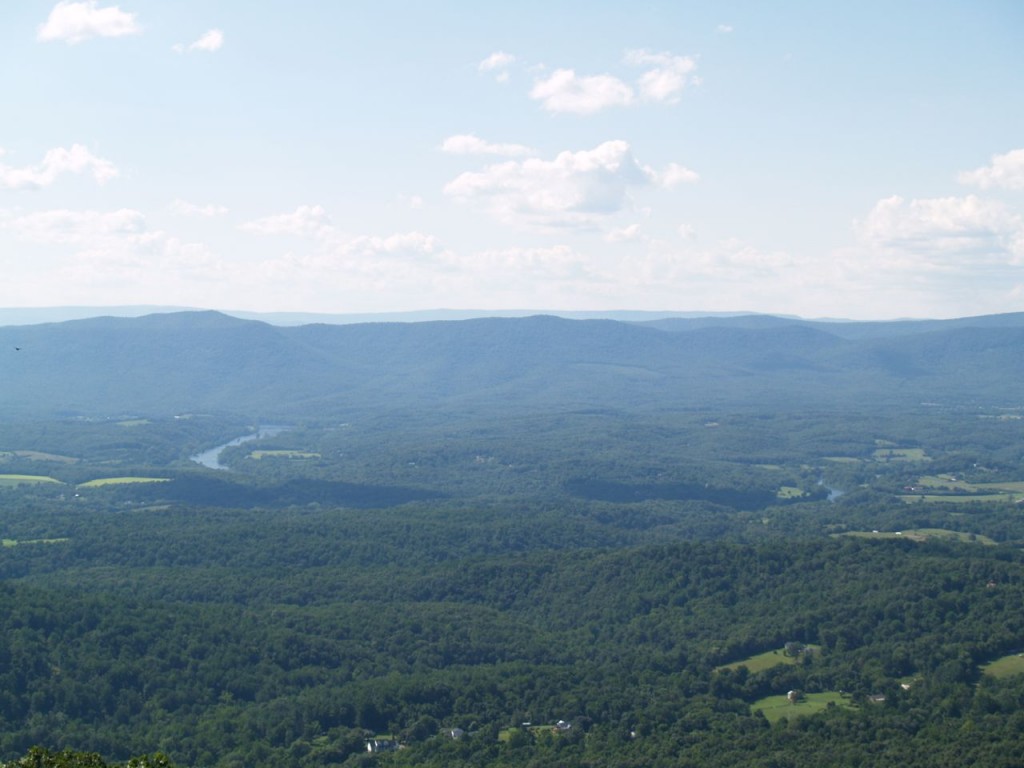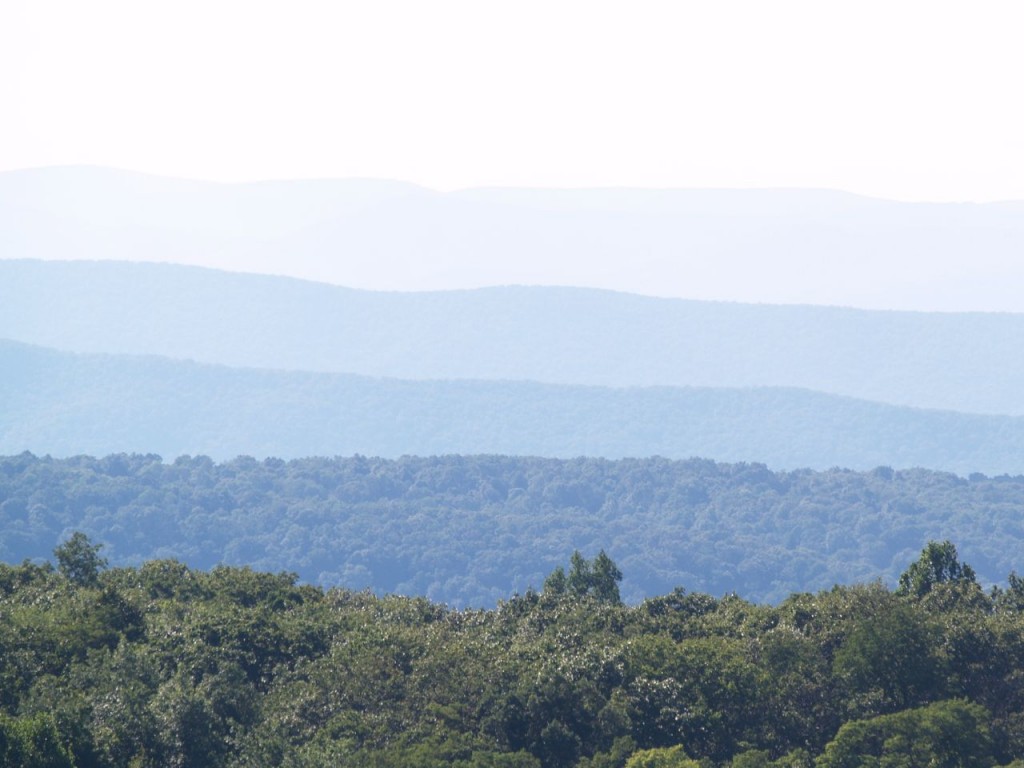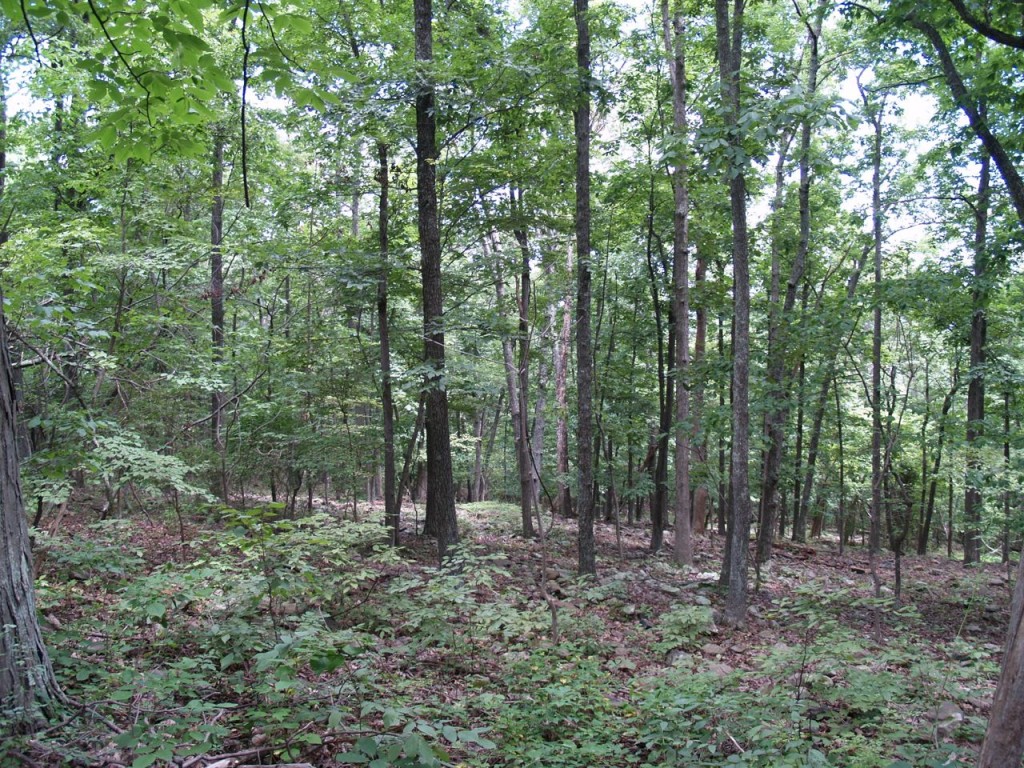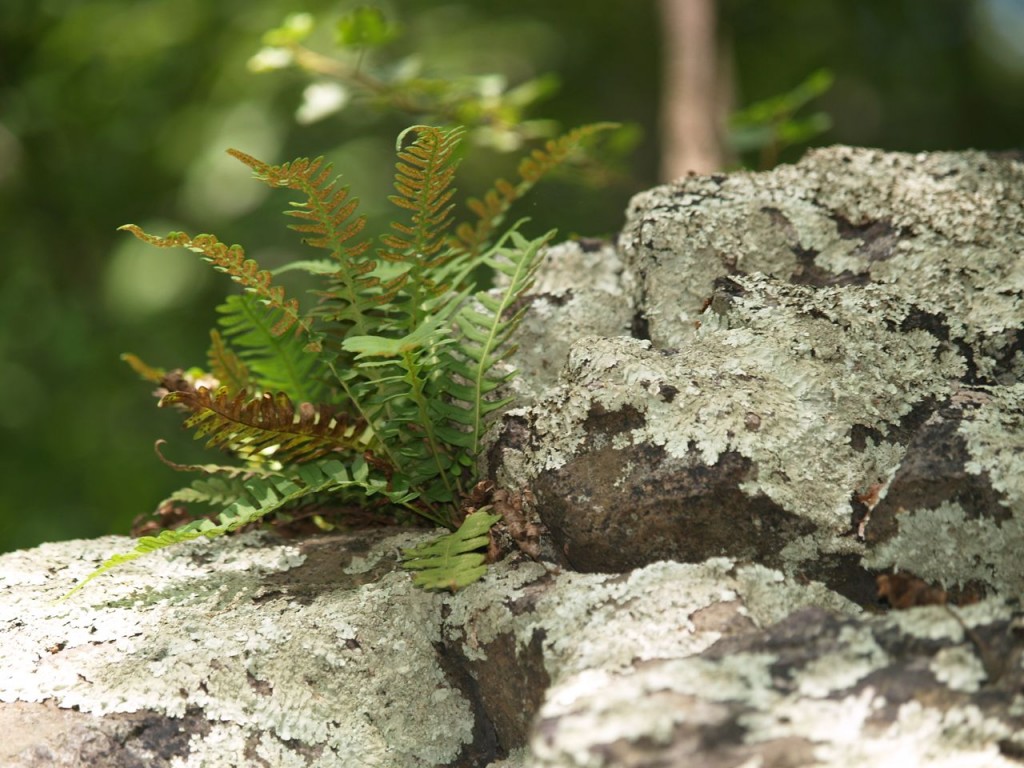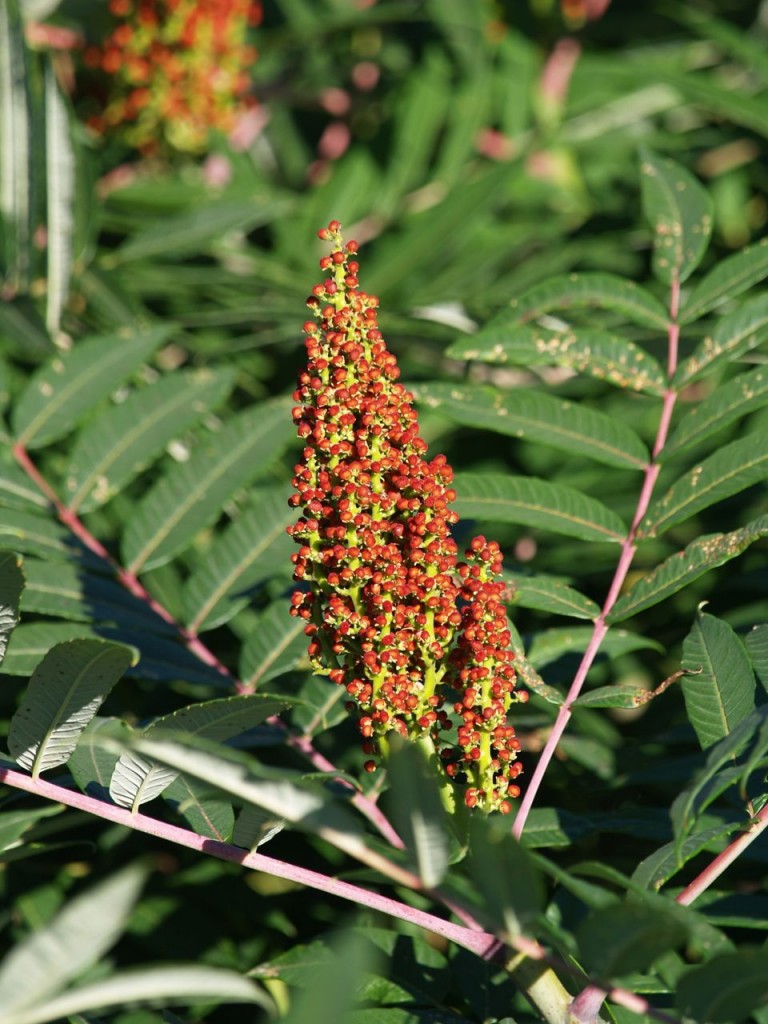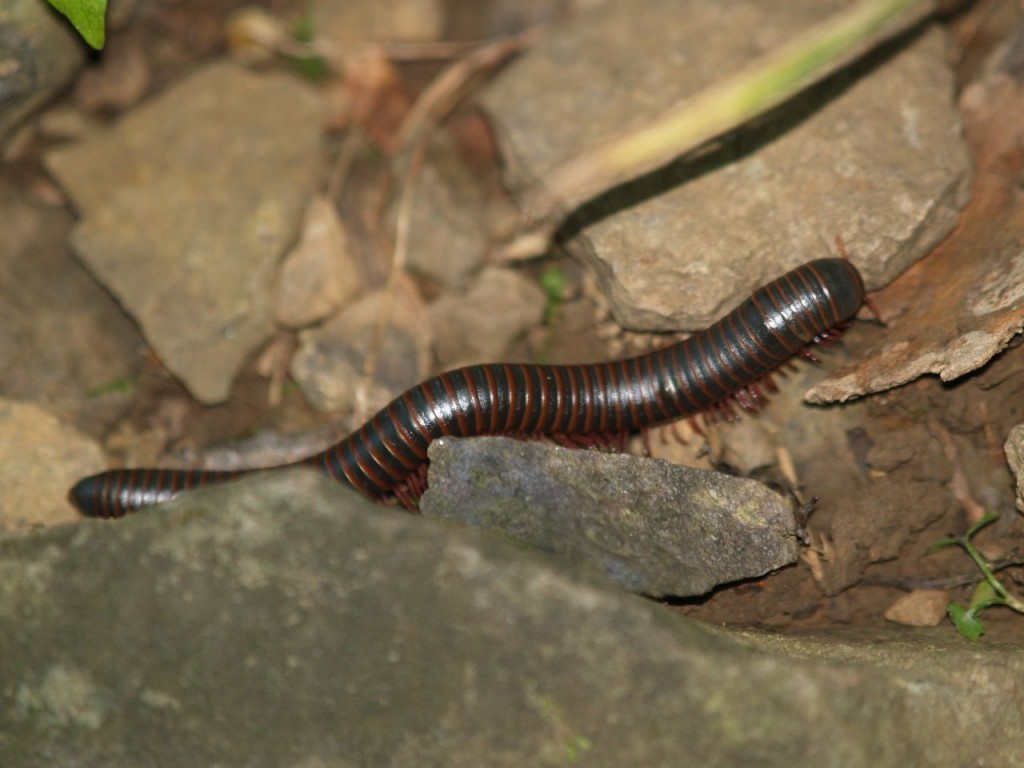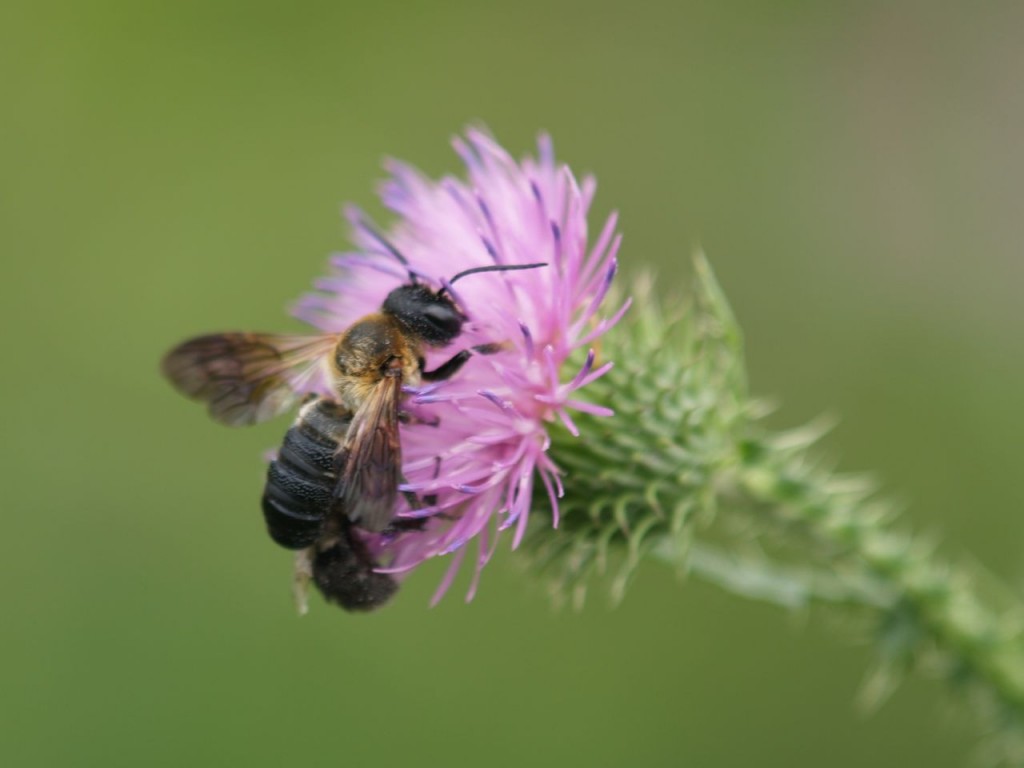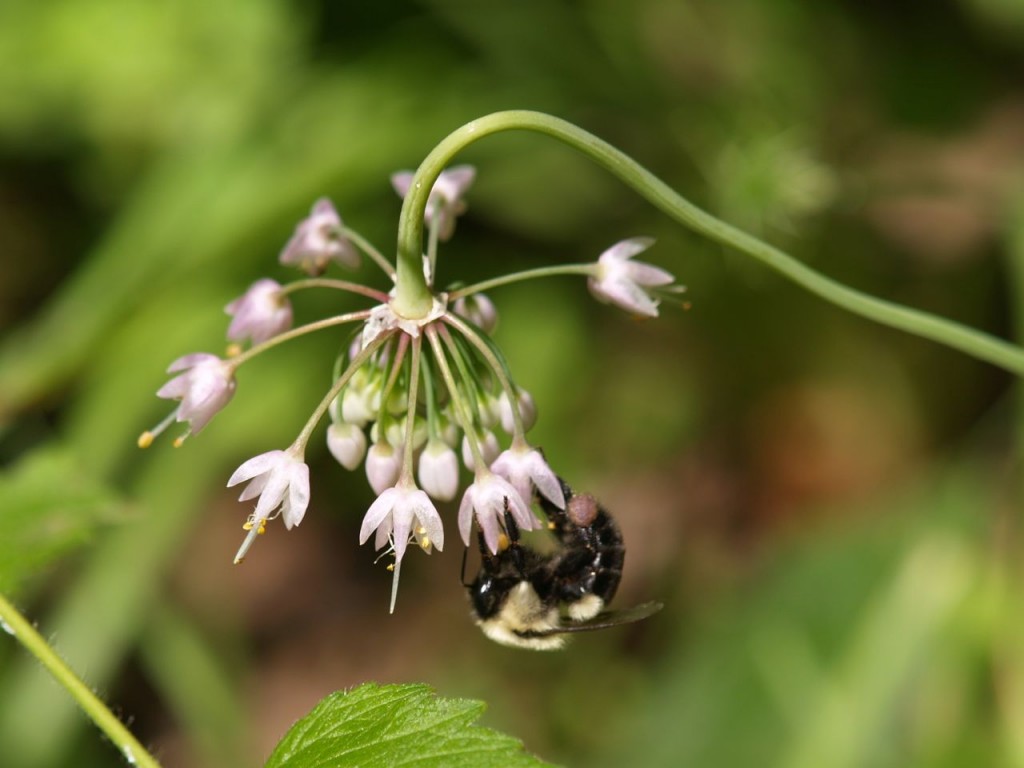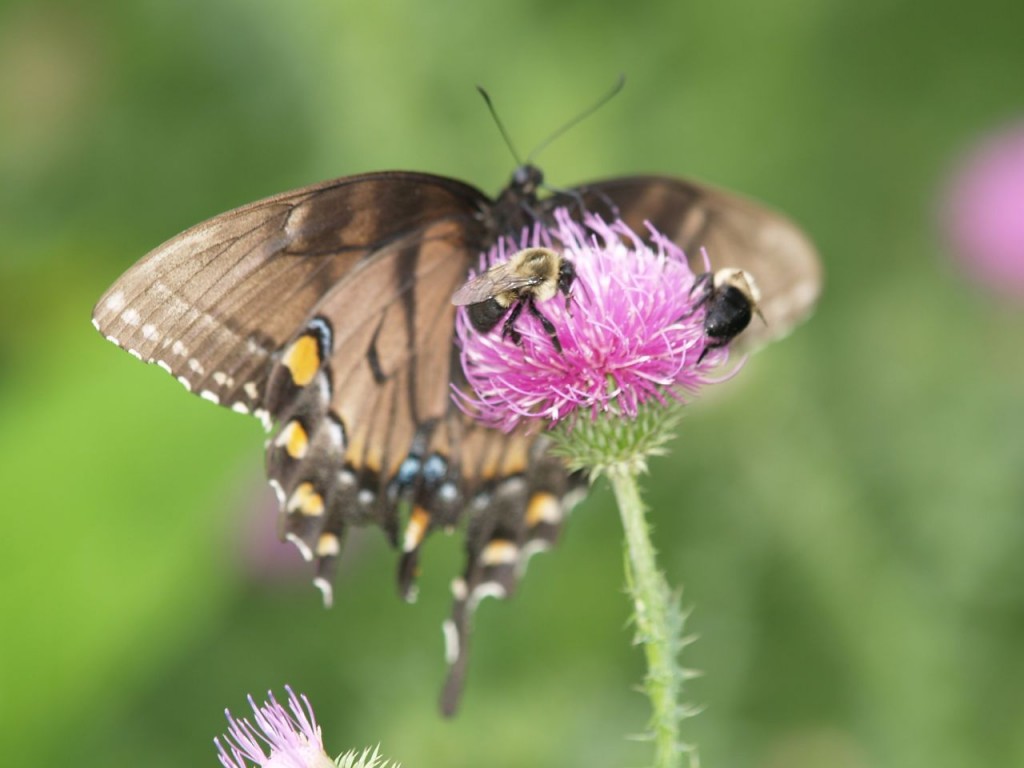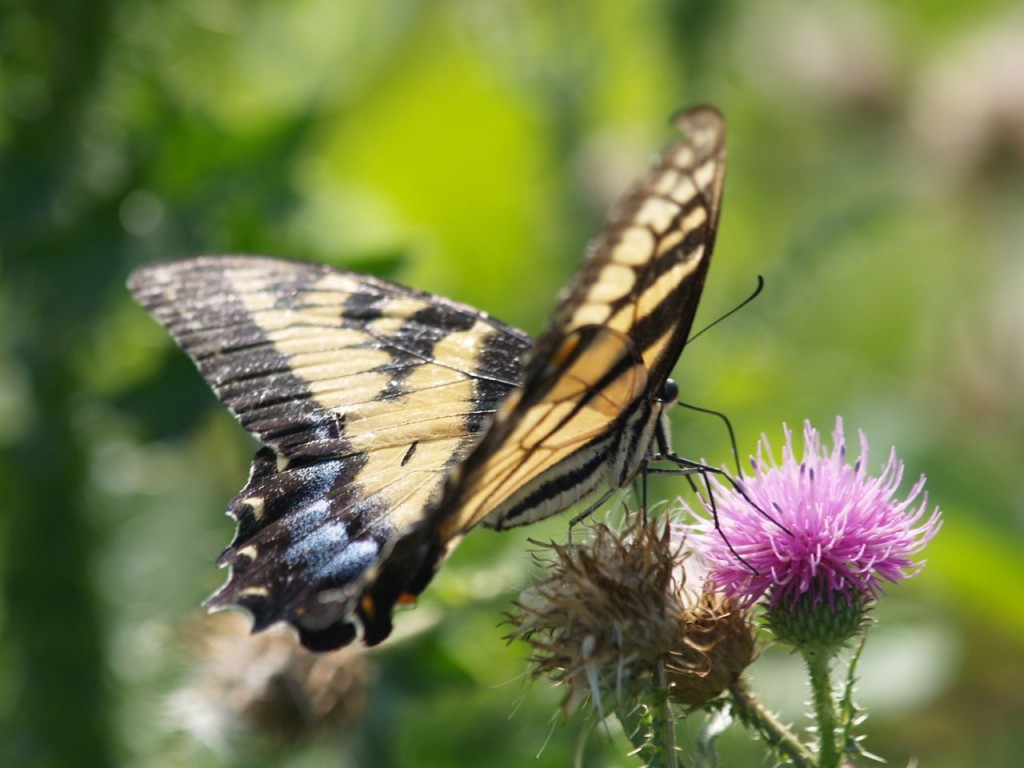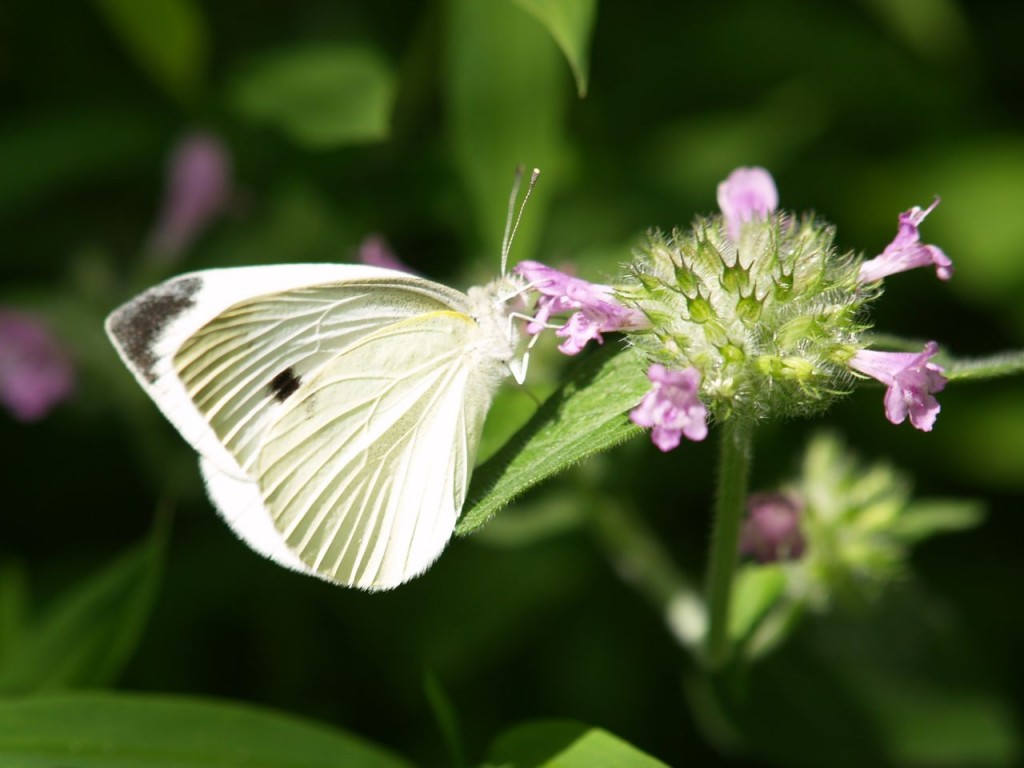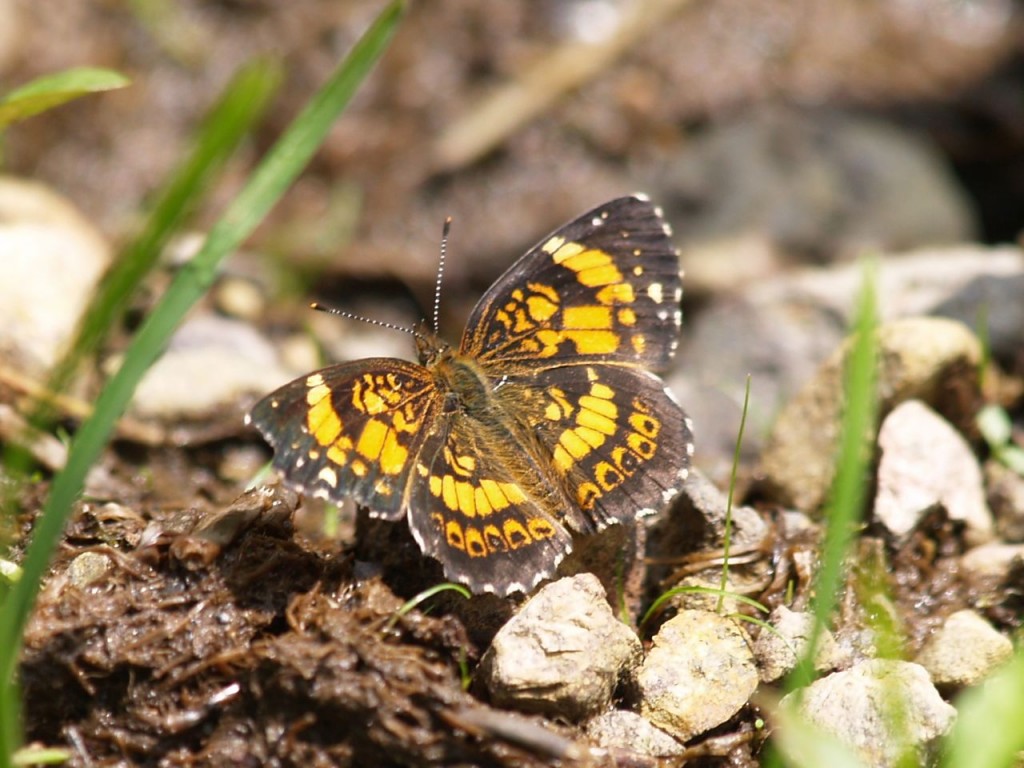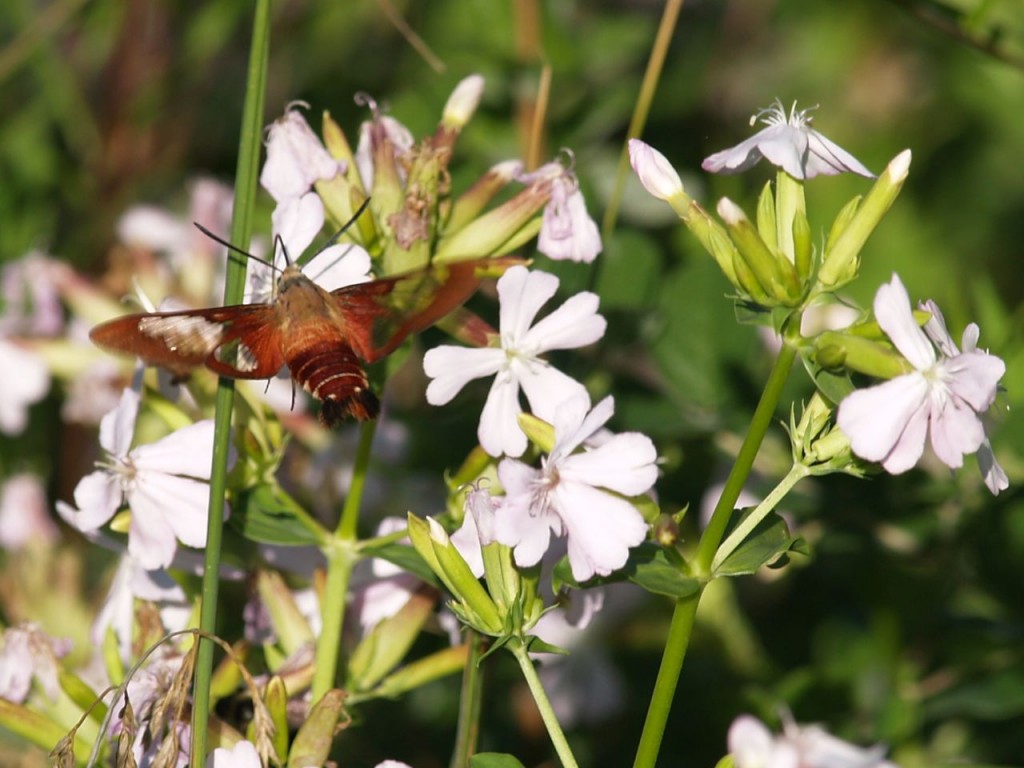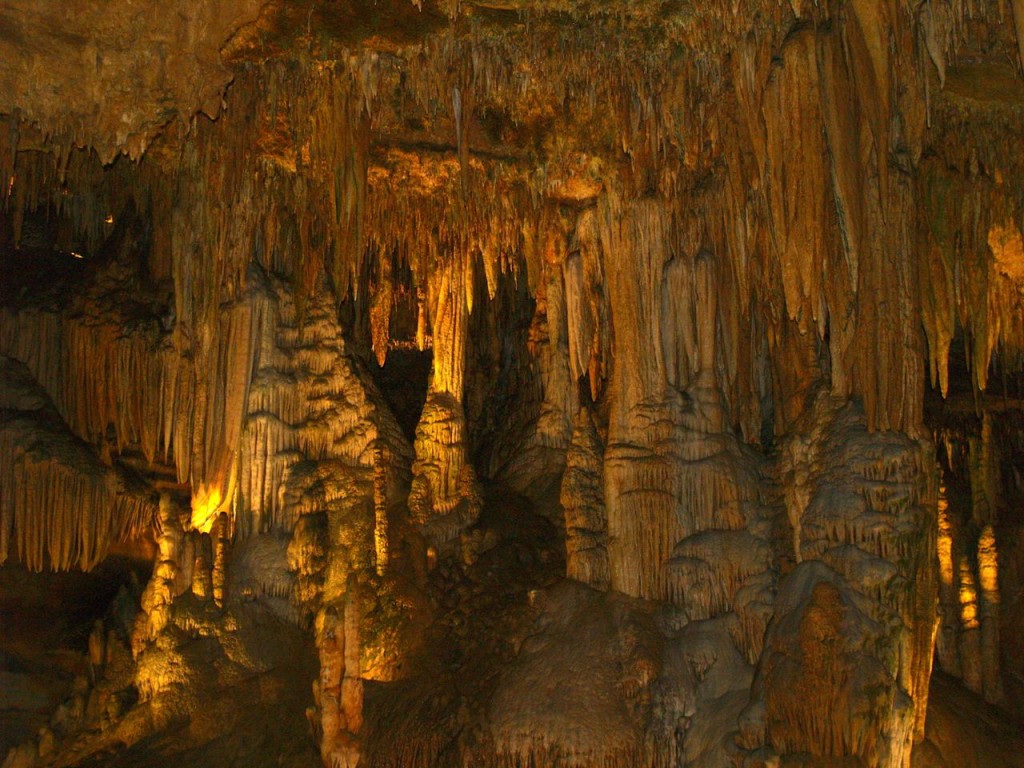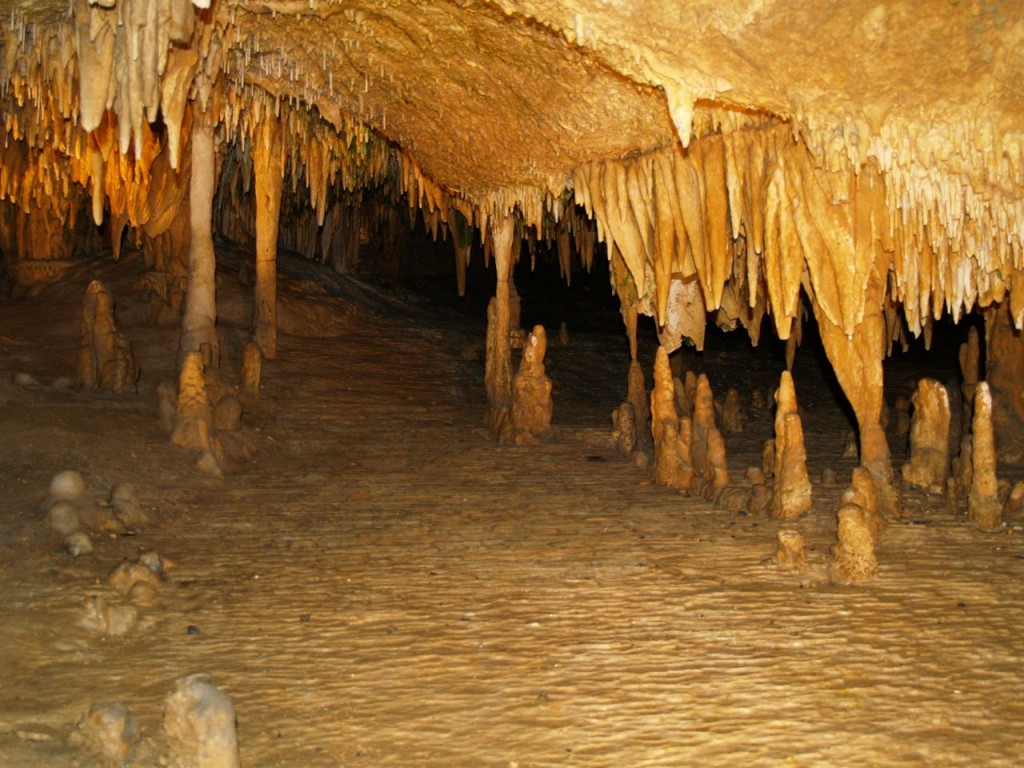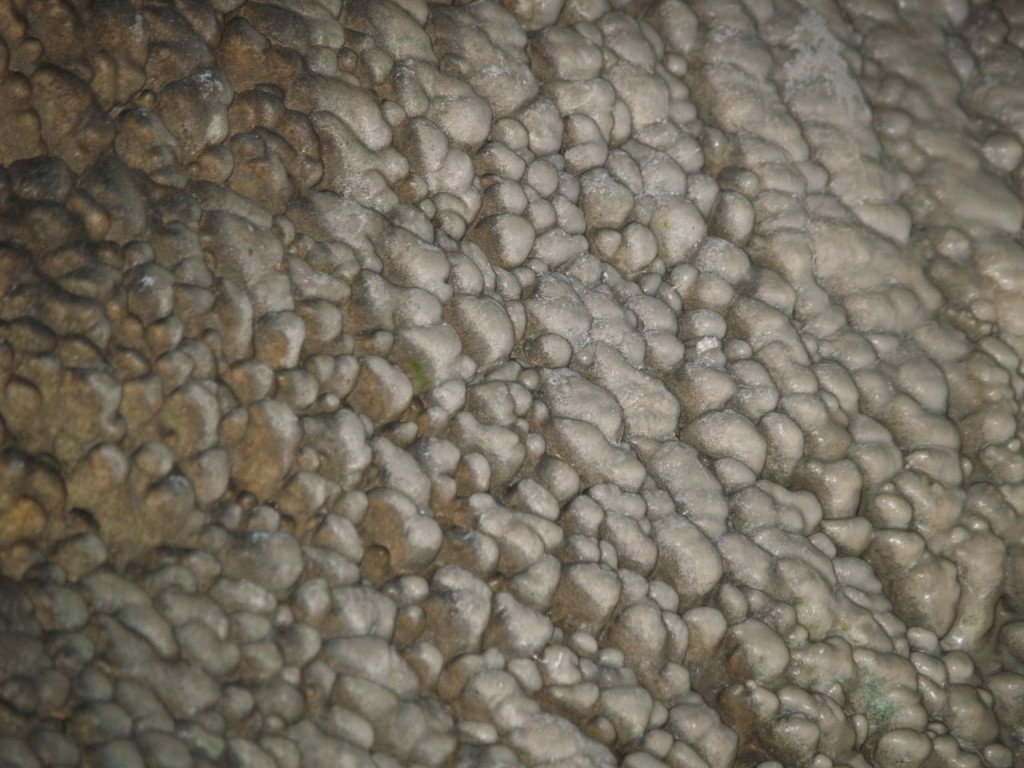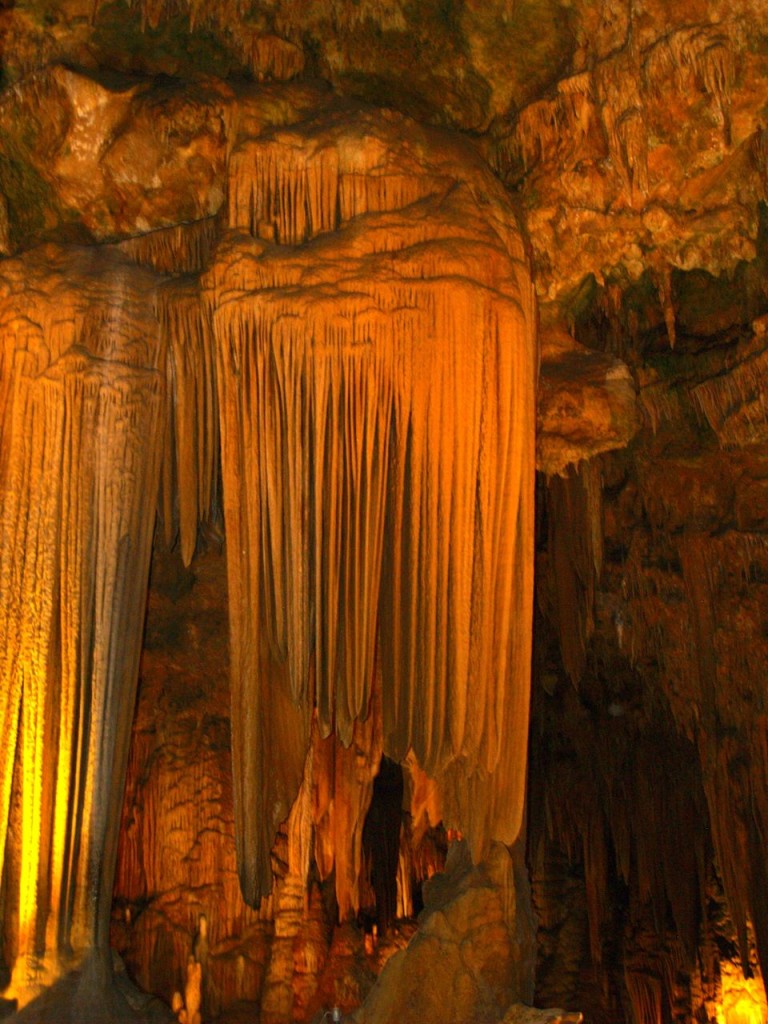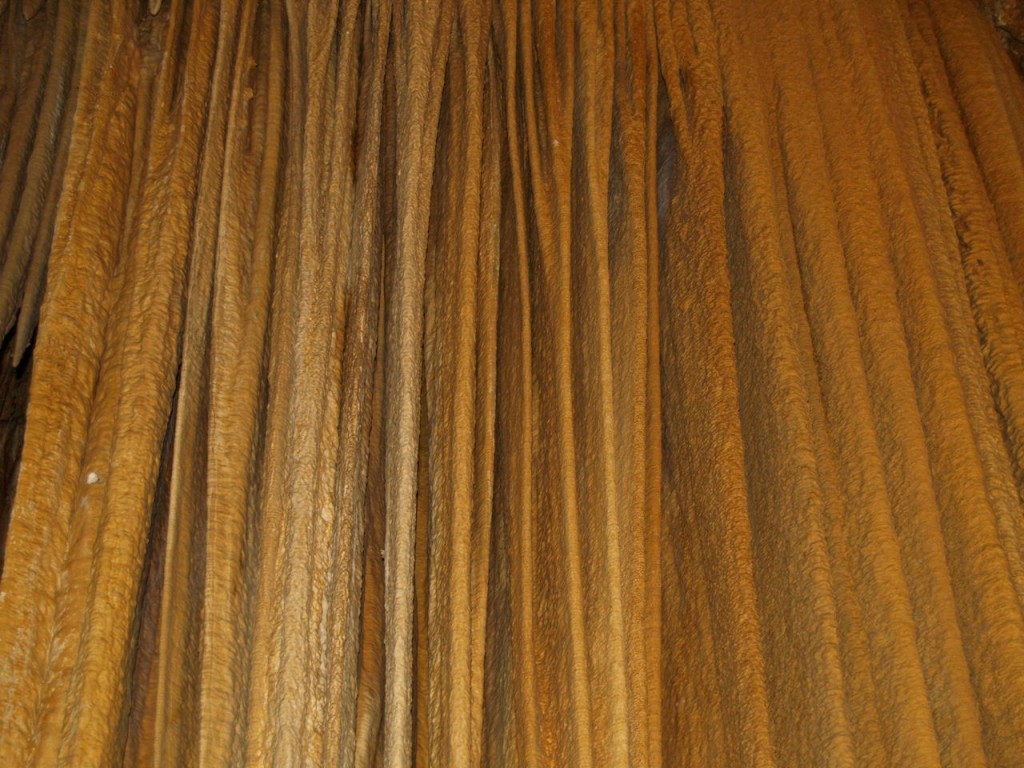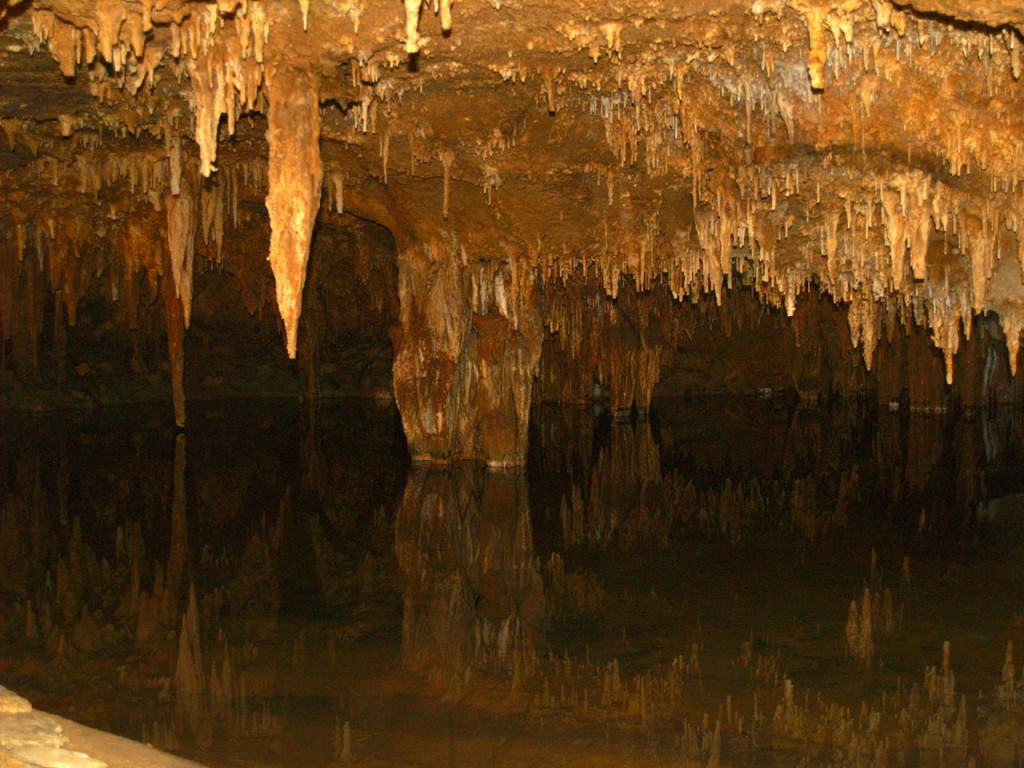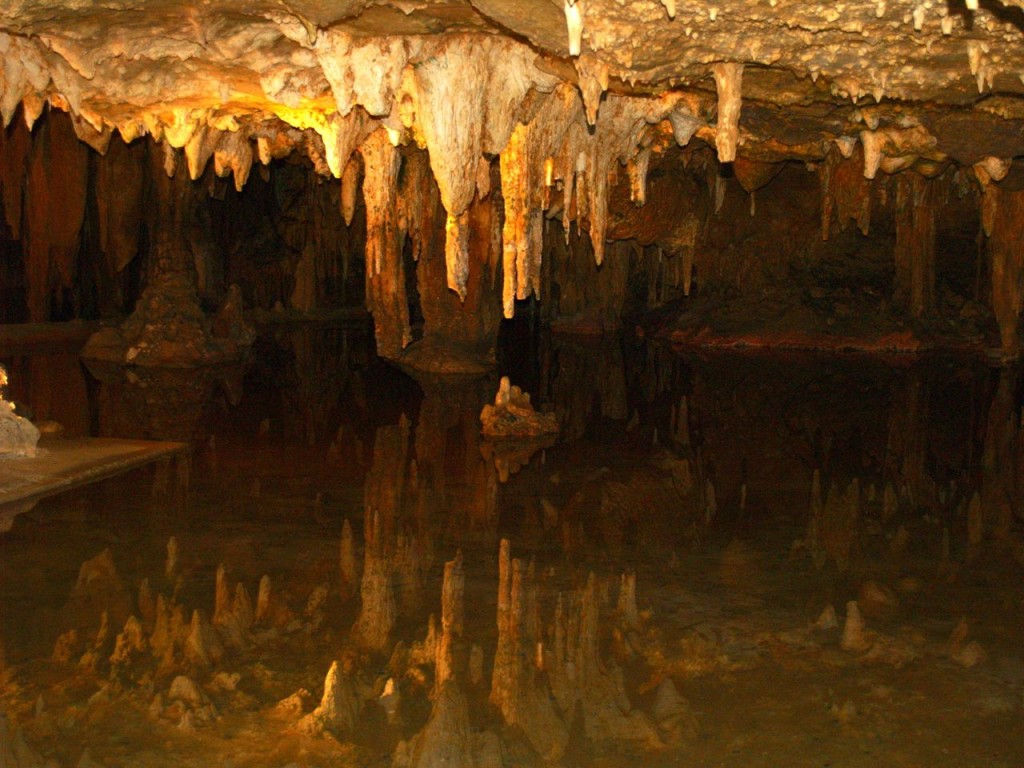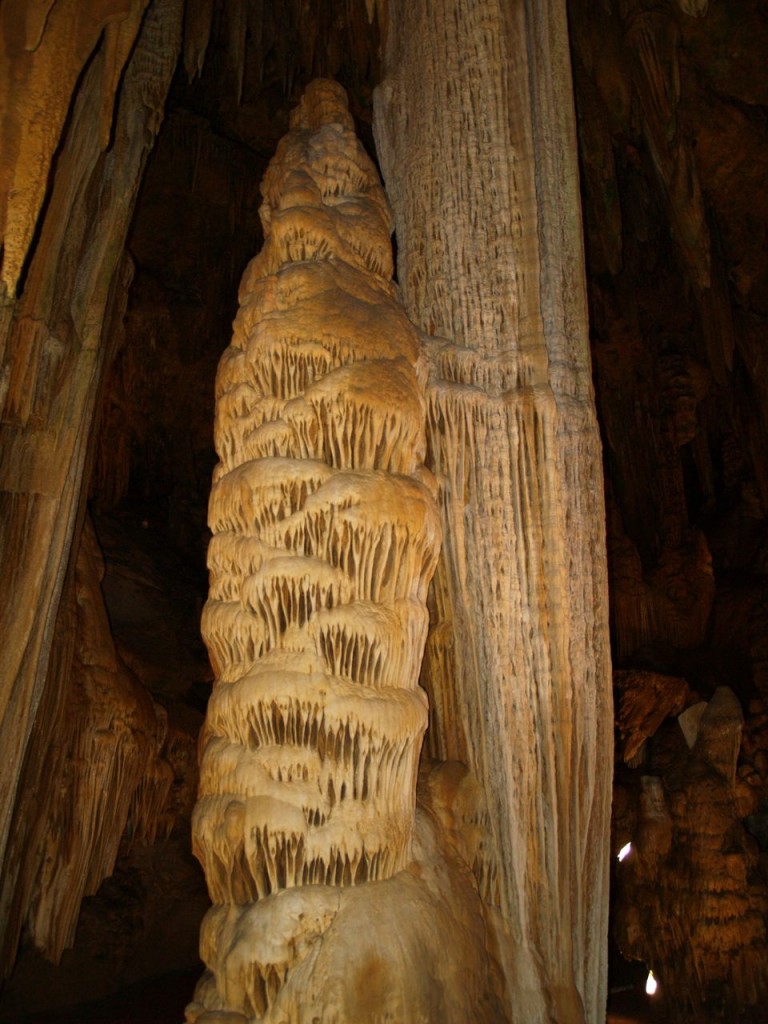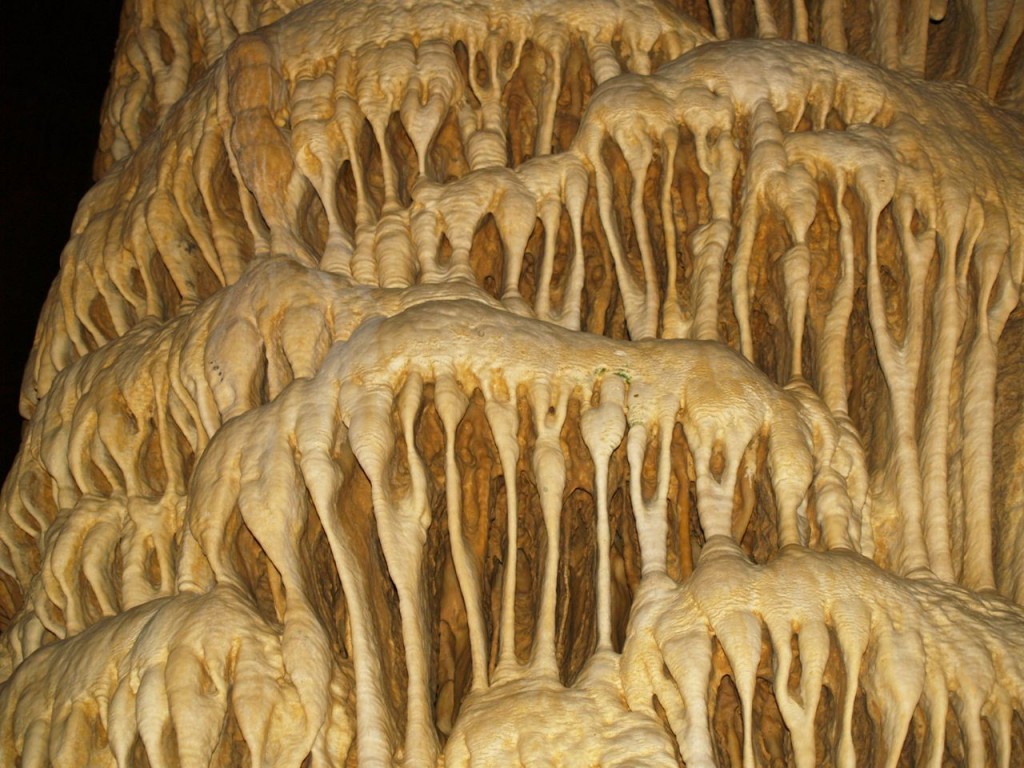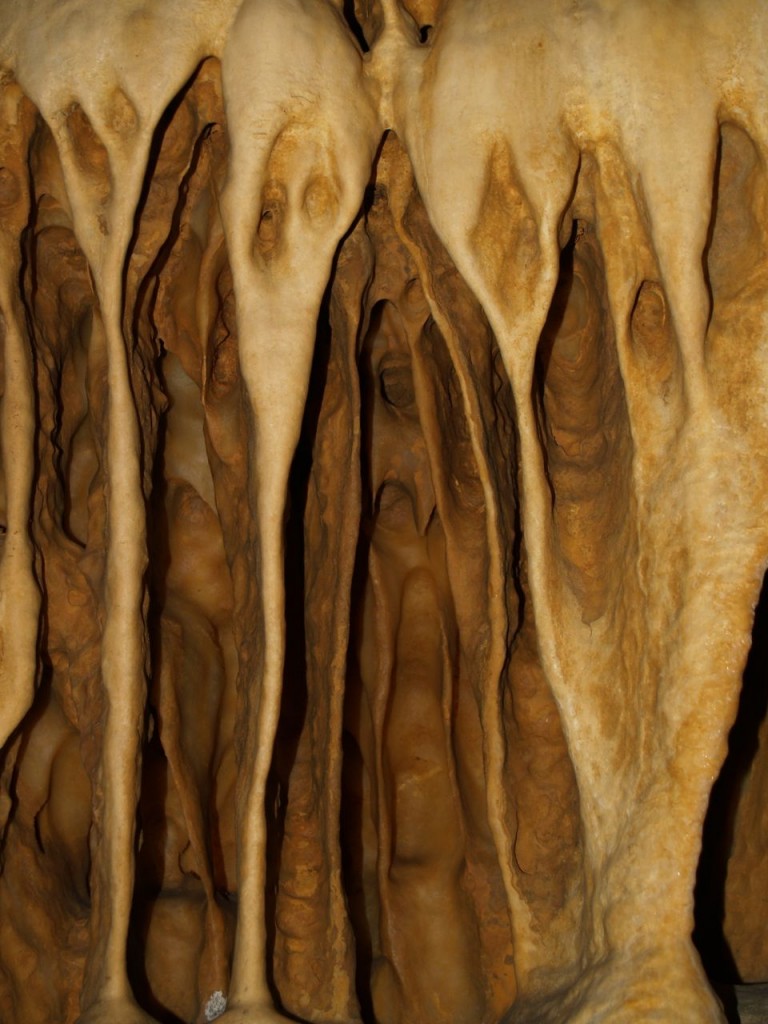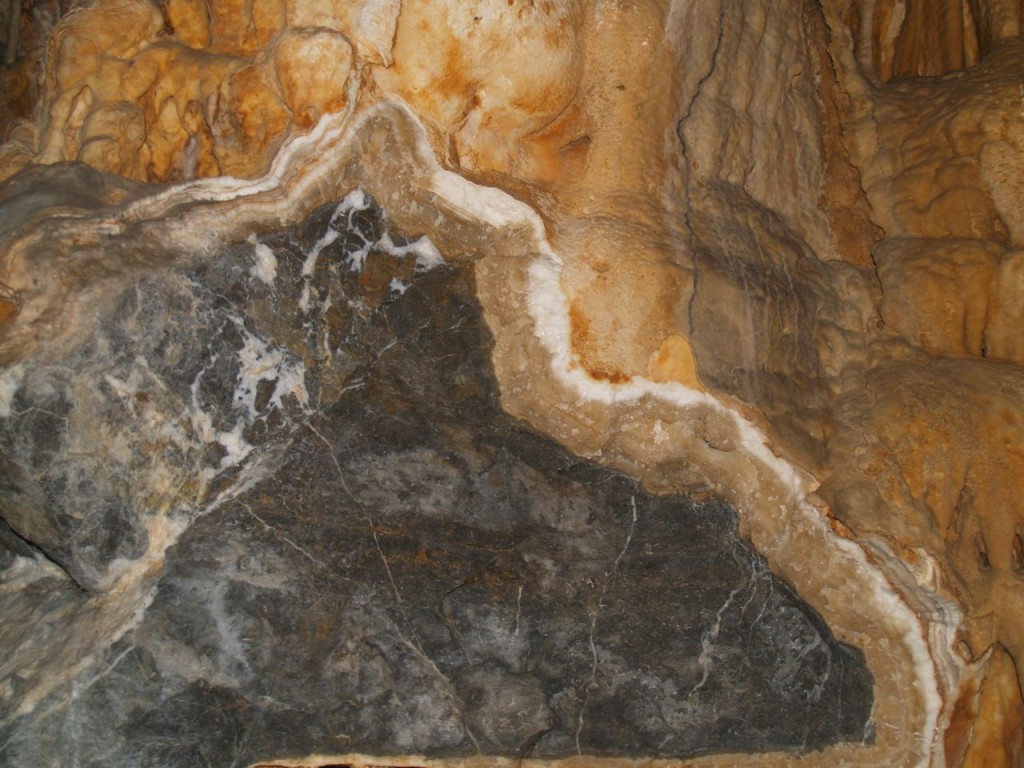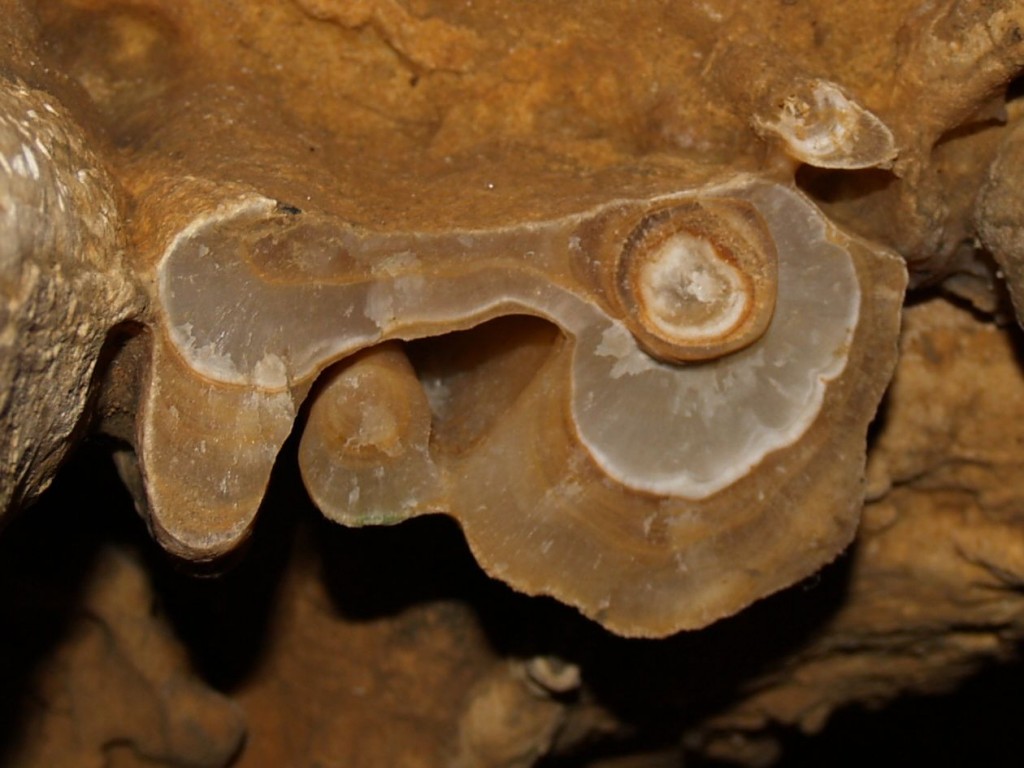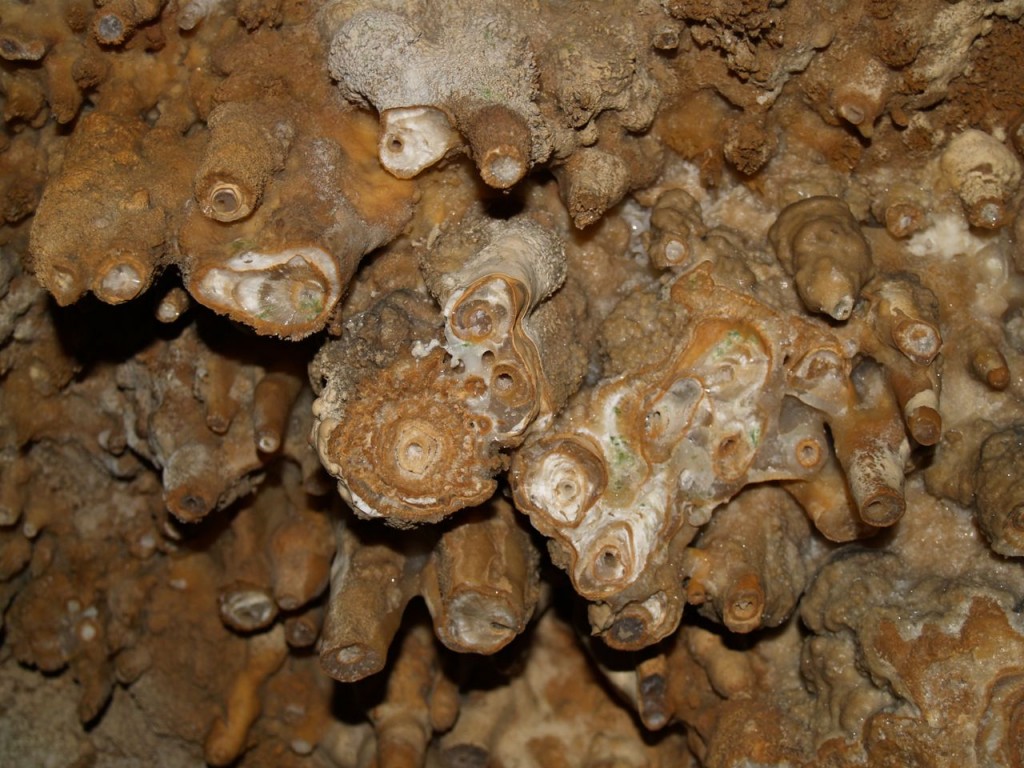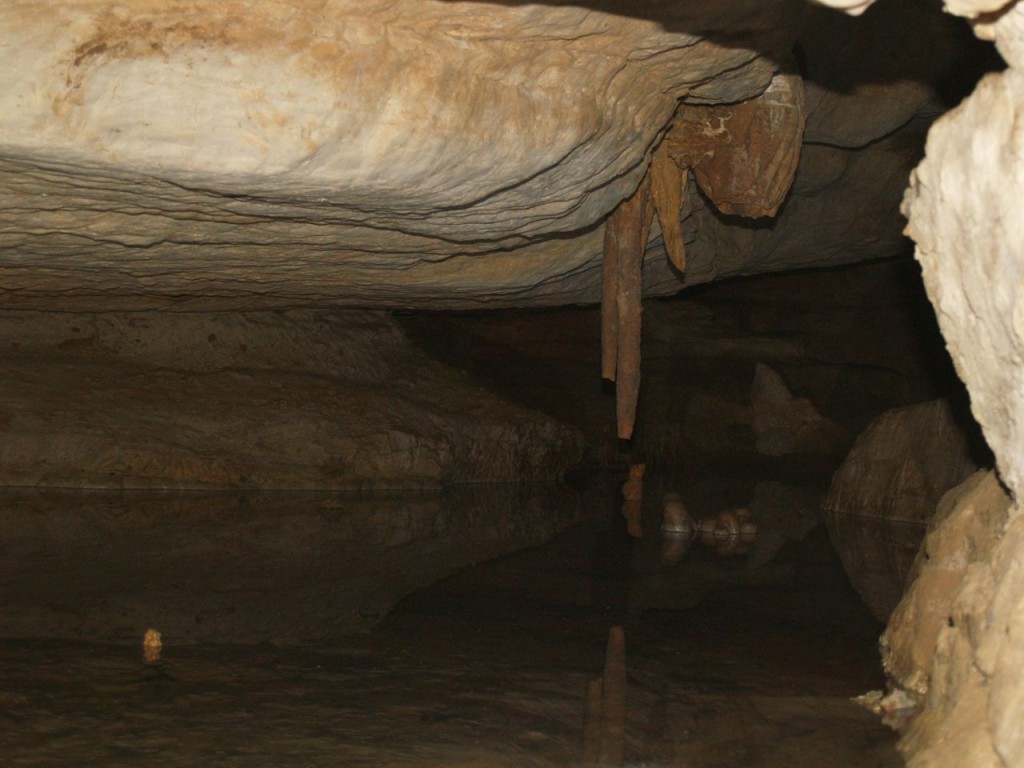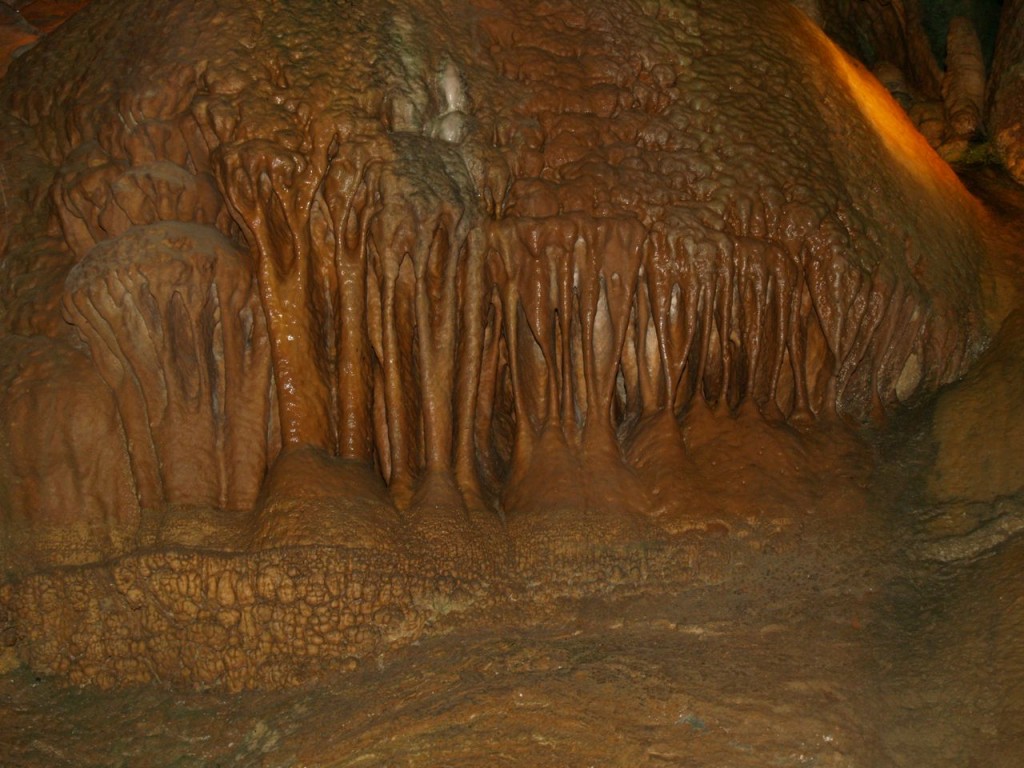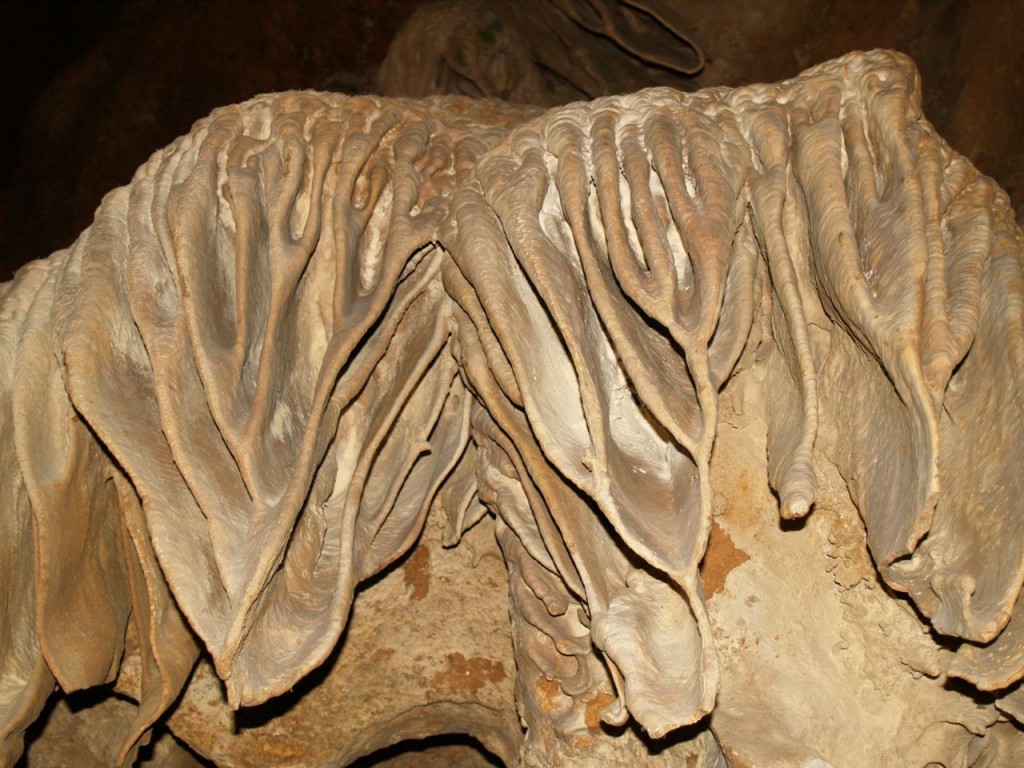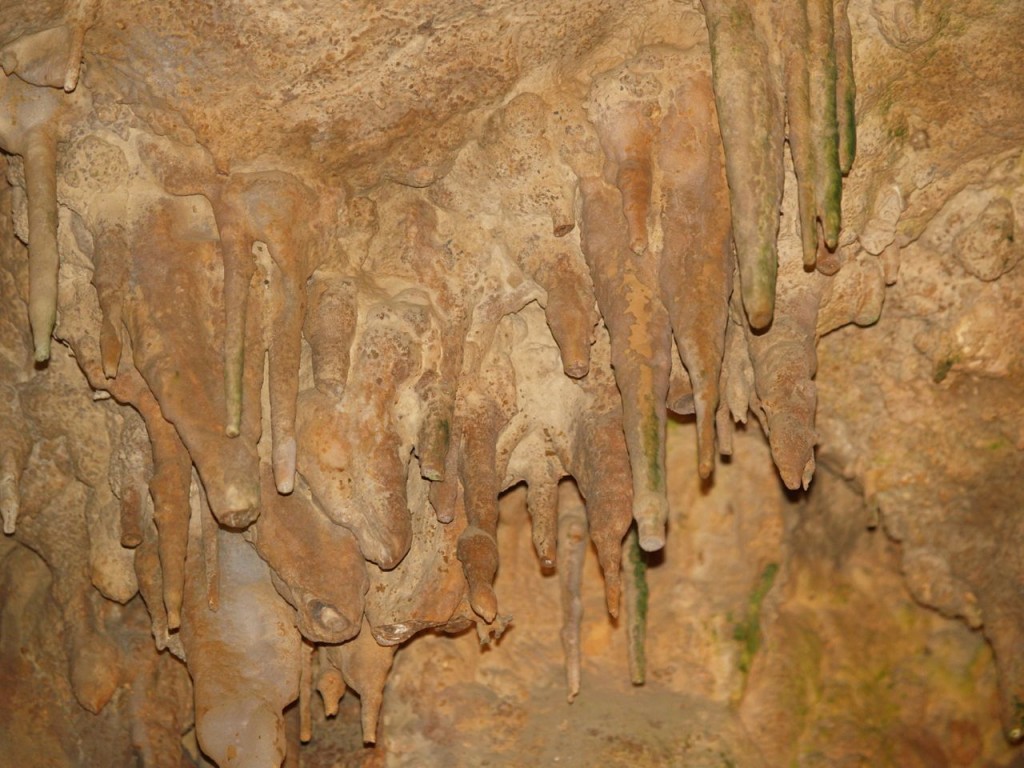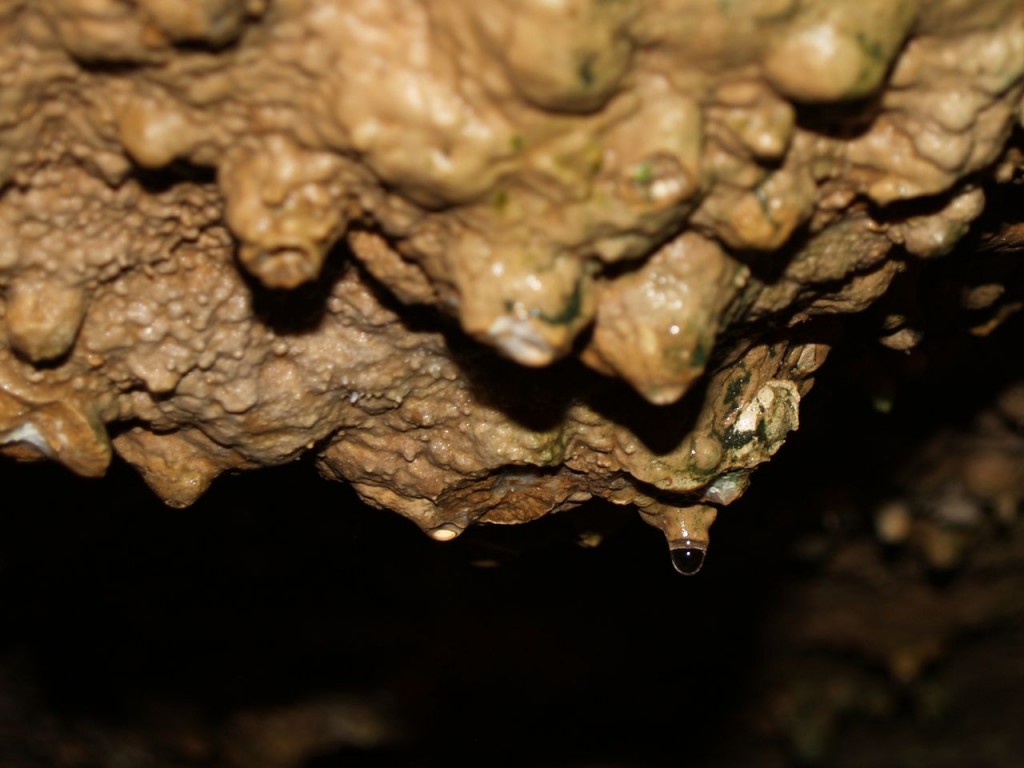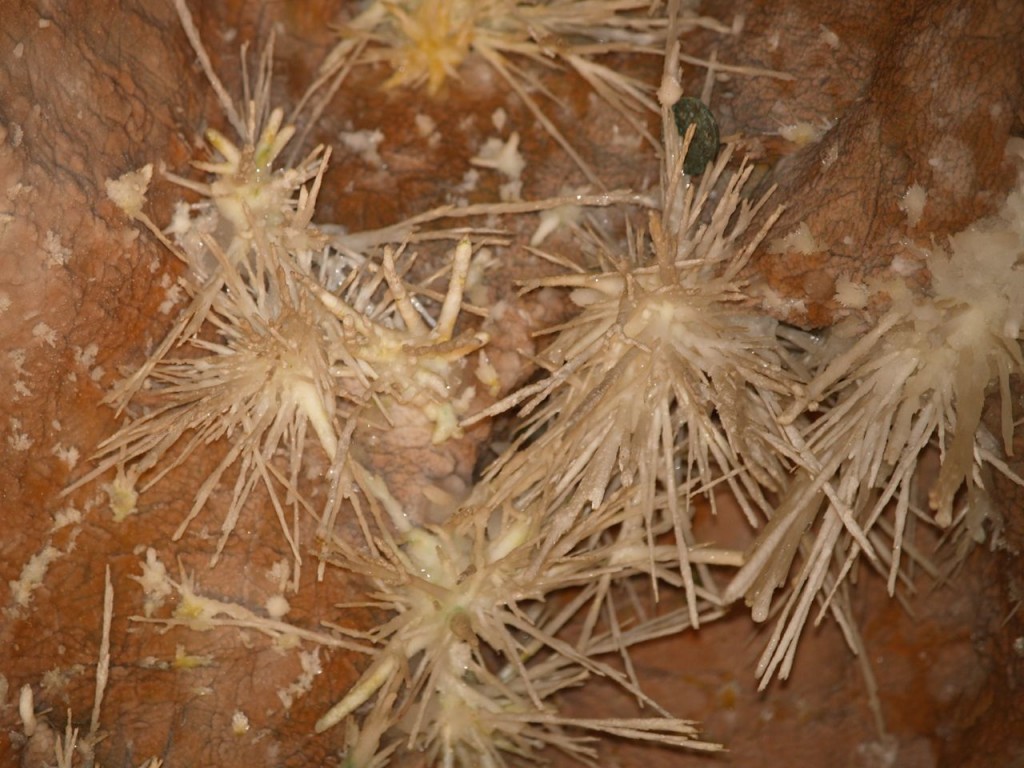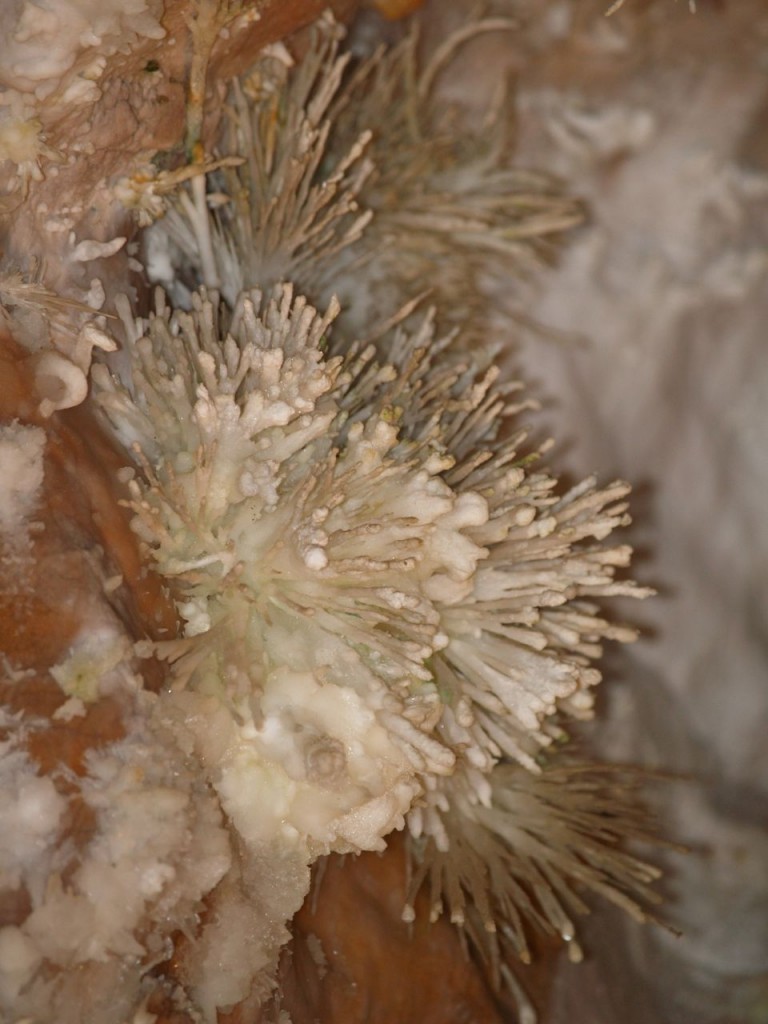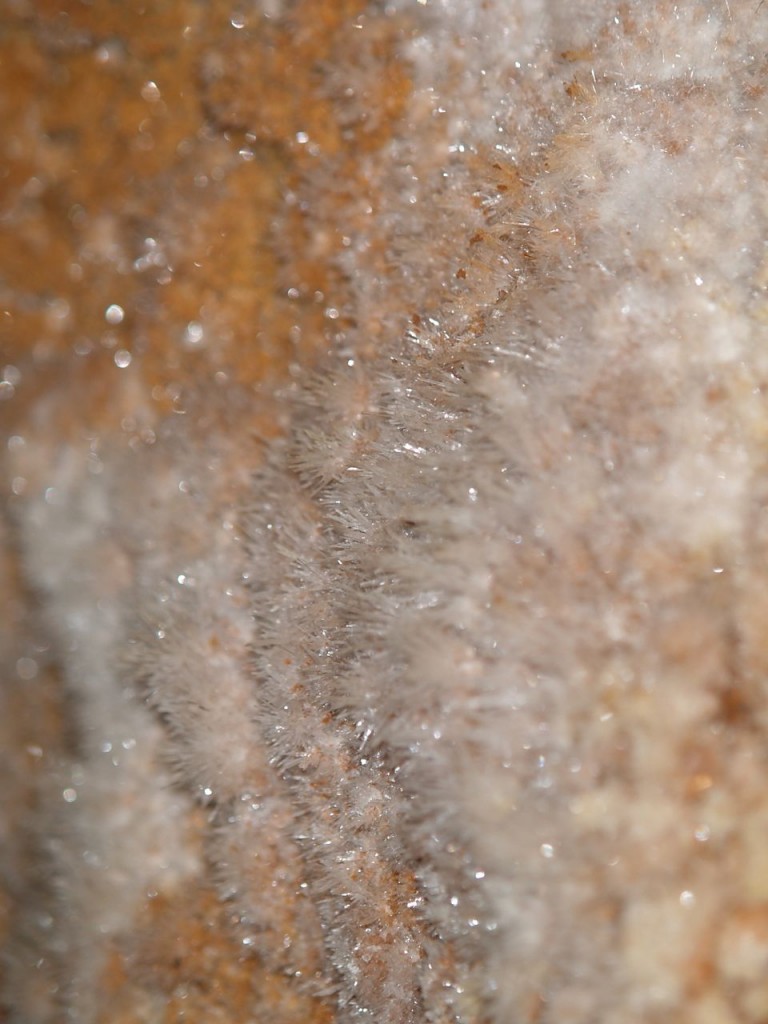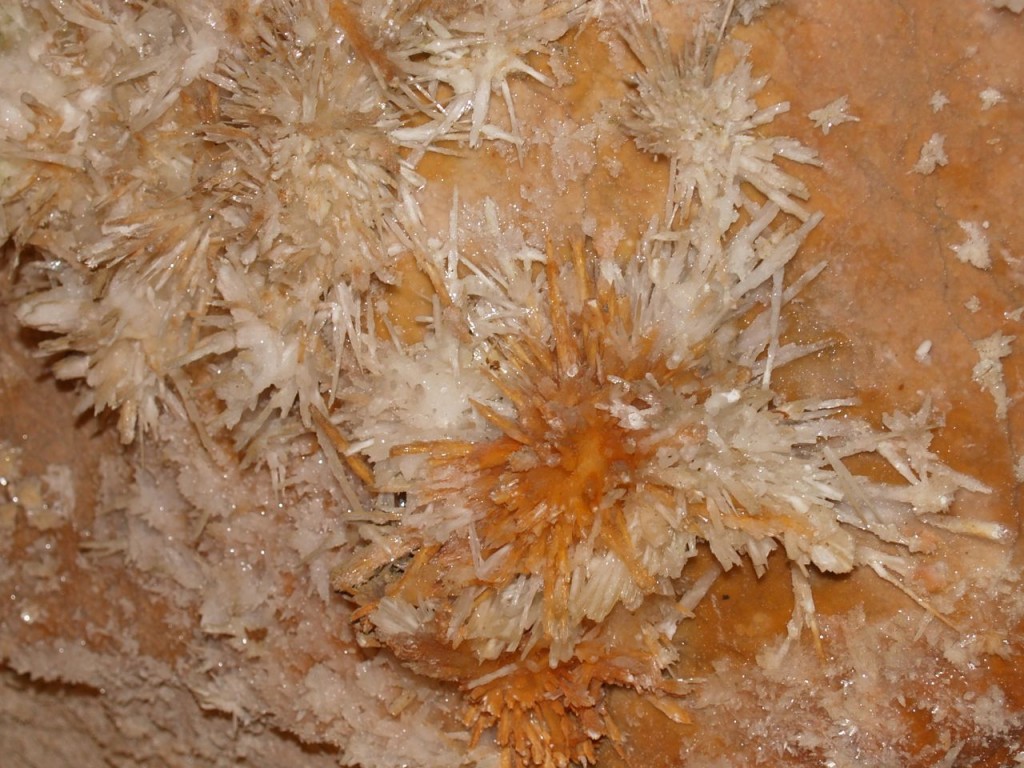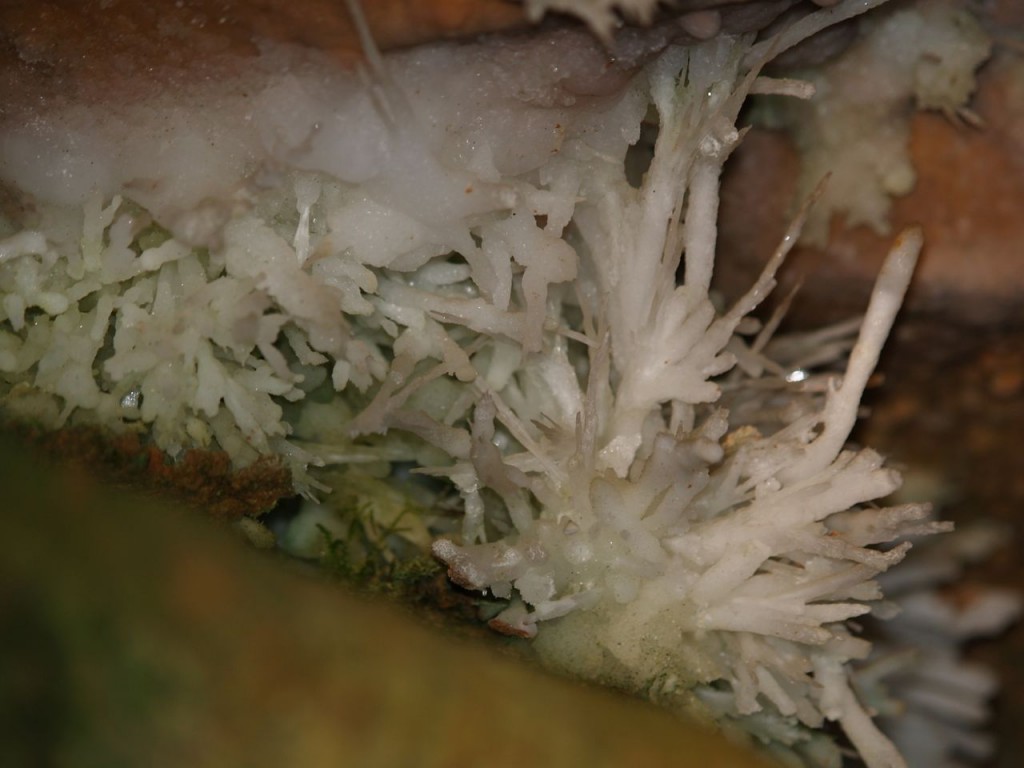I took a two hour cruise around the waterways of Chincoteague Island and Assateague Island today with Chincoteague Cruises and Nature Tours. It was a lovely day for a cruise, and I thoroughly enjoyed myself. Unfortunately we didn’t find any dolphins, but we did see some birds, Chincoteague ponies, horseshoe crabs, and jellyfish. We saw lots and lots of jellyfish in fact, such that I would never swim in the area where we cruised. The area is just beautiful, and the beauty becomes more clear when you can get away from all the tourists.
Category Archives: Photography
Chincoteague National Wildlife Refuge
Chincoteague National Wildlife Refuge is lovely, but it really should just be called mosquito paradise. If you go here and want to walk on any of the trails, insect spray will be necessary. I hate bug spray, but the mosquitoes are so bad, even I resorted to using it. However, the walk around the swamp was nice except for the mosquitoes. There were more swamp rose mallowes (Hibiscus moscheutos) in bloom than I have ever seen. I saw a few birds, but not that many. I would guess however that this is a great area to bird during migration season.
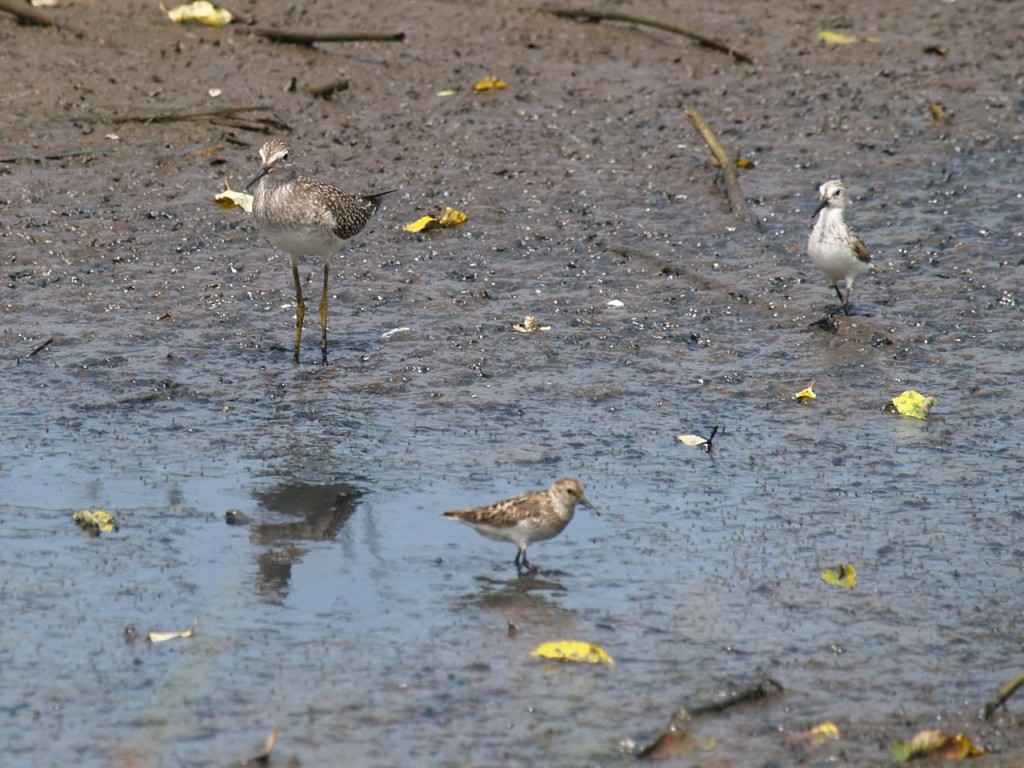
Greater Yellowlegs (Tringa melanoleuca), Semipalmated Sandpiper (Calidris pusilla), and another shorebird
Shenandoah National Park
I spent the day hiking and driving in Shenandoah National Park in Virginia. It is a beautiful park, and the weather was perfect. I was also treated to many insects going nuts on the flowers. The park has wonderful views of the area, including views that make it clear how the Blue Ridge Mountains got their name. I have identified the insects that I can. If anyone who happens to read this can identify or correct my identification, please contact me. I love to get the identifications correct. Edited to add: Thanks to Derek and friends on Twitter who have helped me identify the animals on this page!]
Luray Caverns
Unlike Skyline Caverns, which I visited yesterday, Luray Caverns let visitors take self guided tours through the caverns. This was very nice, as there were employees along the way to ask questions of if you had one, but I didn’t have to listen to a guide telling me what the various formations look like. Luray Caverns has fantastic stalactite, stalagmite, and column formations. It has a couple of small ponds that create perfect mirrors for the formations above, and it is absolutely beautiful and amazing to view. Luray Caverns also has the Stalacpipe Organ, which plays music by hammering stalactites instead of using pipes. It is rather interesting to hear.
Below is a video of the Stalacpipe Organ. It has a few still photos of the organ’s parts, and then a video with audio of the Stalacpipe Organ playing. Turn the volume way up to hear it.
Skyline Caverns
I visited Skyline Caverns today in Front Royal, Virginia. I have decided that caverns and other attractions that have some science involved need to have two different tours: one for people interested in the science, such as the geology of cave formation, and others who just want to see the pretty stuff and be told that a particular formation looks like Snoopy. Skyline Caverns has some nice formations and some neat underground rivers and lakes, The lakes are really neat to see because the water is completely still and forms a mirror reflecting all the formations above it. The best part of the tour of Skyline Caverns was the anthodites, which are absolutely beautiful six-sided calcite crystals. According to the tour guide, their existence was first discovered in Skyline Caverns by Walter Amos, the geologist who discovered the caverns.
USBG Corpse Flower: July 25
The corpse flower at Washington, DC’s US Botanical Garden (USBG) is rapidly going dormant. The spadix has collapsed, and the spathe continues to wither. The USBG staff cut two holes in the base of the spathe. The female and male flowers can be seen through those holes (see photos below). A staff member told me that they harvested the pollen today. I forgot to ask if they pollinated the female flowers, but I would assume not as they would have bloomed four days ago when the plant was in peak bloom. As always refer to my photos from the past two weeks to see changes (July 11, July 12, July 13, July 14, July 15, July 16, July 17, July 18, July 19, July 20, July 21, July 22, July 23, and July 24). Also, see the “Corpse Flower” page on my website that has photos from everyday that shows the whole plant so the photos can be more easily compared as well as a video that has a slide show of photos. Finally, I continue to give the smell report for old time’s sake. There is no smell.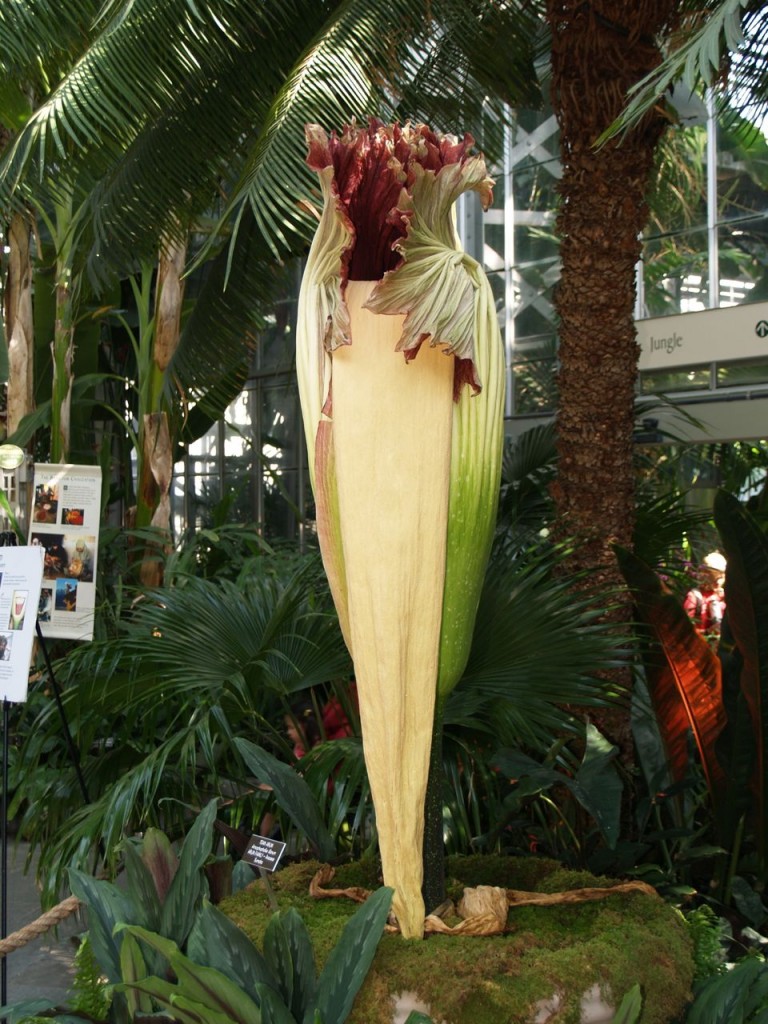 On the left side of the spathe base in the below photo, one of the holes created when the staff cut into the spathe can be seen.
On the left side of the spathe base in the below photo, one of the holes created when the staff cut into the spathe can be seen.
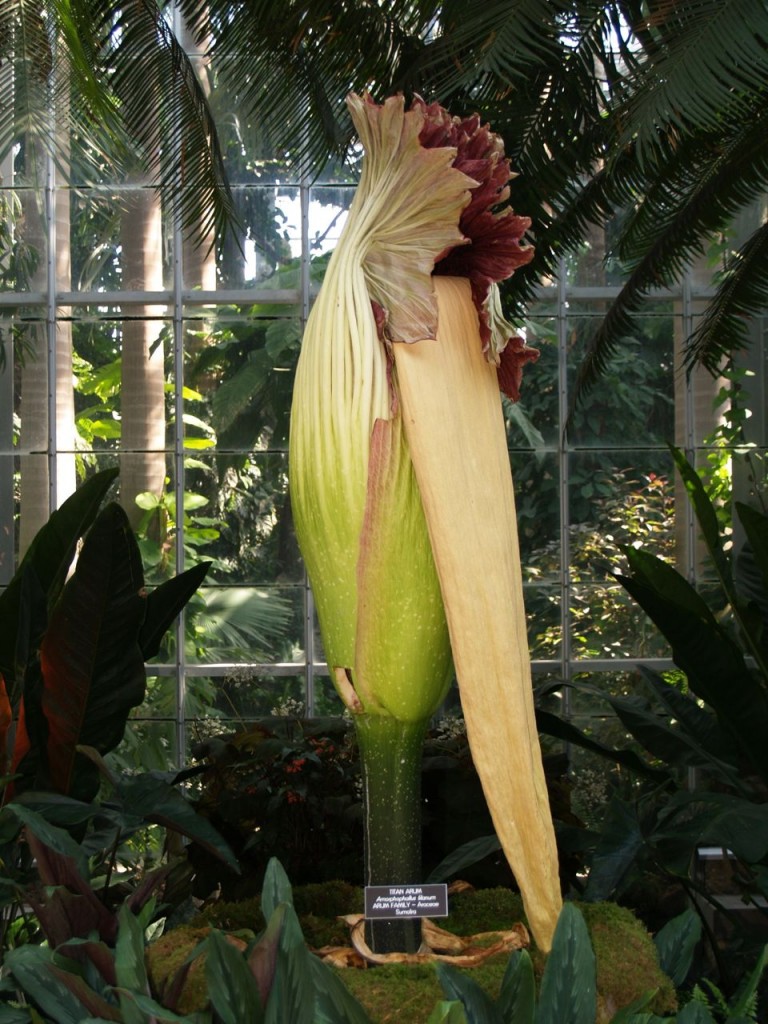
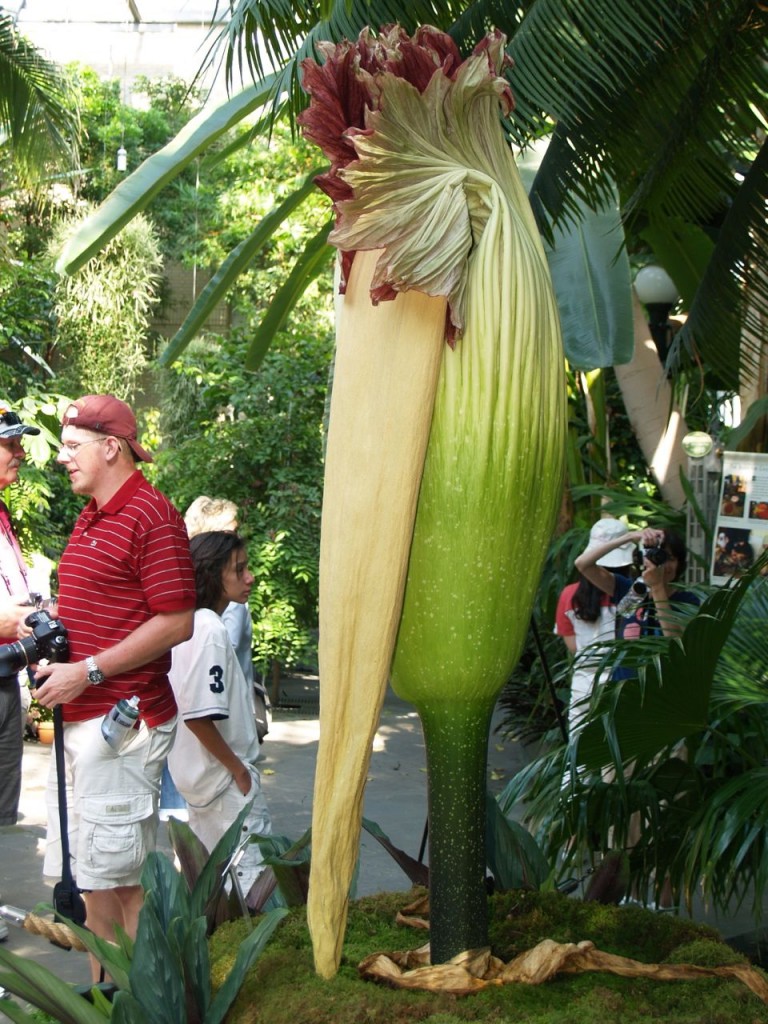
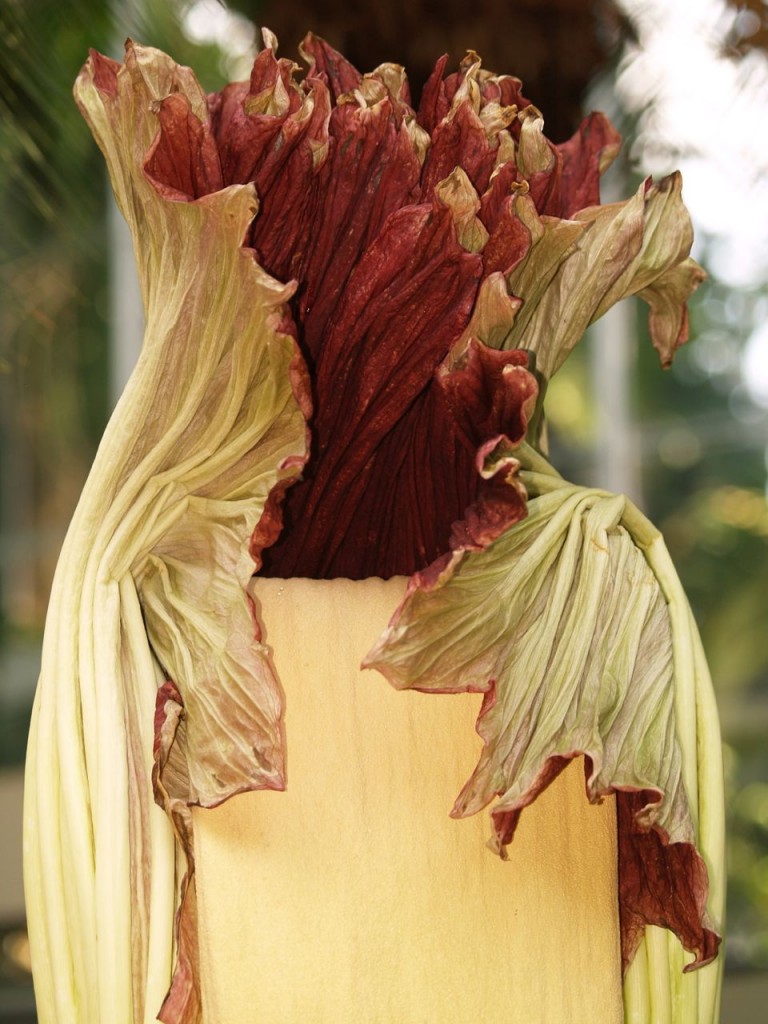
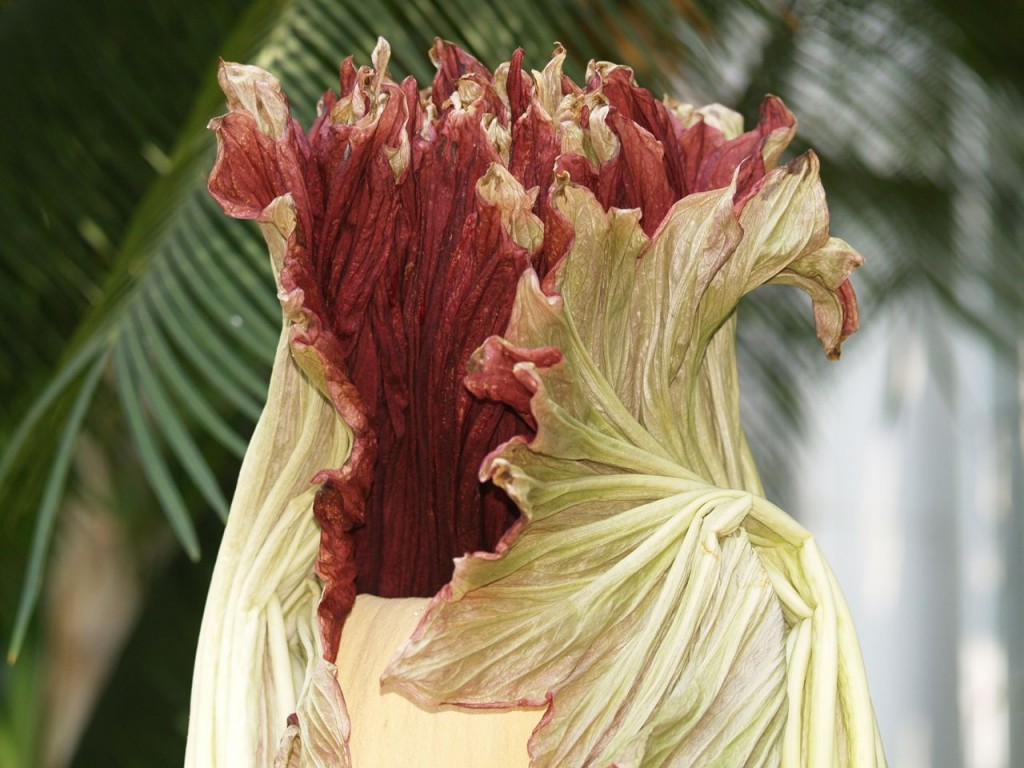
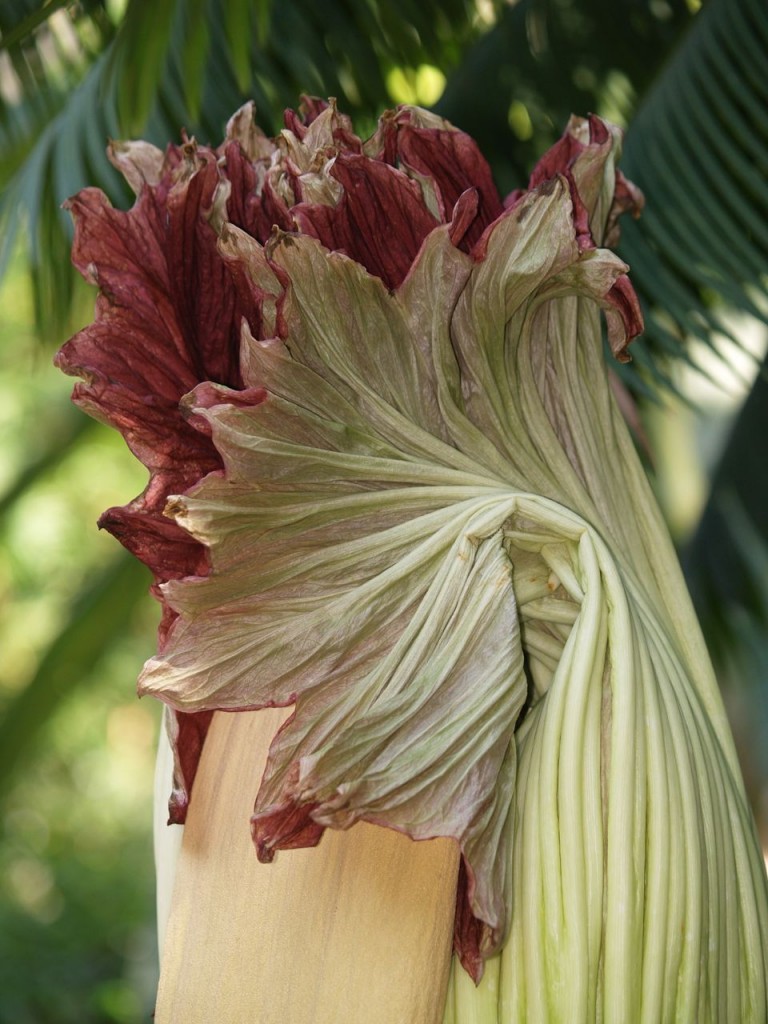
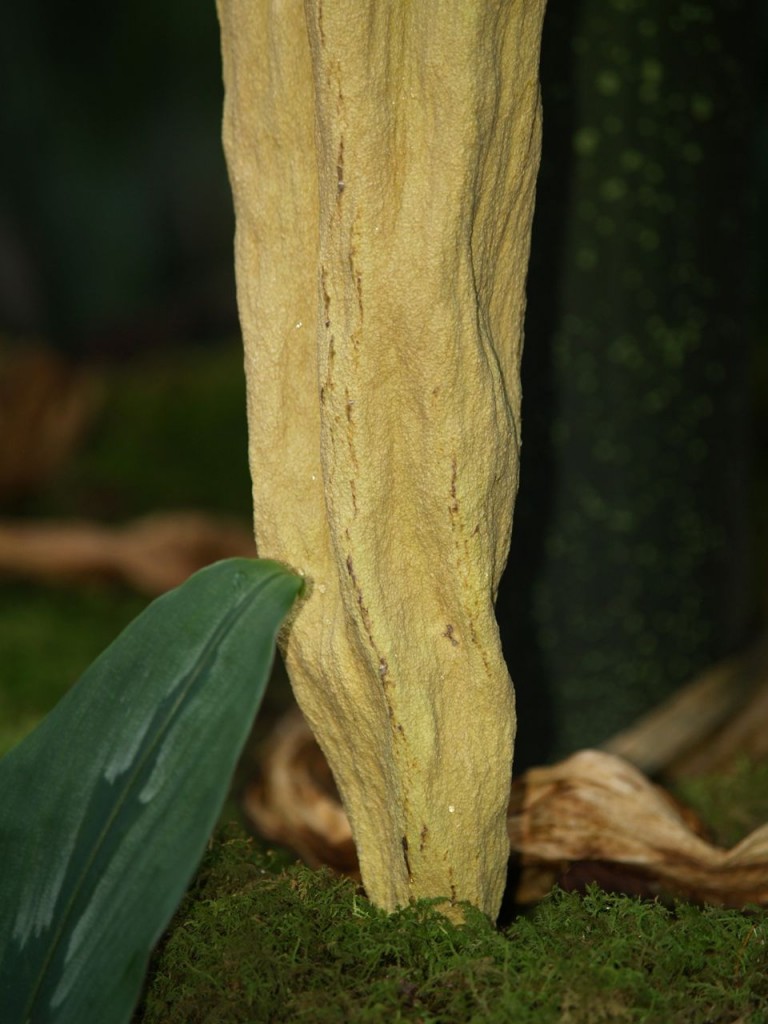 Below is the view through the lower hole cut in near the base of the spathe that shows the female flowers.
Below is the view through the lower hole cut in near the base of the spathe that shows the female flowers.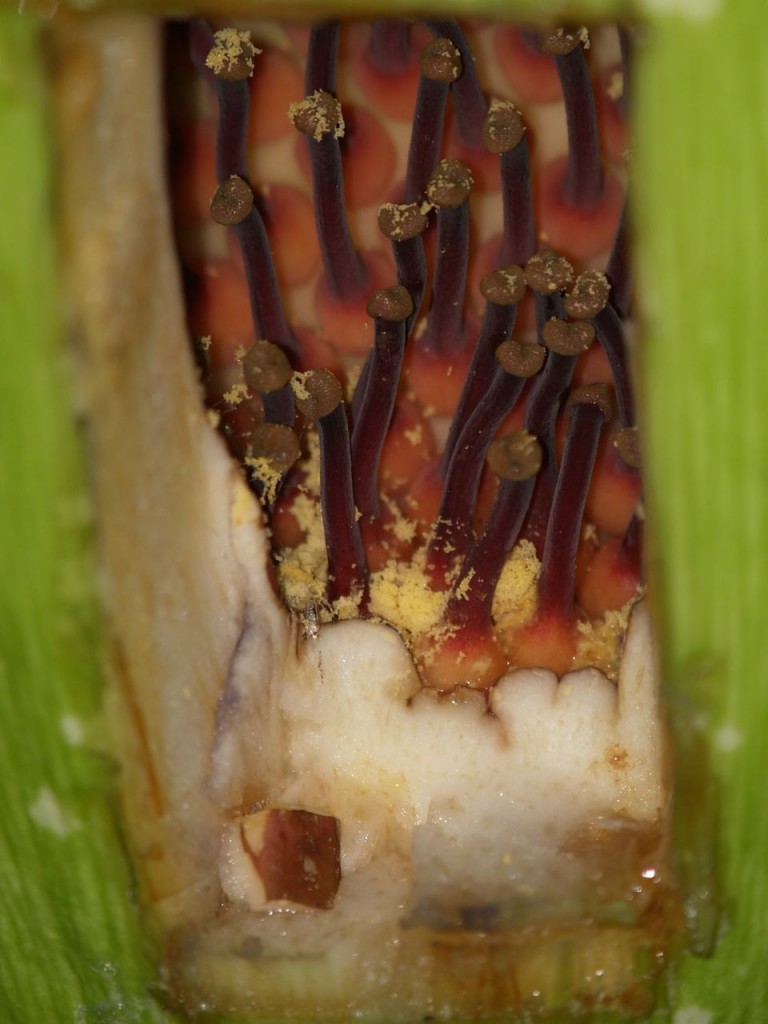
Below is the view through another slightly higher hole that was cut near the base of the spathe that shows the male flowers with the female flowers underneath the same flowers.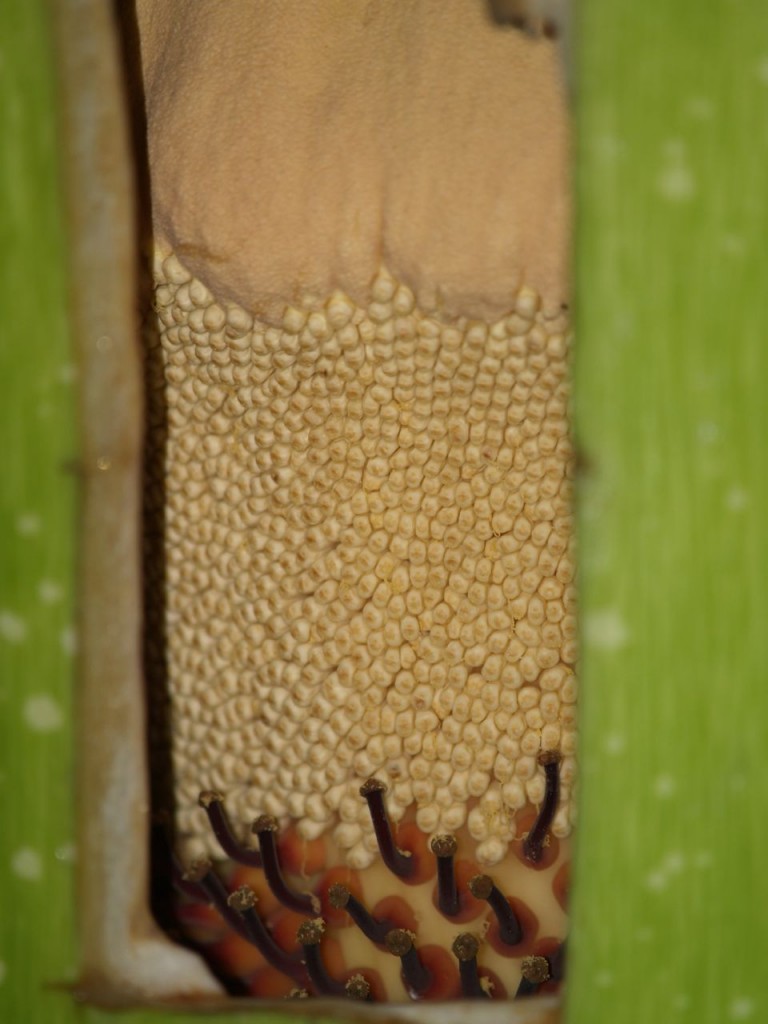
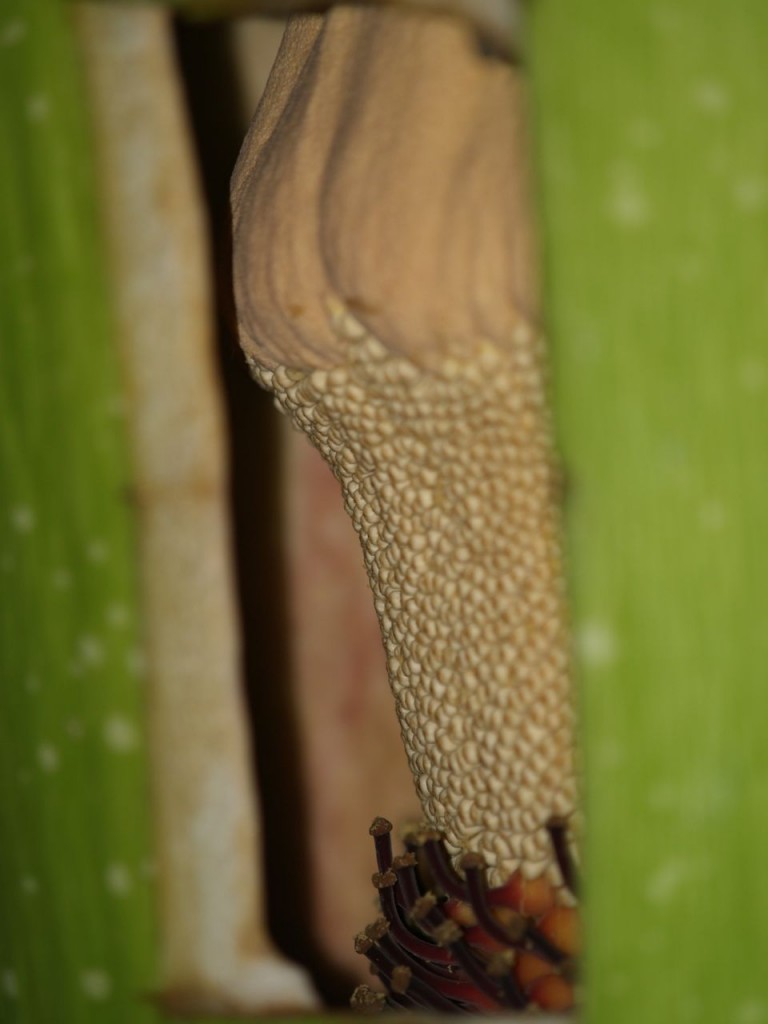
USBG Corpse Flower: July 24
I think I have already stated how I am obsessed with the corpse flower at Washington, DC’s US Botanical Garden. It should be obvious as I have photographed it everyday for the past thirteen days (July 11, July 12, July 13, July 14, July 15, July 16, July 17, July 18, July 19, July 20, July 21, July 22, and July 23). Today I realized I really am a bit too attached to it. The crowds visiting it have mostly died down, but some are still coming to see it. Some state they did not realize how quickly the bloom withered or didn’t realize they had missed the peak bloom. Today while I was photographing it, a group of teenagers were also there. They probably looked at it for only a few minutes. I saw one girl stand there, shrug her shoulders, then walk away with this “what’s the big deal” expression. I found myself thinking “don’t speak ill of the dying” as if the corpse flower might have its feelings hurt. Yes, I have grown far too attached to it. Then again, I am not the only person who anthropomorphizes it. While I was there, I heard someone tell some other people that the corpse flower was “moving on” as if it had found a better job at another botanical garden. This has caused me to get a mental image of the corpse flower dying back into its corm, then somehow extending wheels on its pot and wheeling itself over to a fancier botanical garden. This would somehow seems to be difficult without with arms or hands, but perhaps it is a really fancy pot that it can operate via low grade electrical charges in the soil. The large pot then takes to the road hauling the 80-lb or so corm to the fancier botanical garden with a better staff of botanists to care for it. DC traffic is bad enough without having to deal with a large pot containing a corpse flower corm slowing driving itself to a new greenhouse. Yes, I’ll stop with this nonsense now.
The blossom continues to wither. The spathe has collapsed completely back towards the spadix, and the spadix appears to be shrinking more. The plant is more yellow and the spathe looks crispy and dehydrated. I think the spadix is starting to lean also. As always, see the “Corpse Flower” page on my website that has photos from everyday that shows the whole plant so the photos can be more easily compared as well as a video that has a slide show of photos. Finally, I continue to give the smell report for old time’s sake. There is no smell.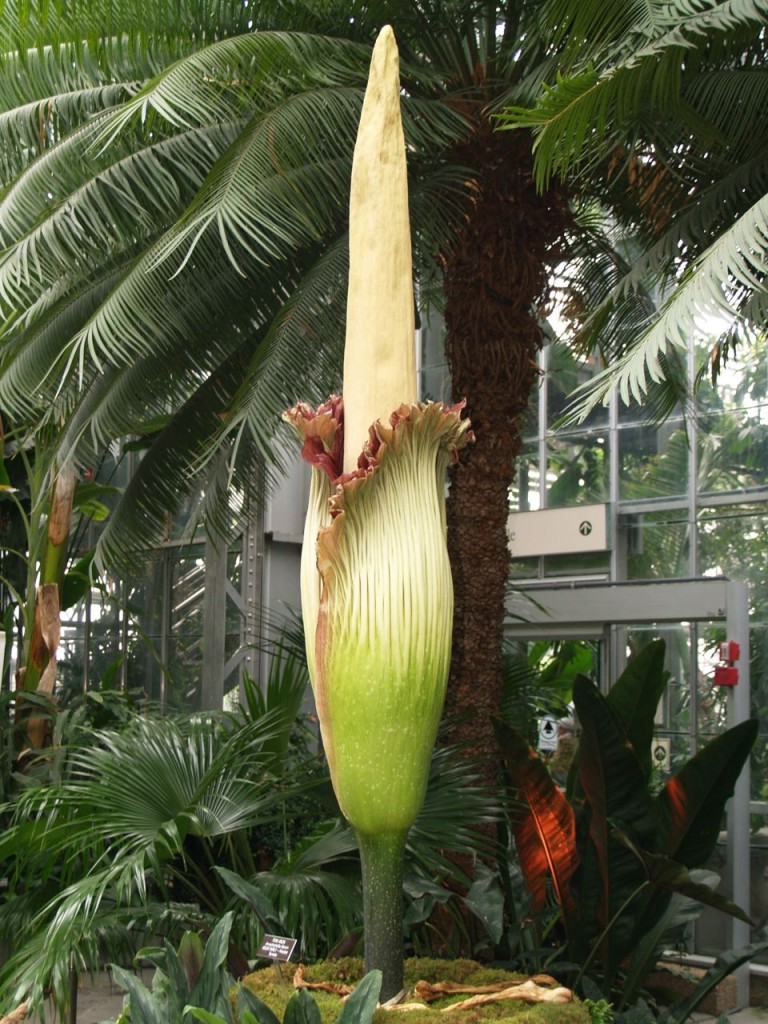
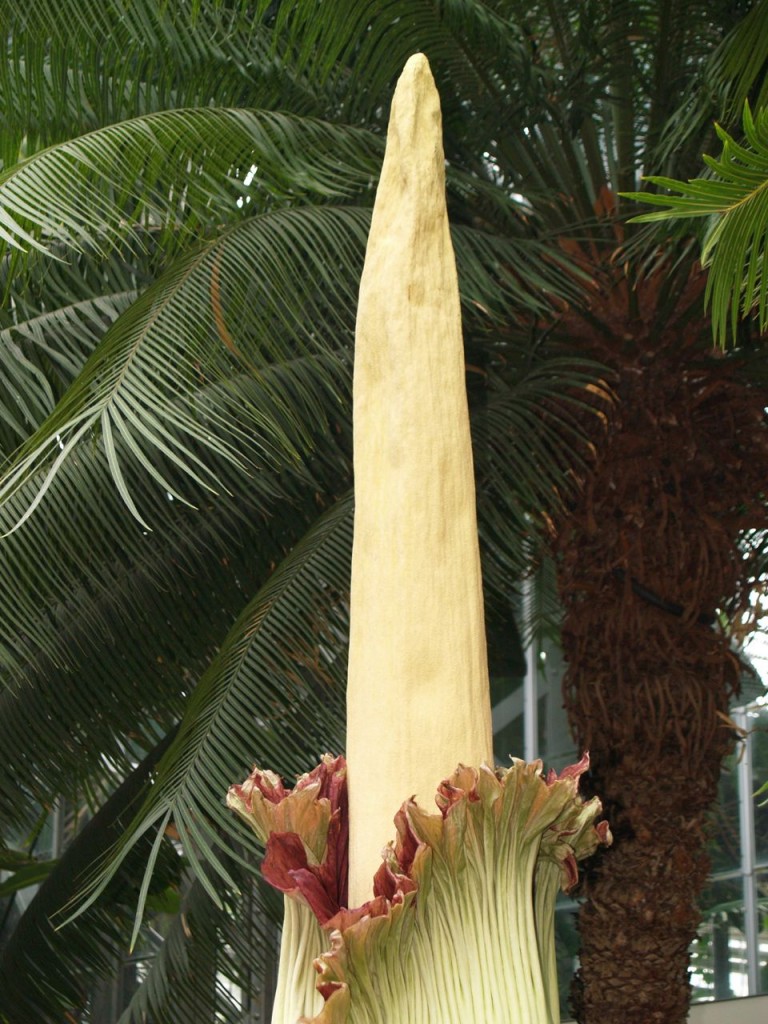
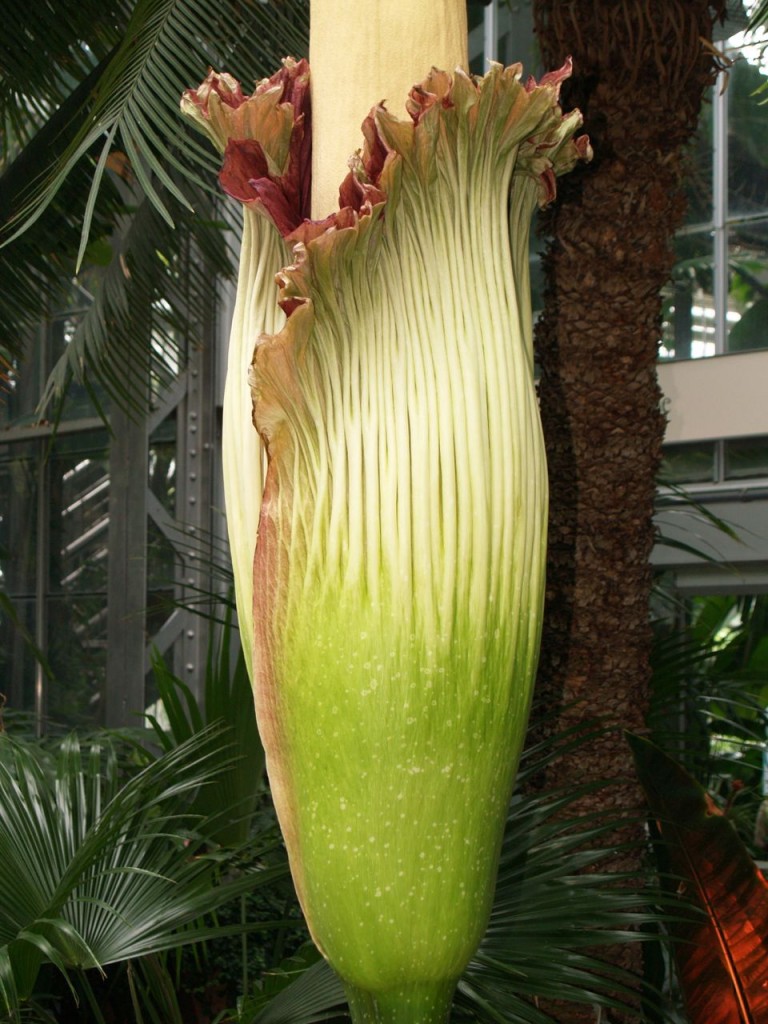
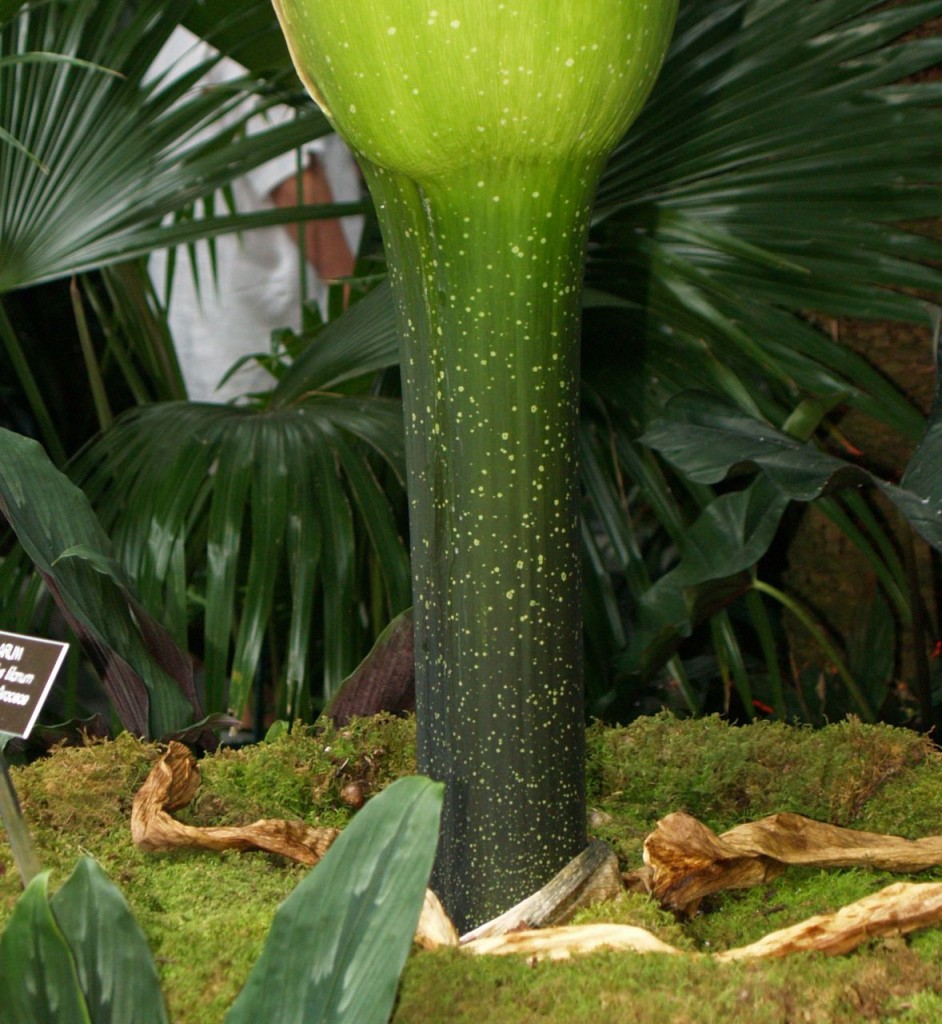
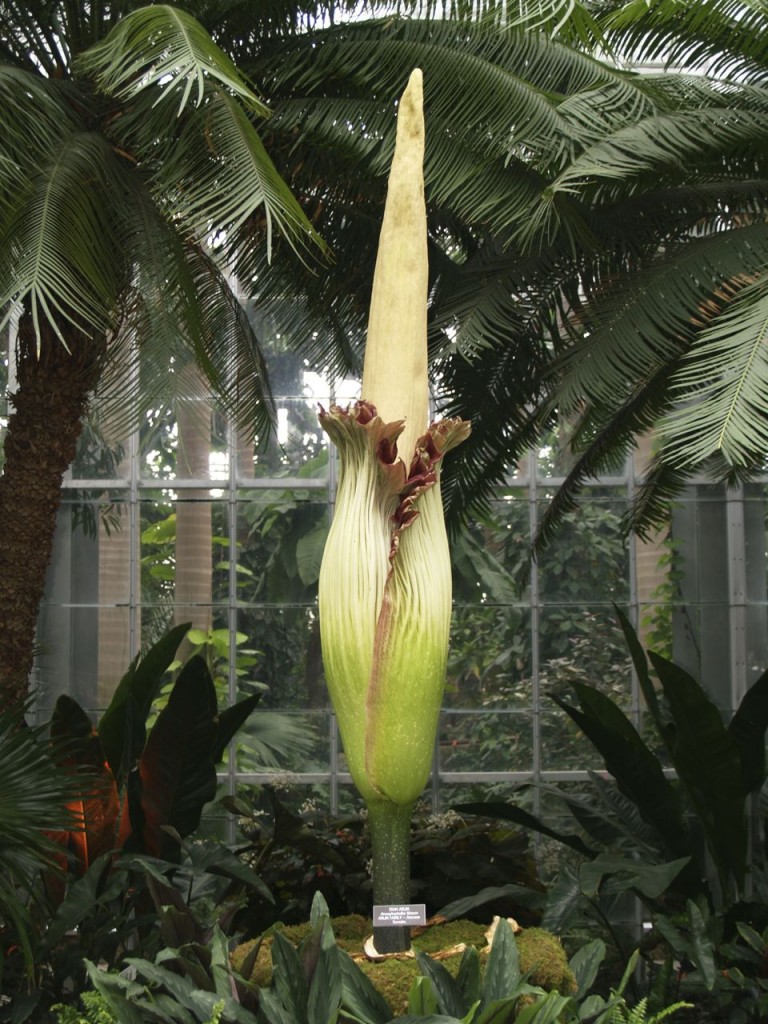
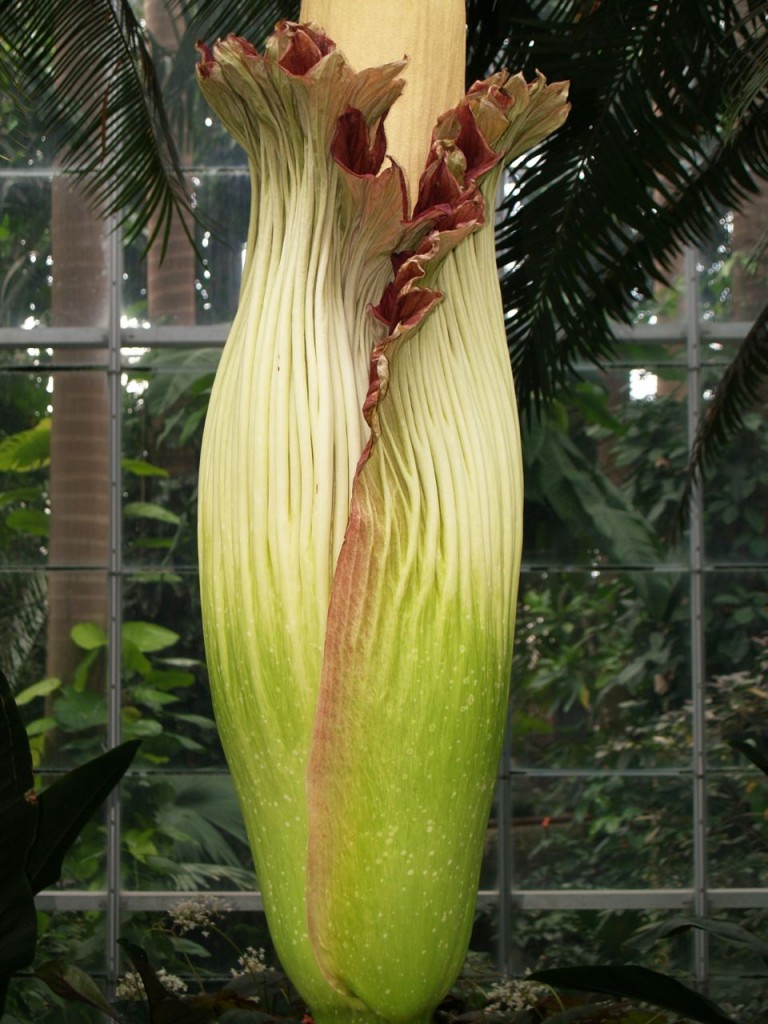
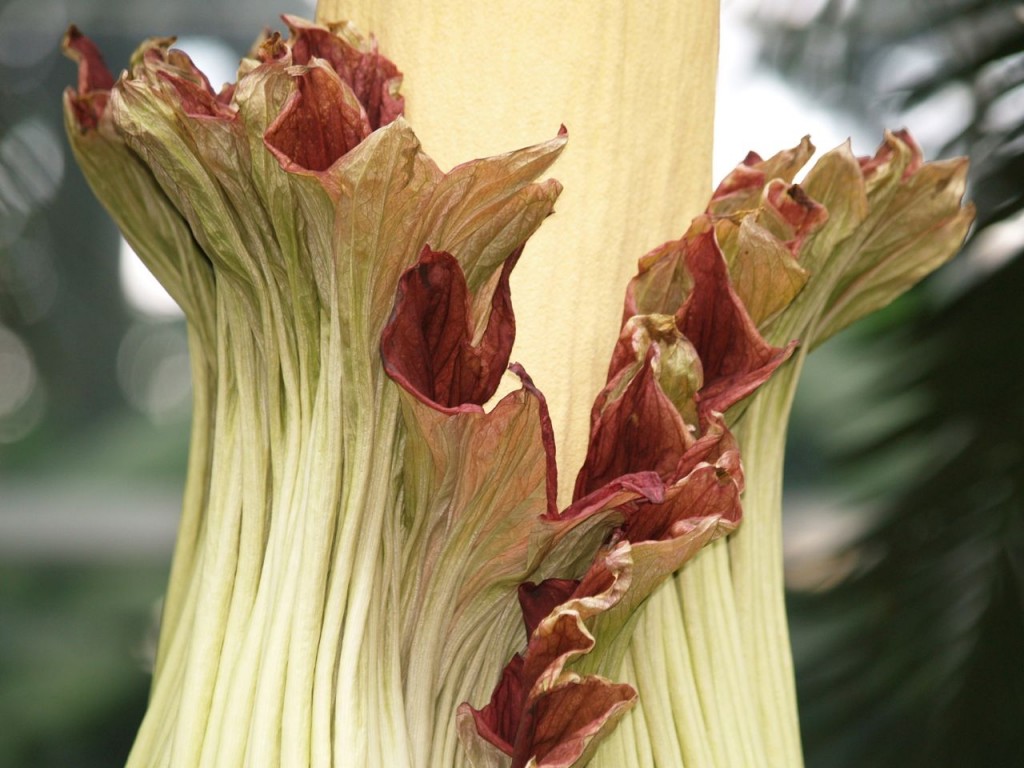
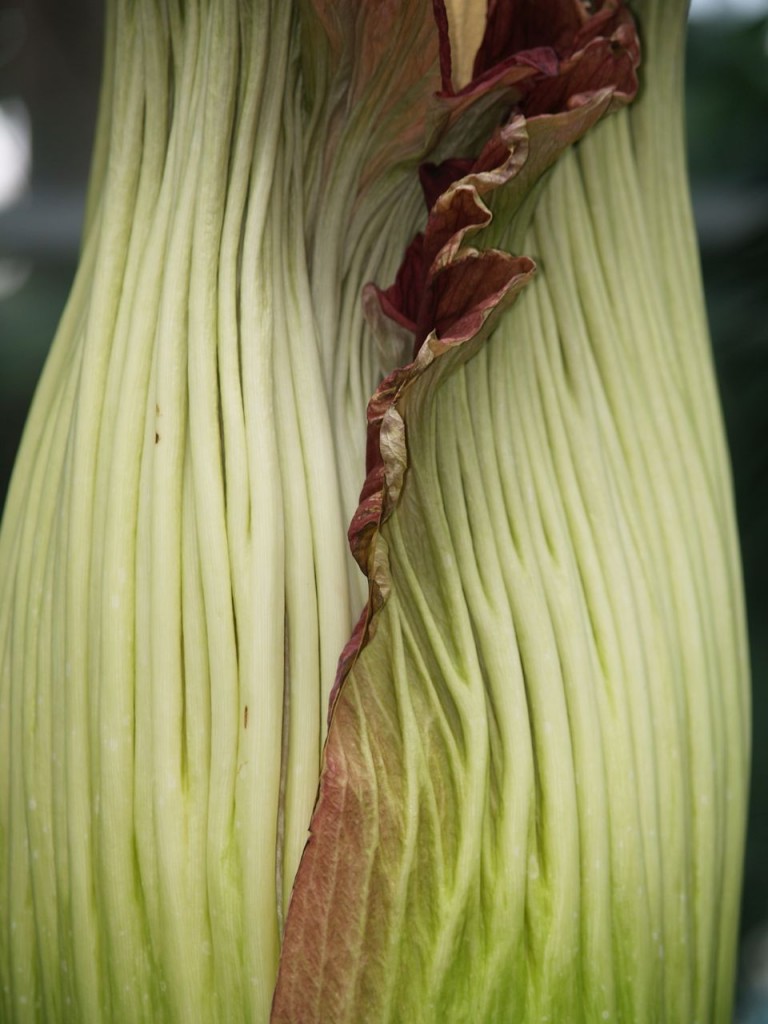
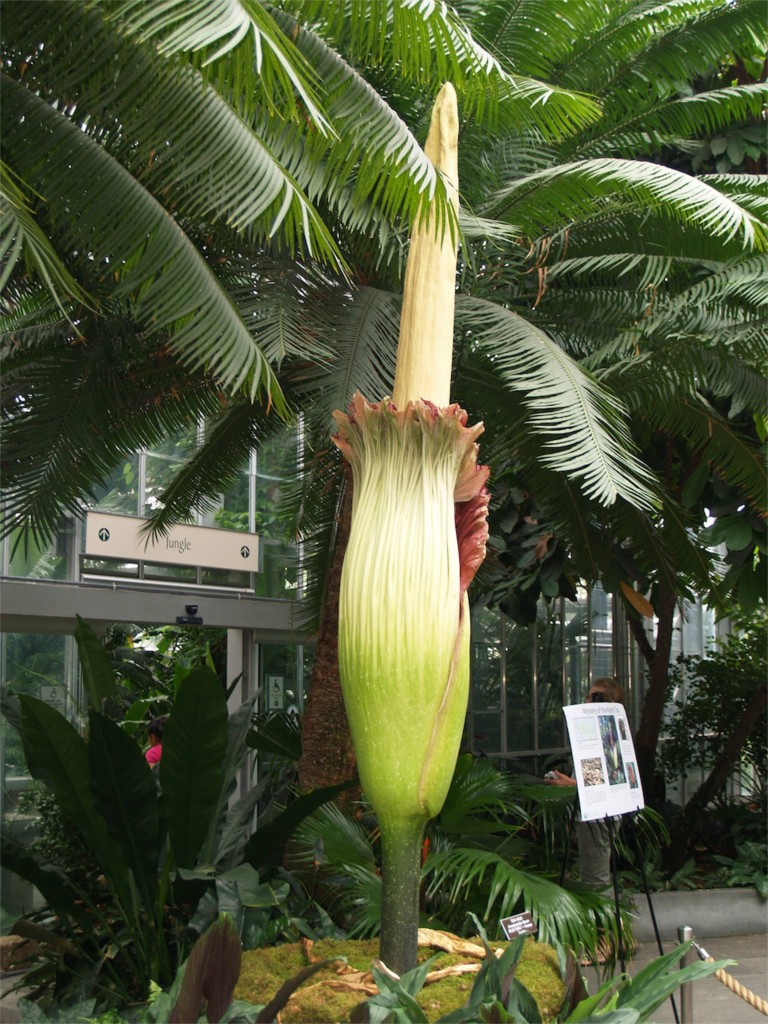
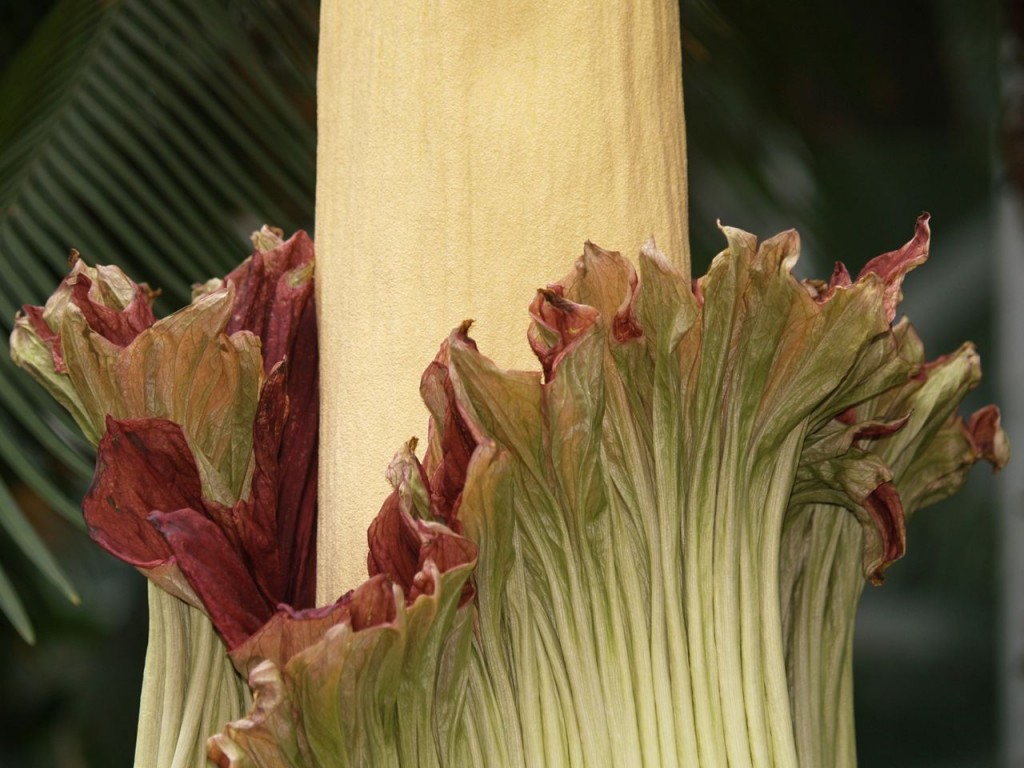
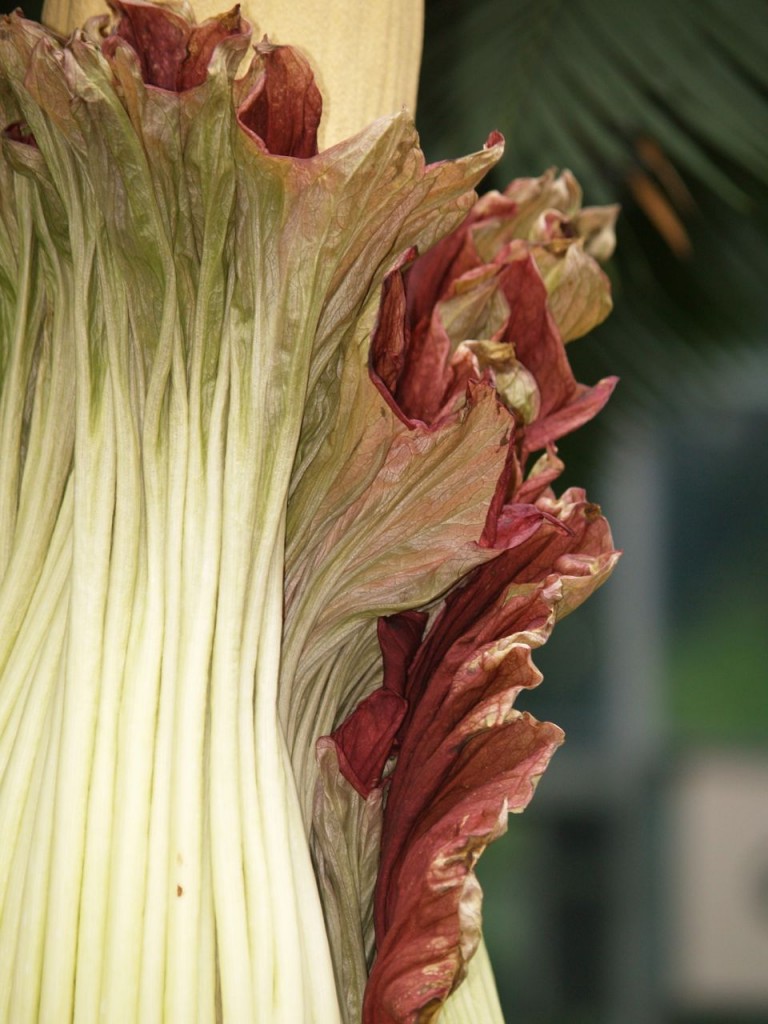
USBG Corpse Flower: July 23
The corpse flower at Washington, DC’s US Botanical Garden’s was in peak bloom yesterday. The spathe is now collapsing back towards the spadix, and the entire plant is starting to wither. The spadix and the upper part of the spathe are starting to become more yellow and less green. The fringe of the spathe reminds me of the leaves of a plant that needs water. As always, to see the changes the plant has gone through, view the photos from the past twelve days (July 11, July 12, July 13, July 14, July 15, July 16, July 17, July 18, July 19, July 20, July 21, and July 22). Also, see the “Corpse Flower” page on my website that has photos from everyday that shows the whole plant so the photos can be more easily compared as well as a video that has a slide show of photos. Finally, as for the daily smell report, there is no smell. The time for the smell is over, but I suppose if they leave it out long enough, it might start to smell as it decays.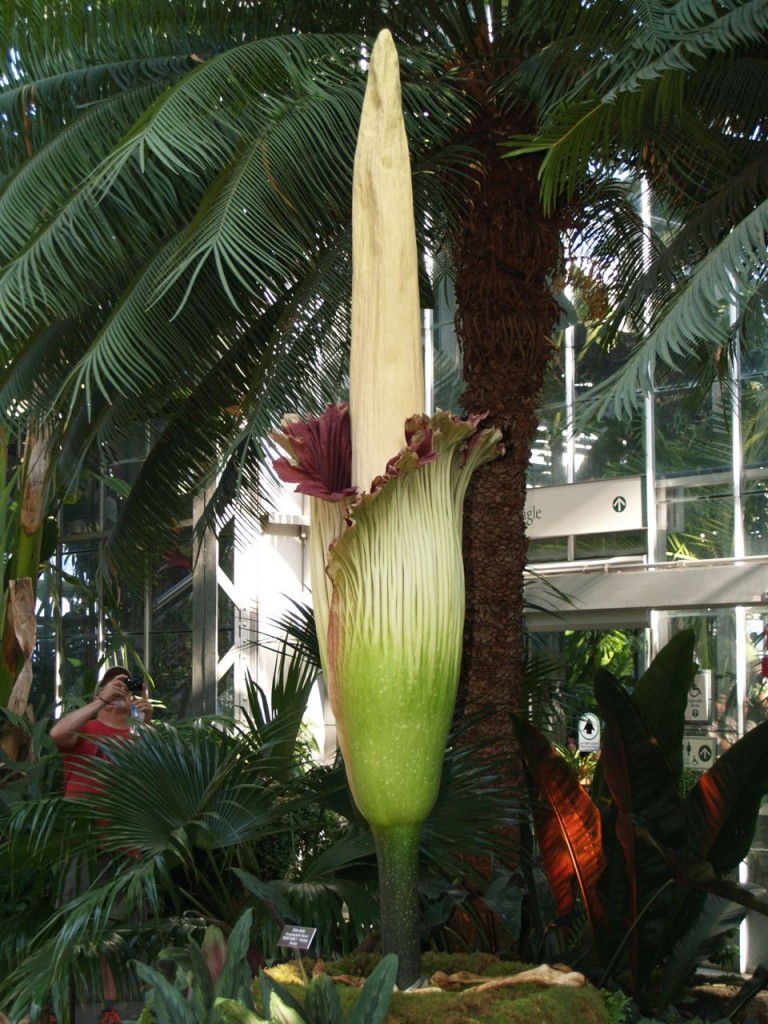
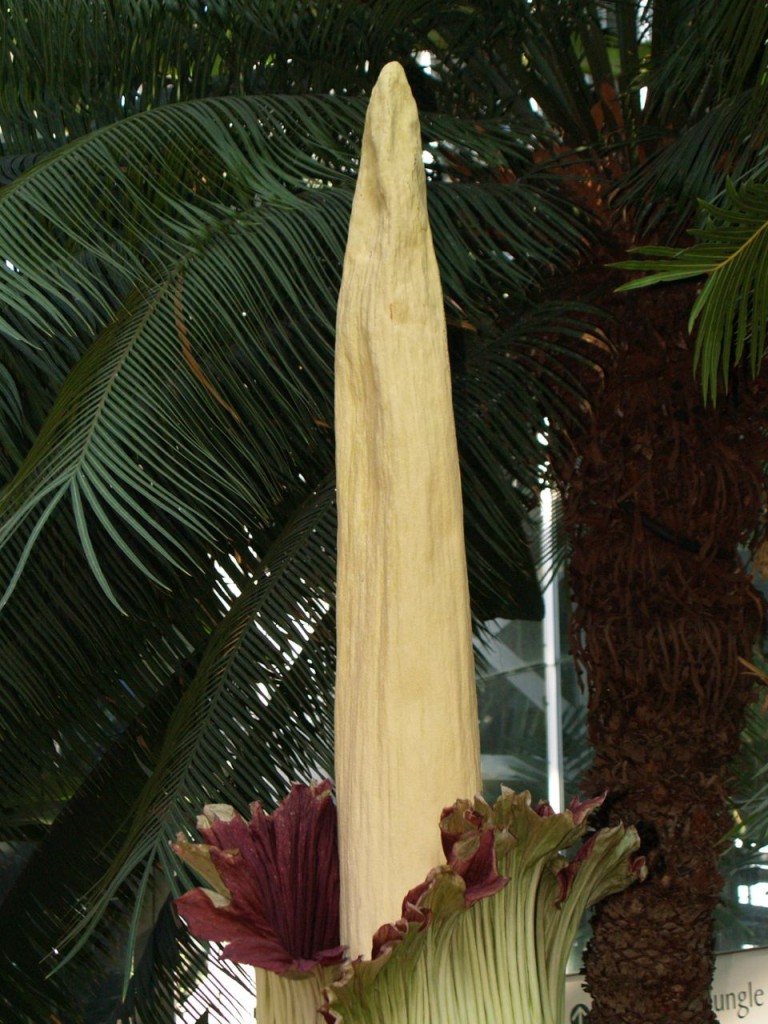

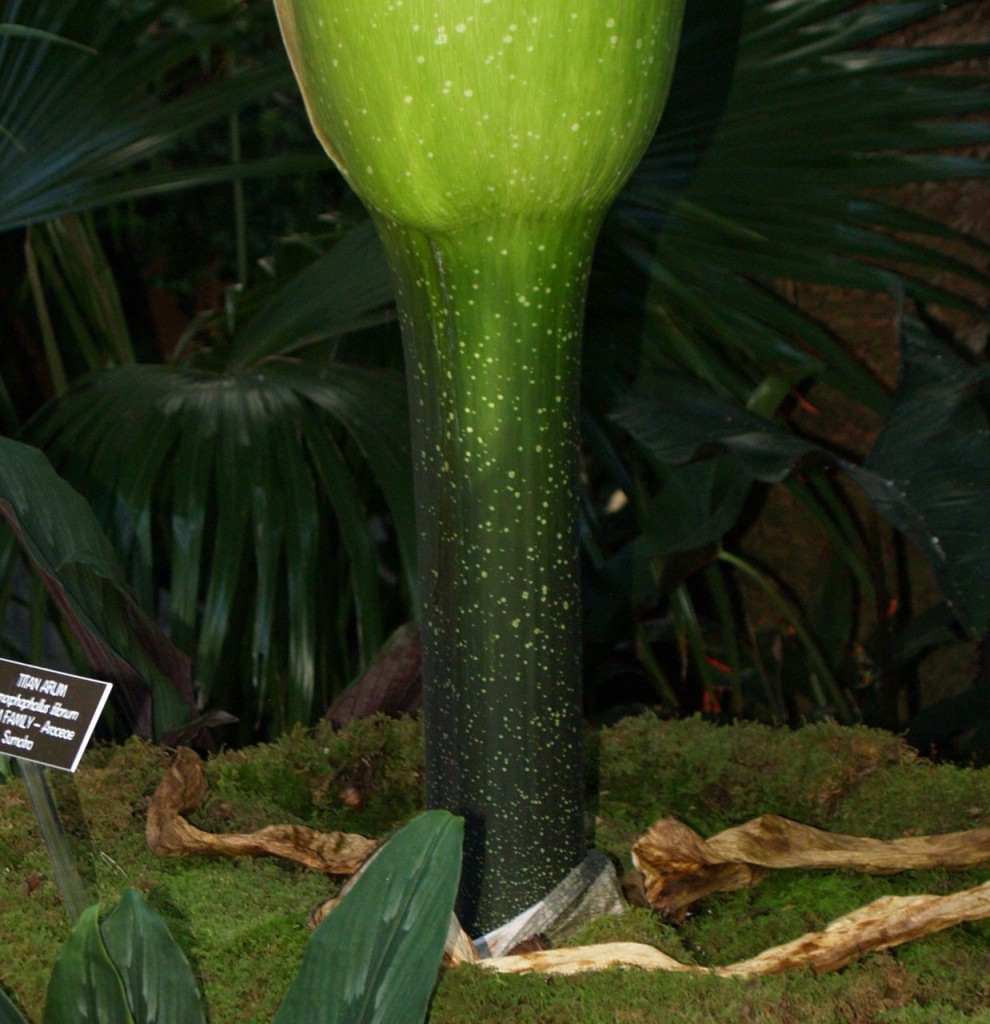
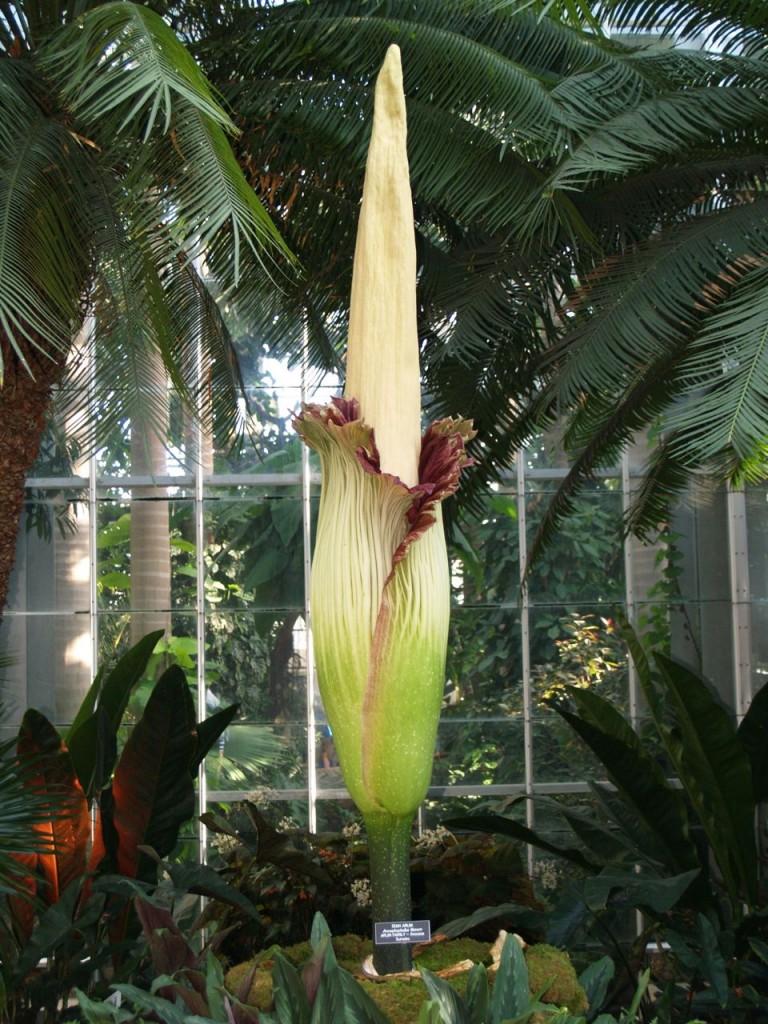
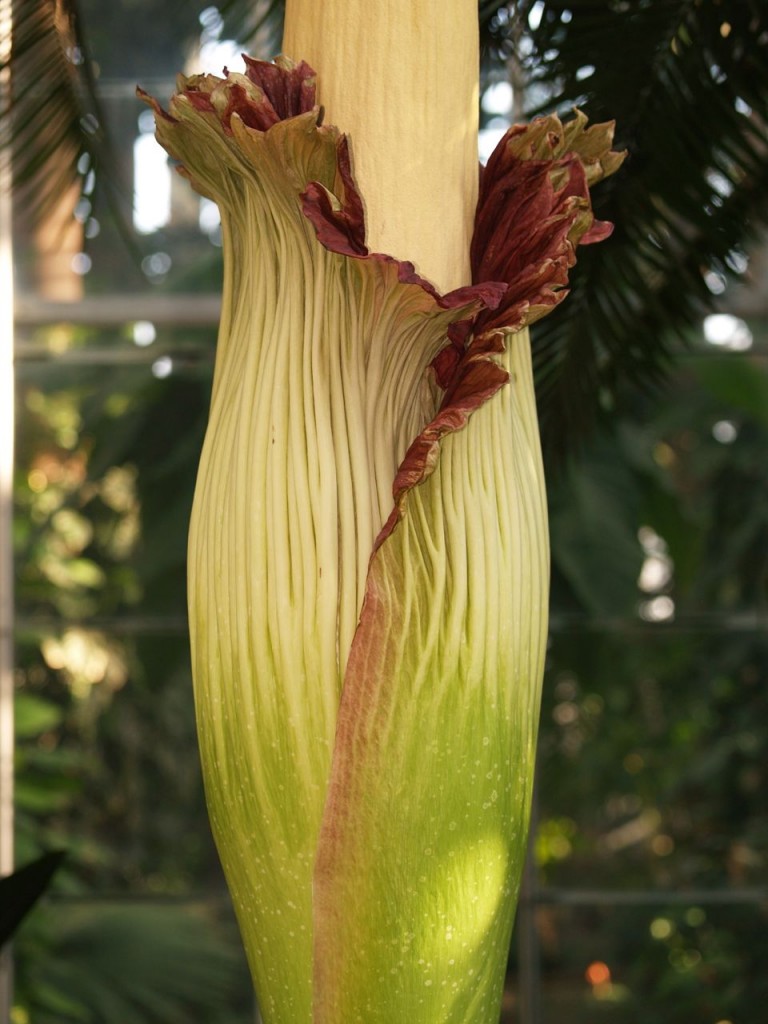
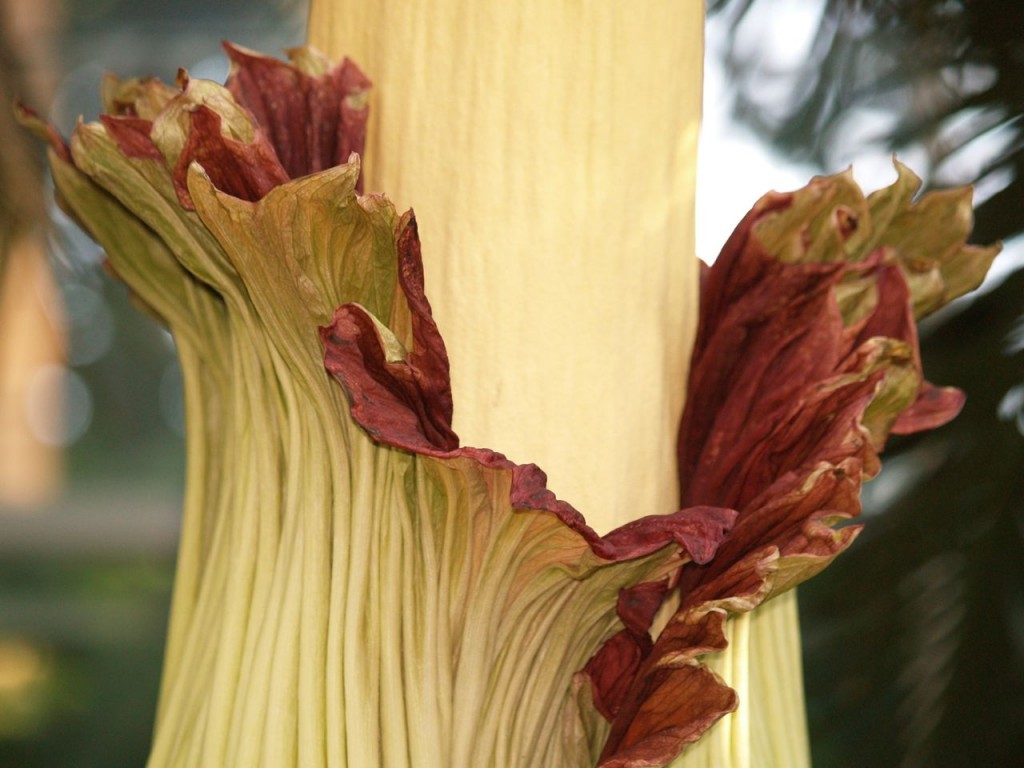
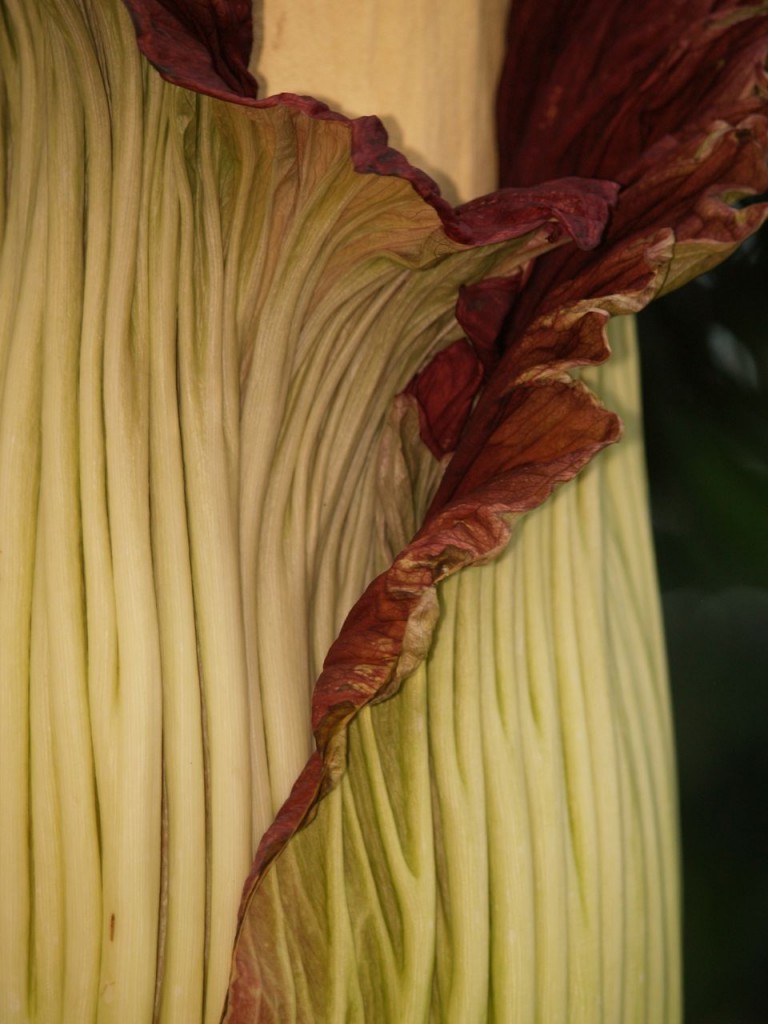
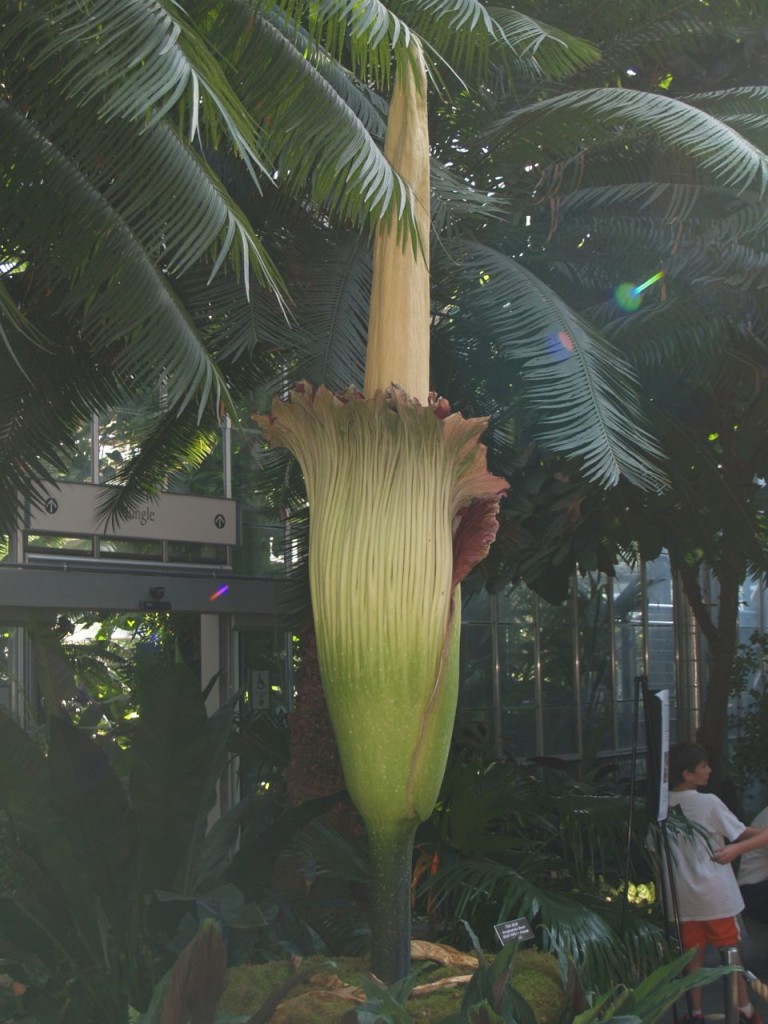
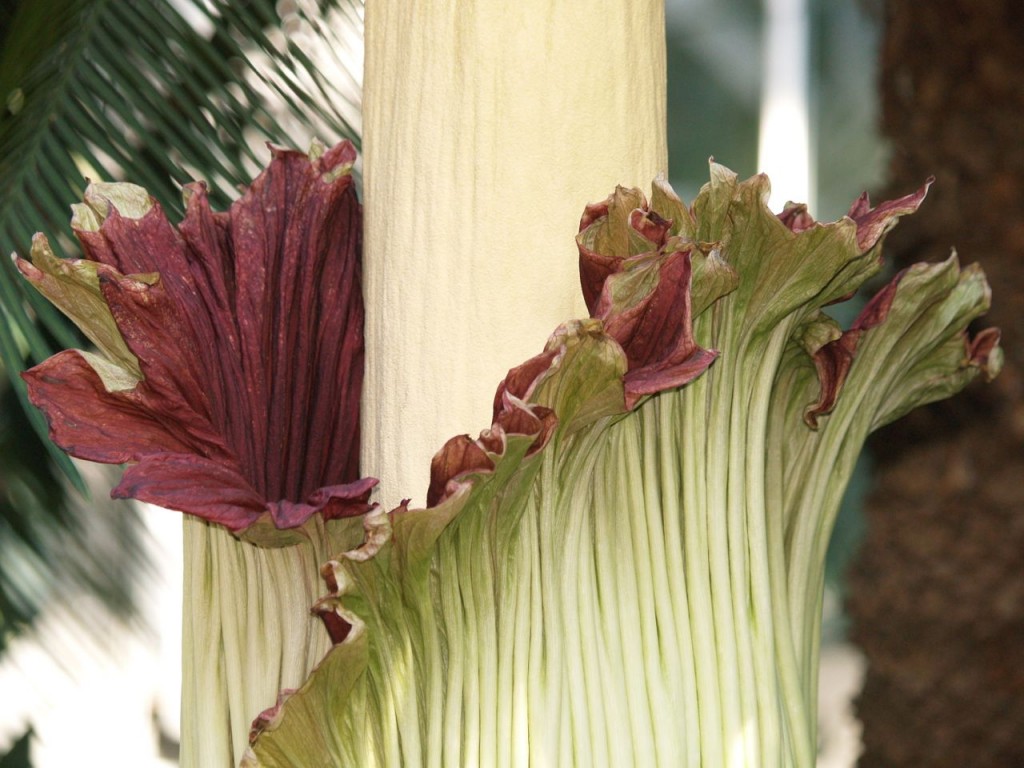
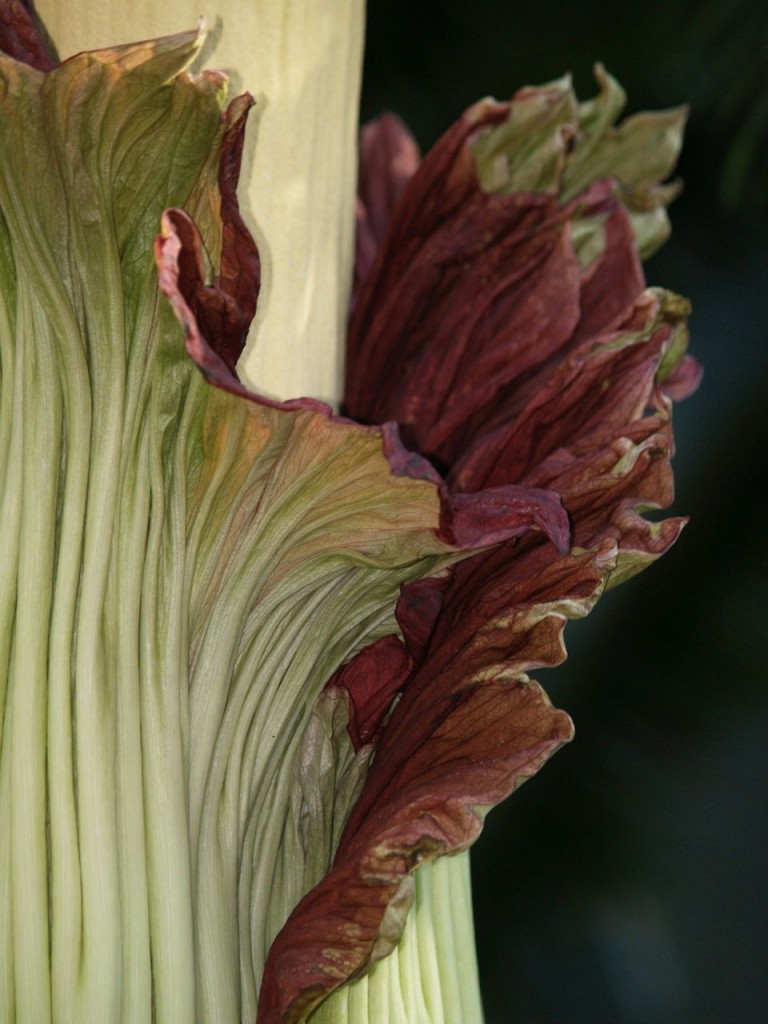
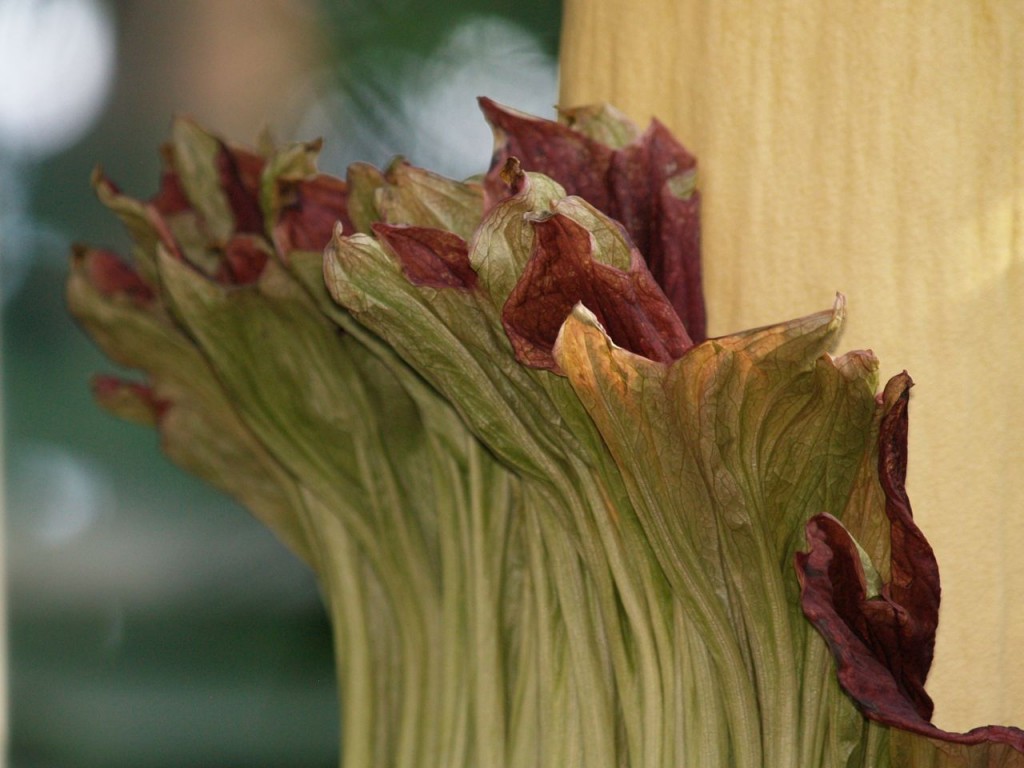
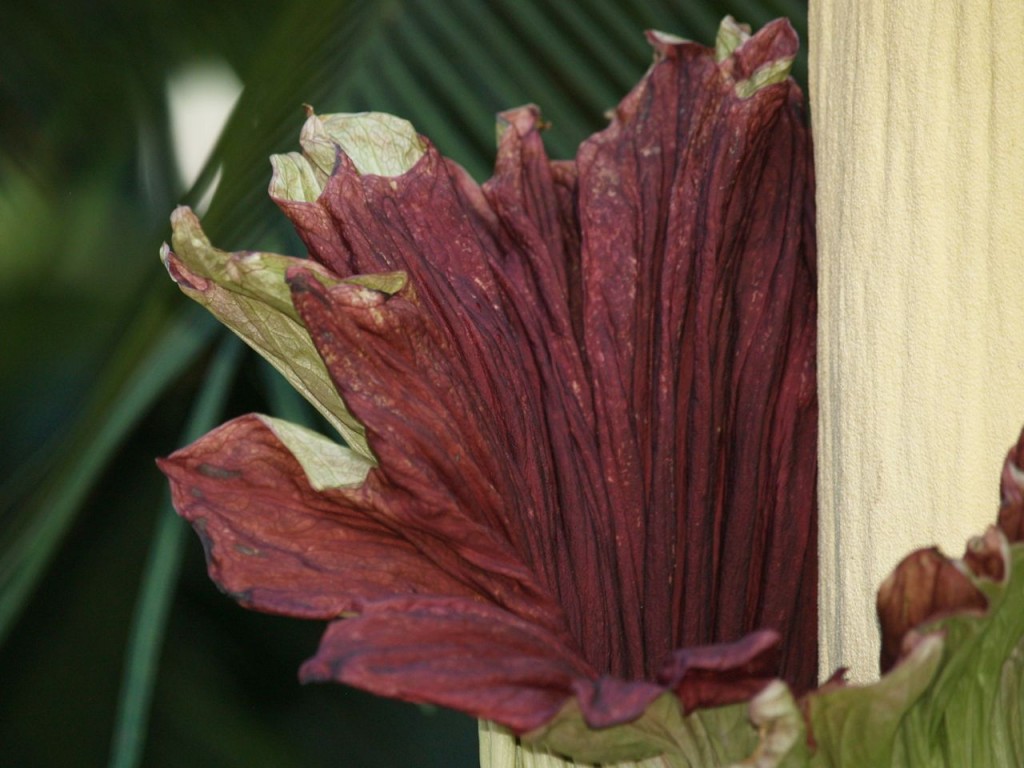
USBG Corpse Flower: July 22 am
The corpse flower at Washington, DC’s US Botanical Garden’s is finally blooming! It is in full bloom now with the spathe completely open. It is absolutely gorgeous. The interior is a deep crimson color, and when the spathe is viewed from below, it looks pinkish as the crimson color is filtered through it. I don’t think my photos can completely do it justice, but I certainly tried. As always, to see the changes the plant has gone through, view the photos from the past eleven days (July 11, July 12, July 13, July 14, July 15, July 16, July 17, July 18, July 19, July 20, and July 21). Also, see the “Corpse Flower” page on my website that has photos from everyday that shows the whole plant so the photos can be more easily compared as well as a video that has a slide show of photos. Finally, as for the daily smell report, I am sorry to report that when I was there from 10 to 11 this morning, there was no smell. I got within four feet of it, and I have a very sensitive nose, but I didn’t smell anything, other than the sweaty people around me. A staff member told me that the smell was most potent late last night. 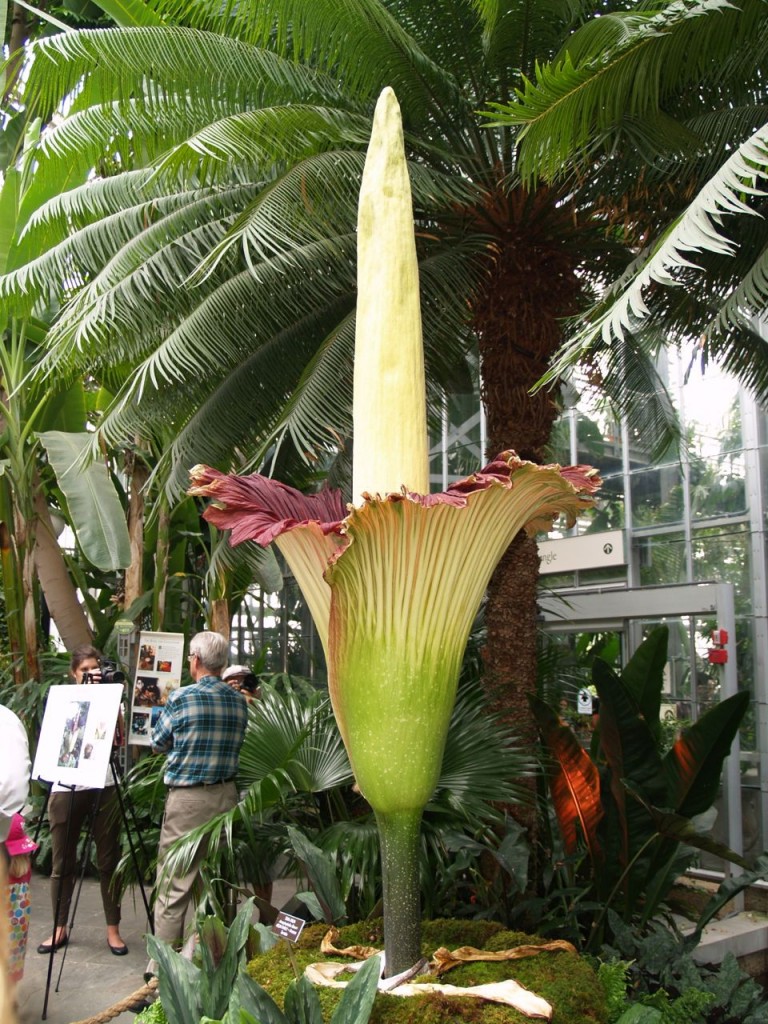
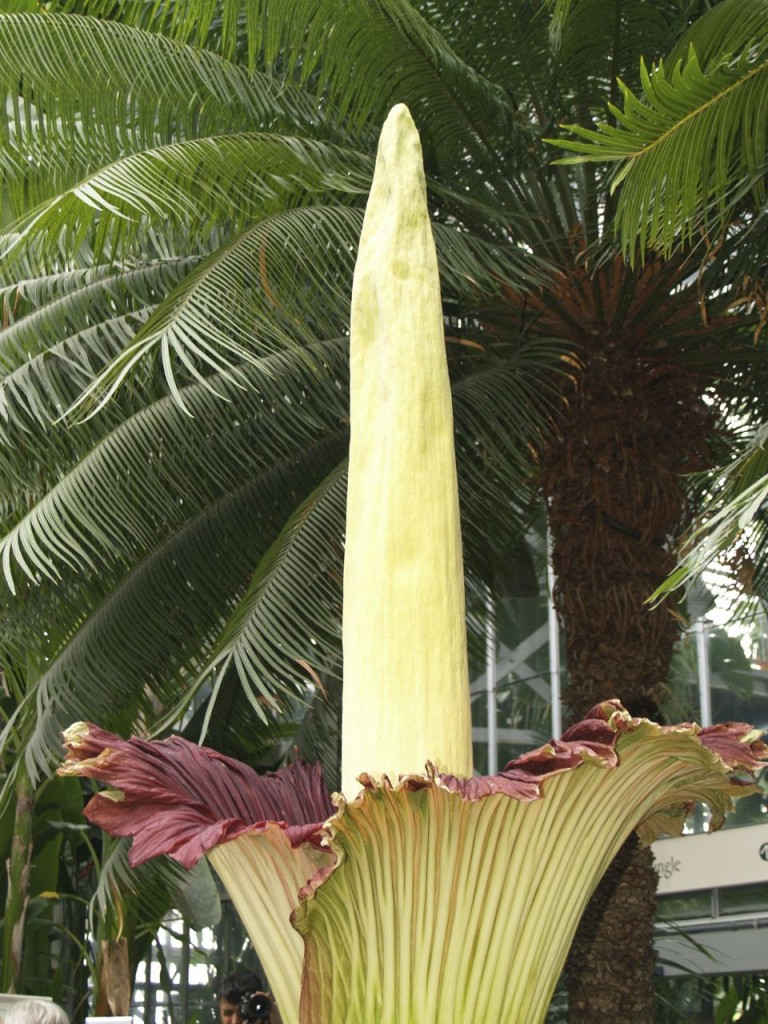
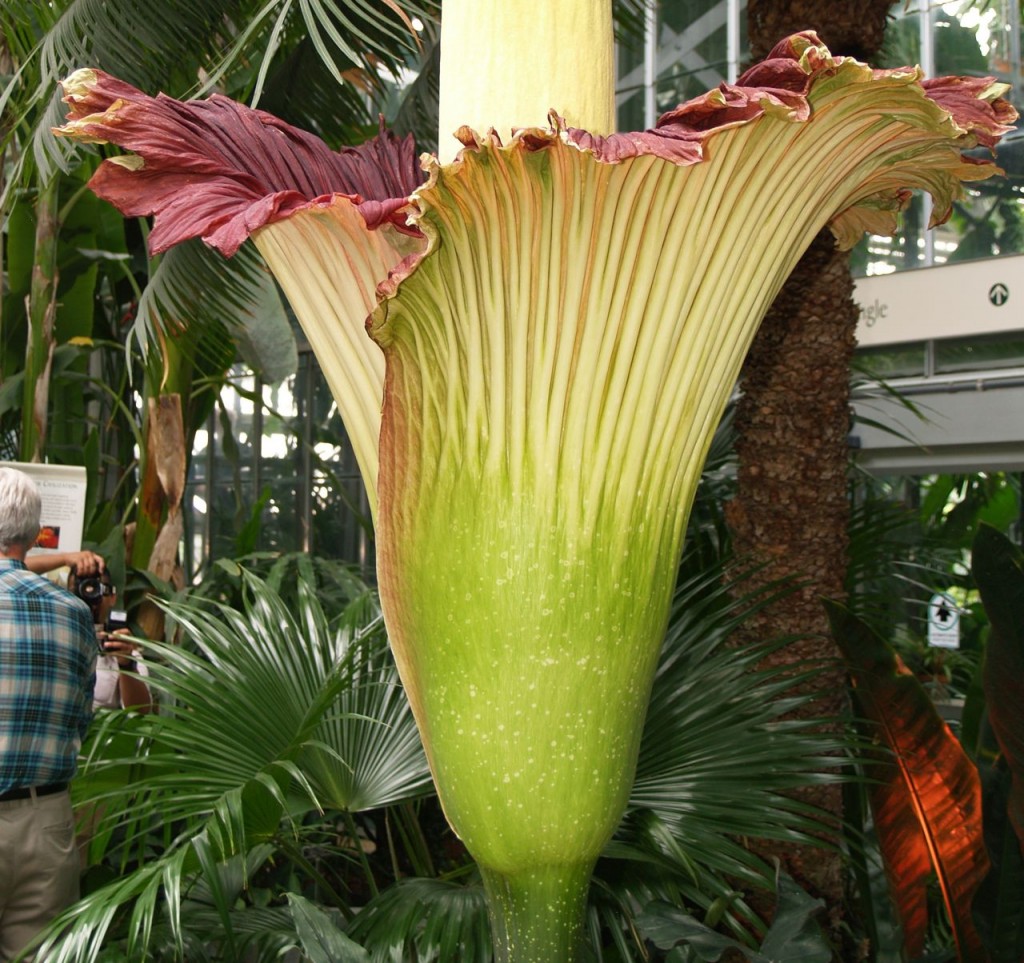
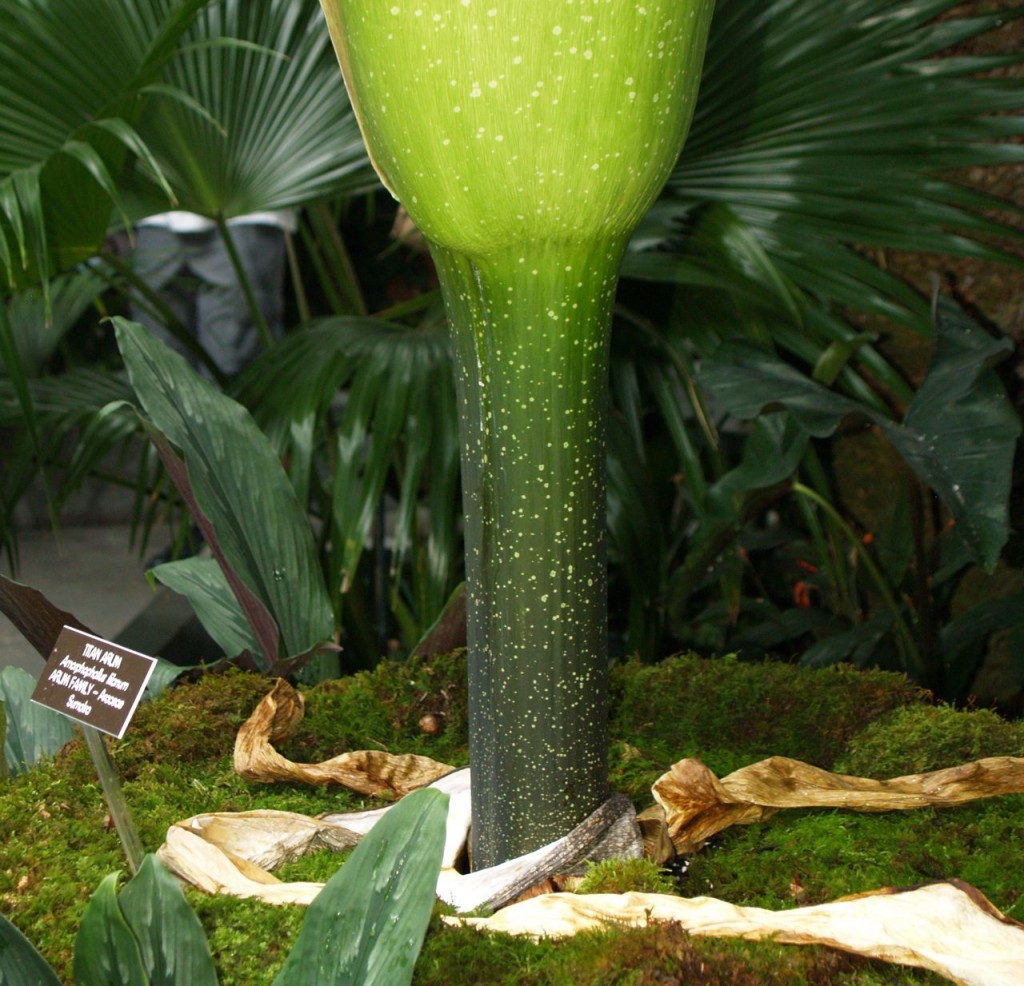
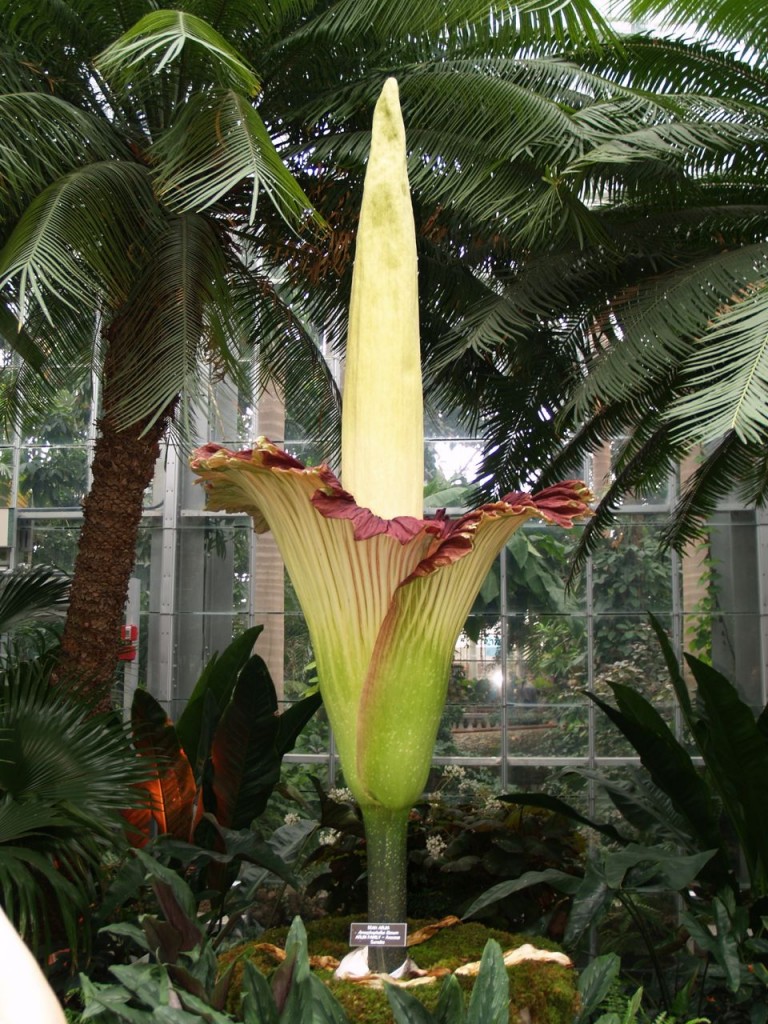
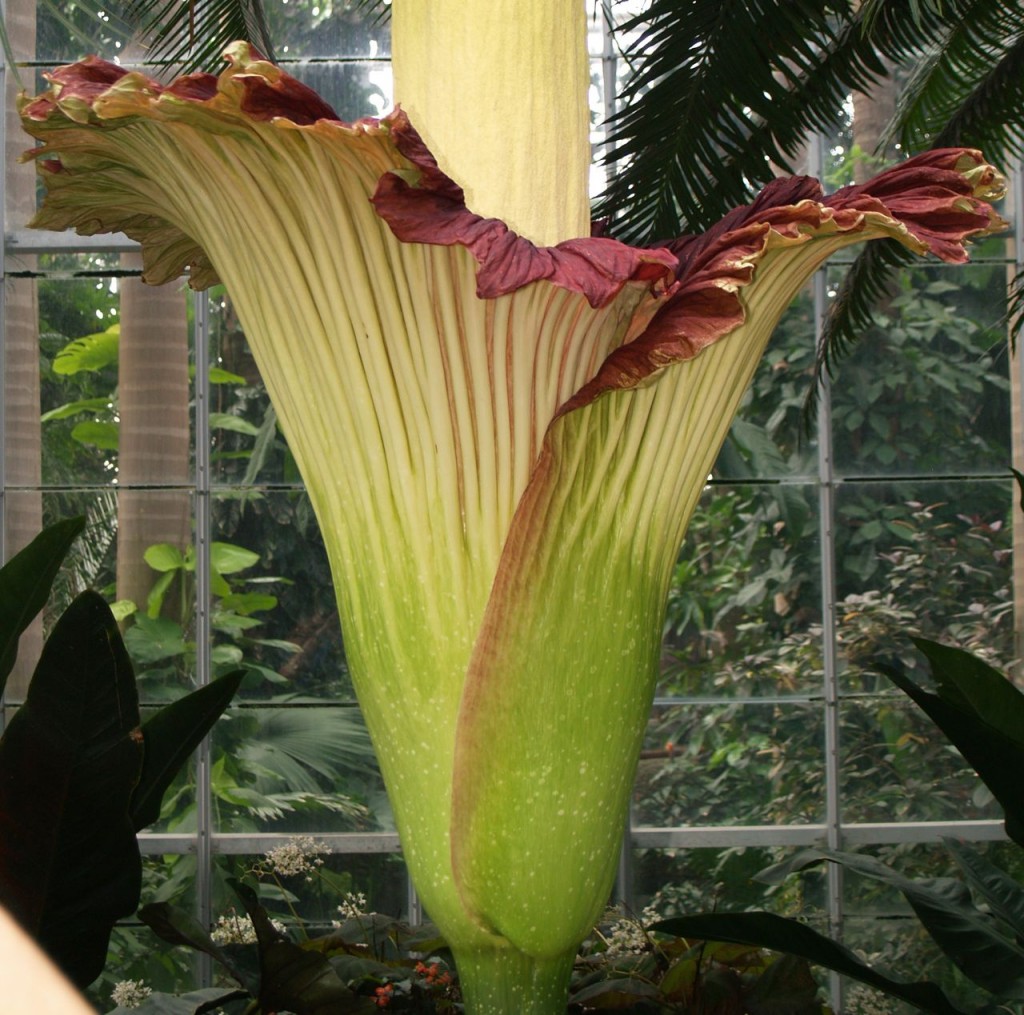
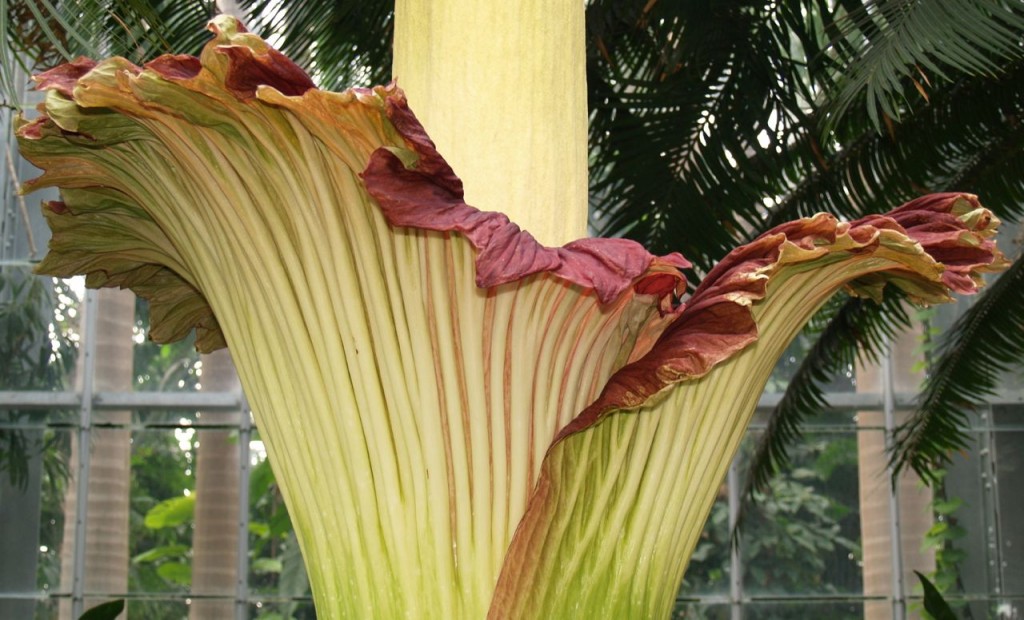
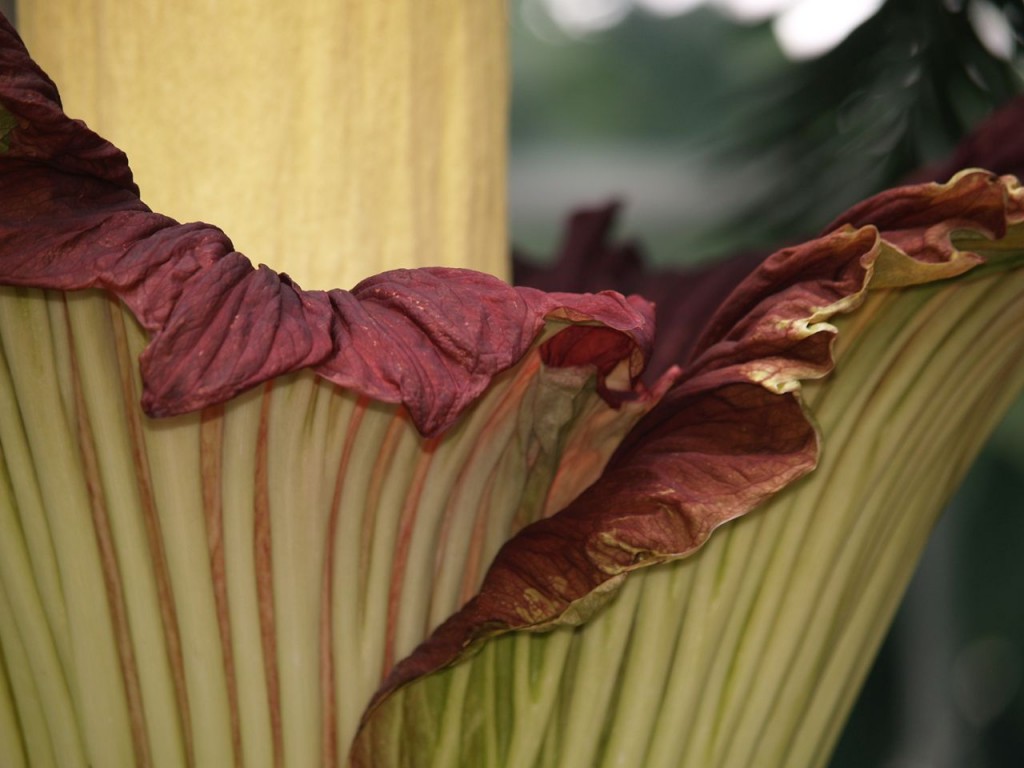
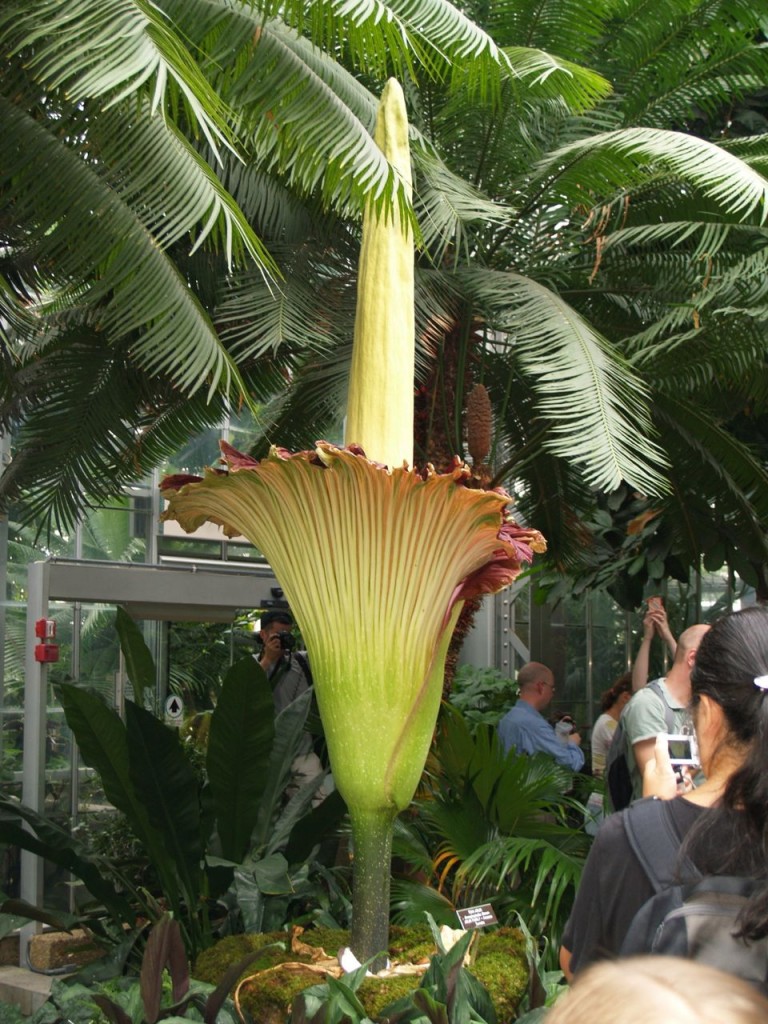
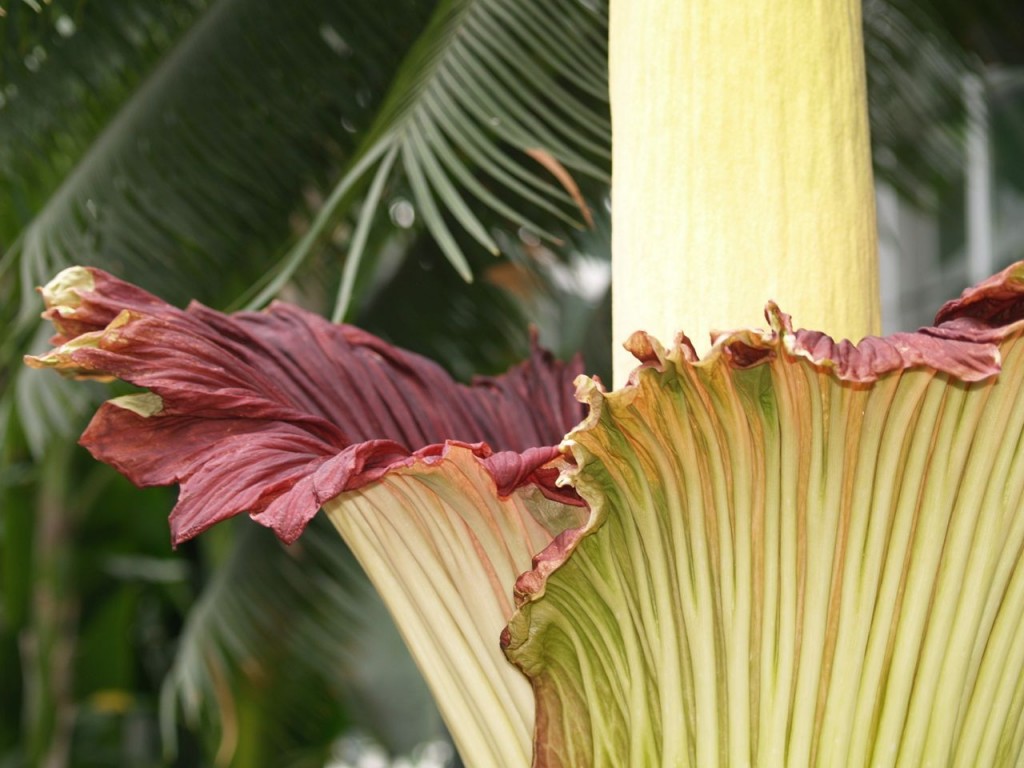
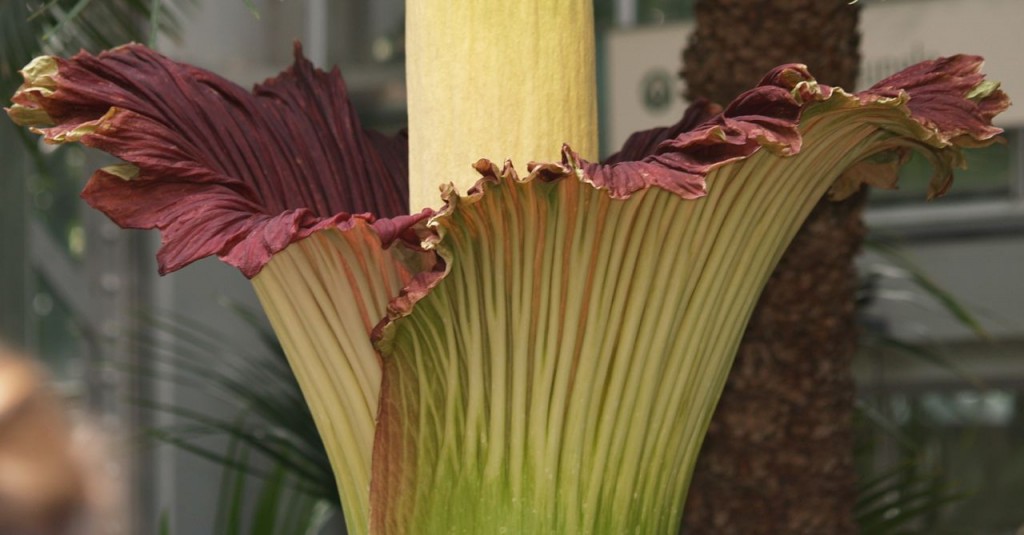
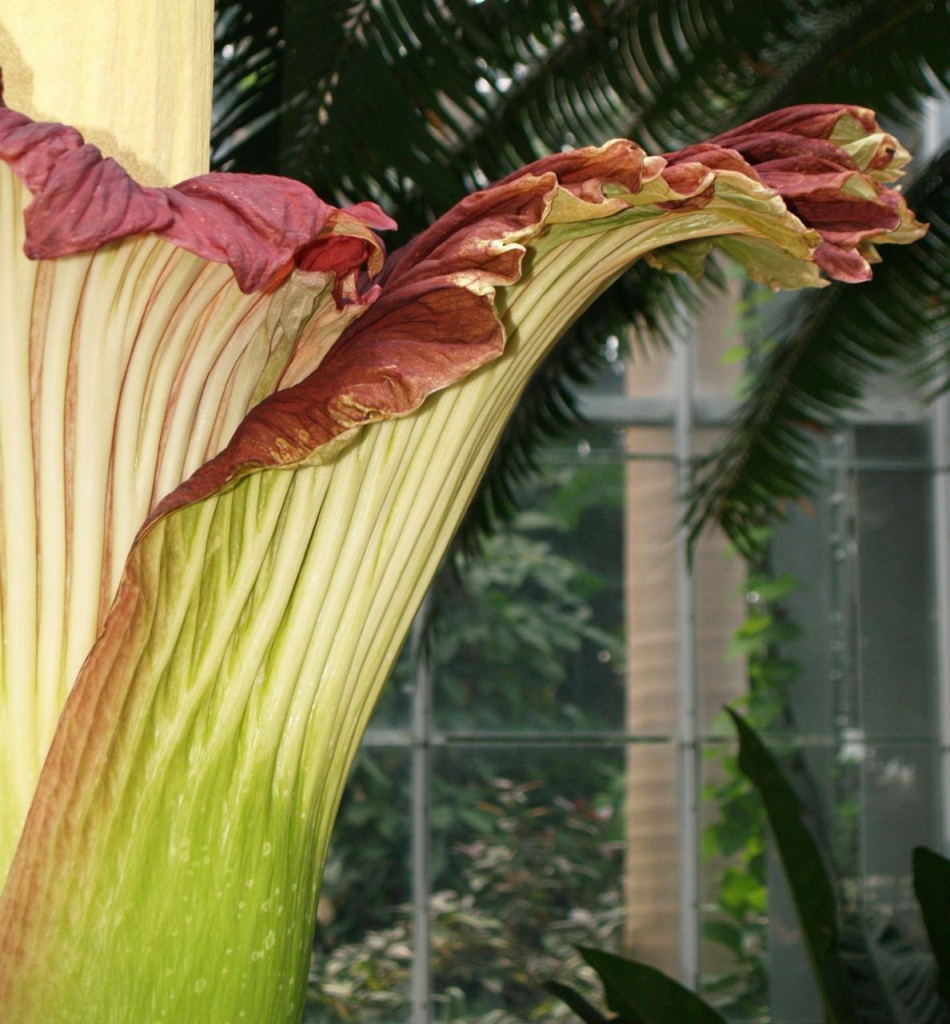
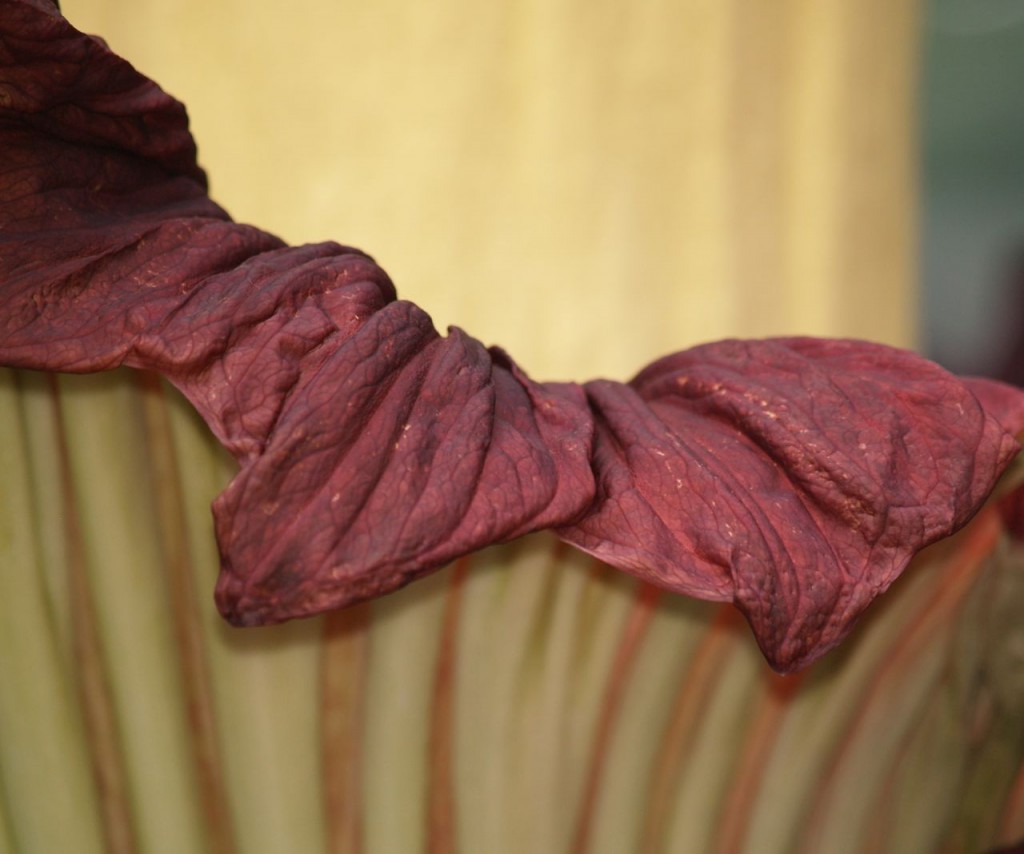
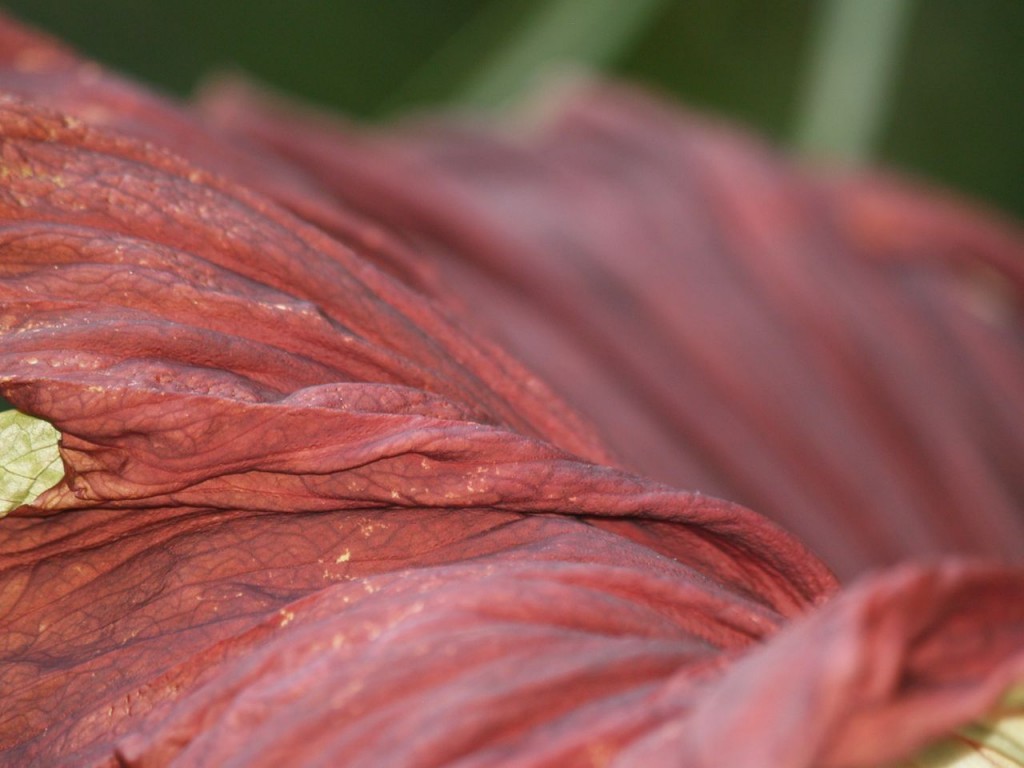
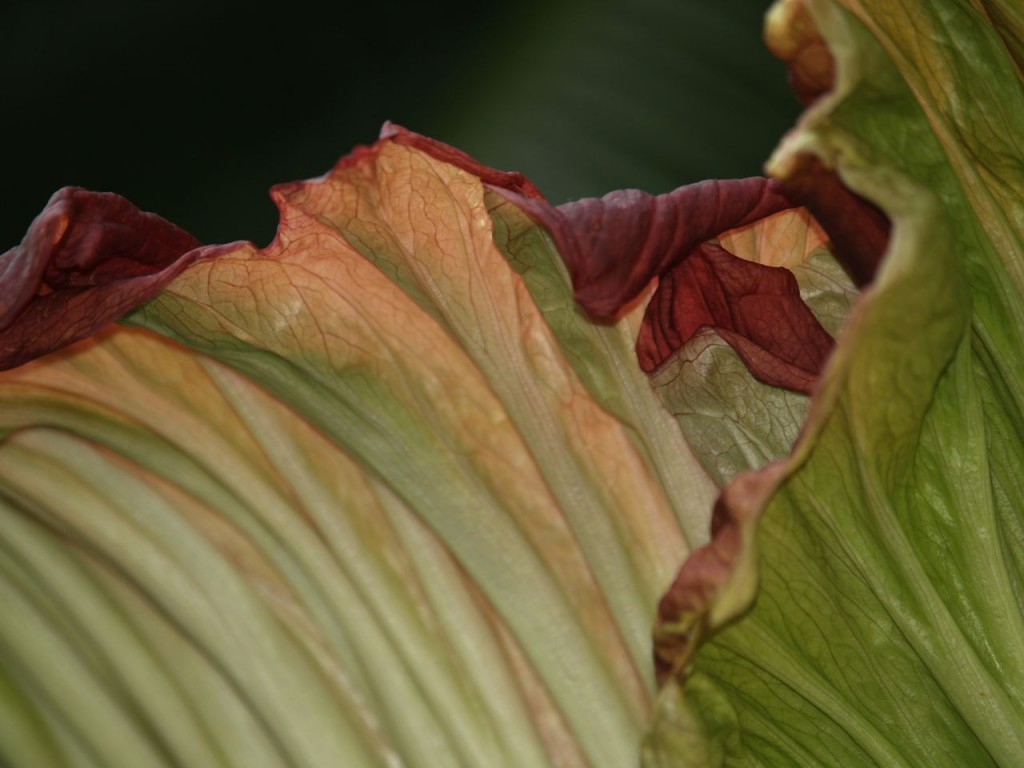 The below photo is almost the exact same photo as the one above, but it was taken without a flash, hence the out of focus-ness. I tried to capture the gorgeous pink color that filters through the spathe due to the spathe’s crimson interior.
The below photo is almost the exact same photo as the one above, but it was taken without a flash, hence the out of focus-ness. I tried to capture the gorgeous pink color that filters through the spathe due to the spathe’s crimson interior. 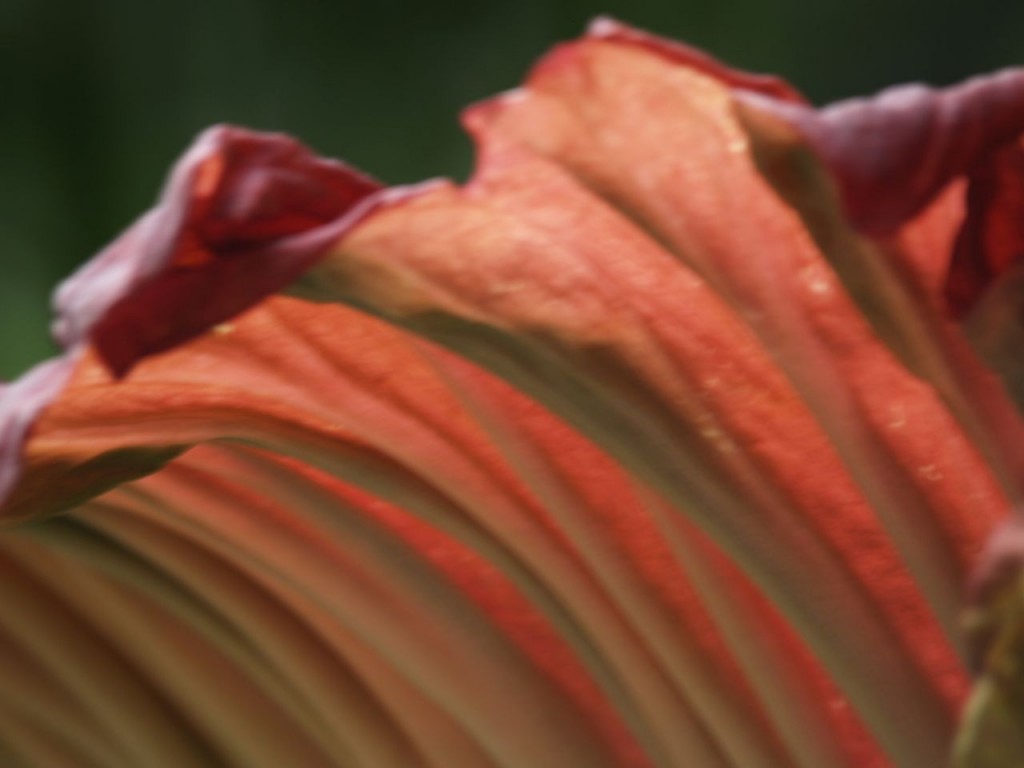
USBG Corpse Flower: July 21
My daily visits to Washington, DC’s US Botanical Garden’s corpse flower to view and photograph it have completely paid off. It is finally blooming! The spathe’s fringe has significantly pulled away from the spadix. In fact below, there are two series of photos from the same vantage point because the spathe had opened an observable amount in the hour I was there. The gorgeous purple or crimson color of the spathe’s interior is showing. As always, to best see the changes in the plant, view the photos from the past ten days (July 11, July 12, July 13, July 14, July 15, July 16, July 17, July 18, July 19, and July 20). Also, see the “Corpse Flower” page on my website that has photos from everyday that shows the whole plant so the photos can be more easily compared as well as a video that has a slide show of photos. Finally, as for the daily smell report, there still is no smell. The smell report should change tomorrow!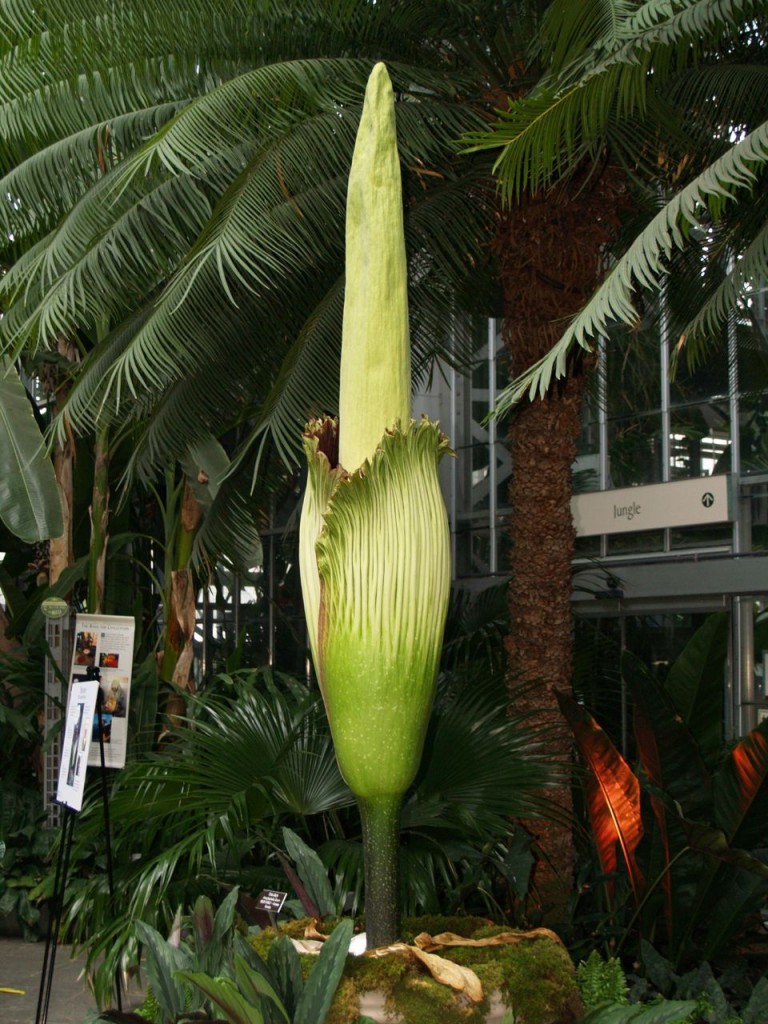

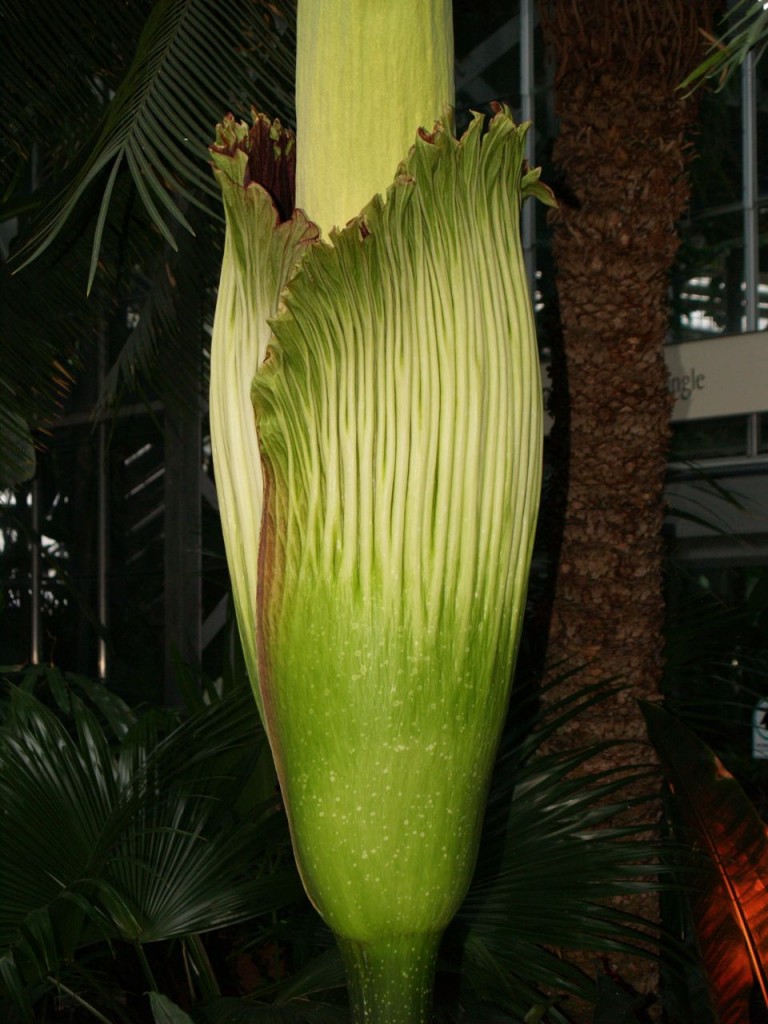
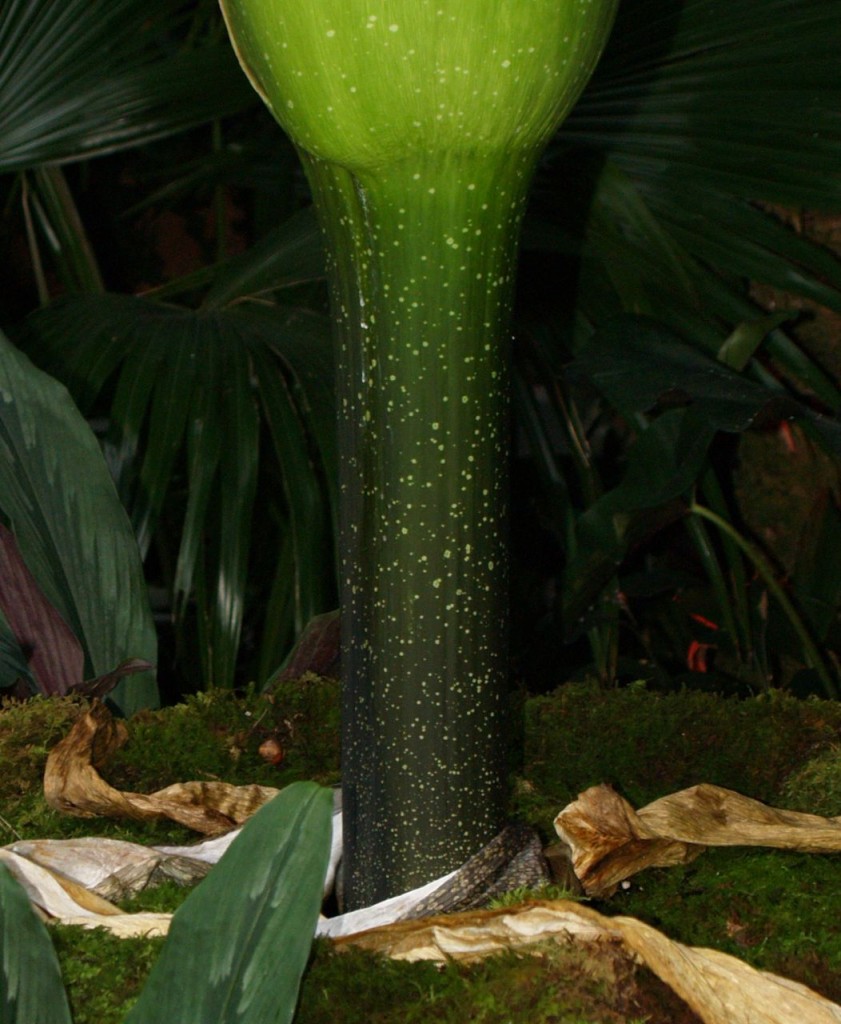
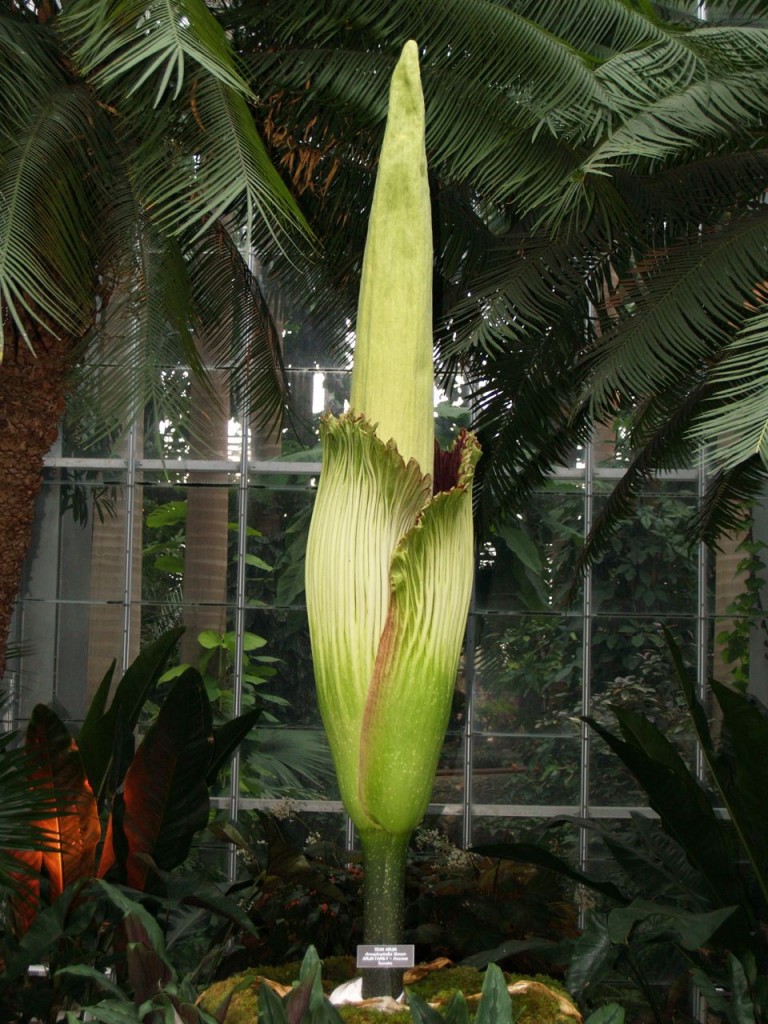
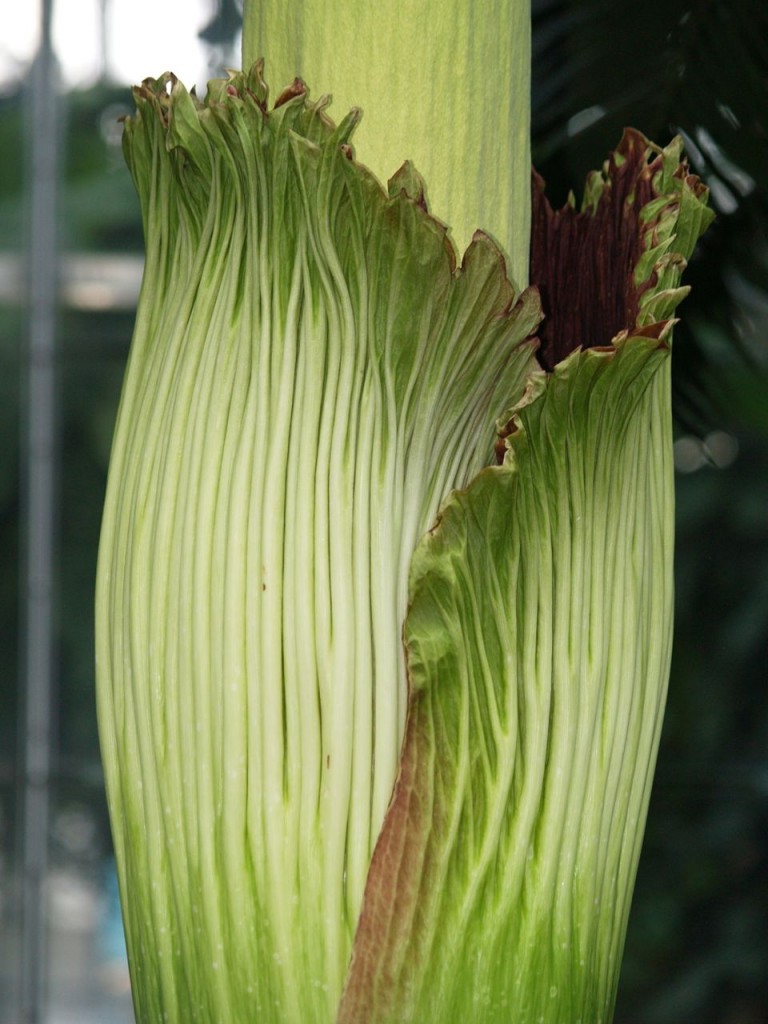
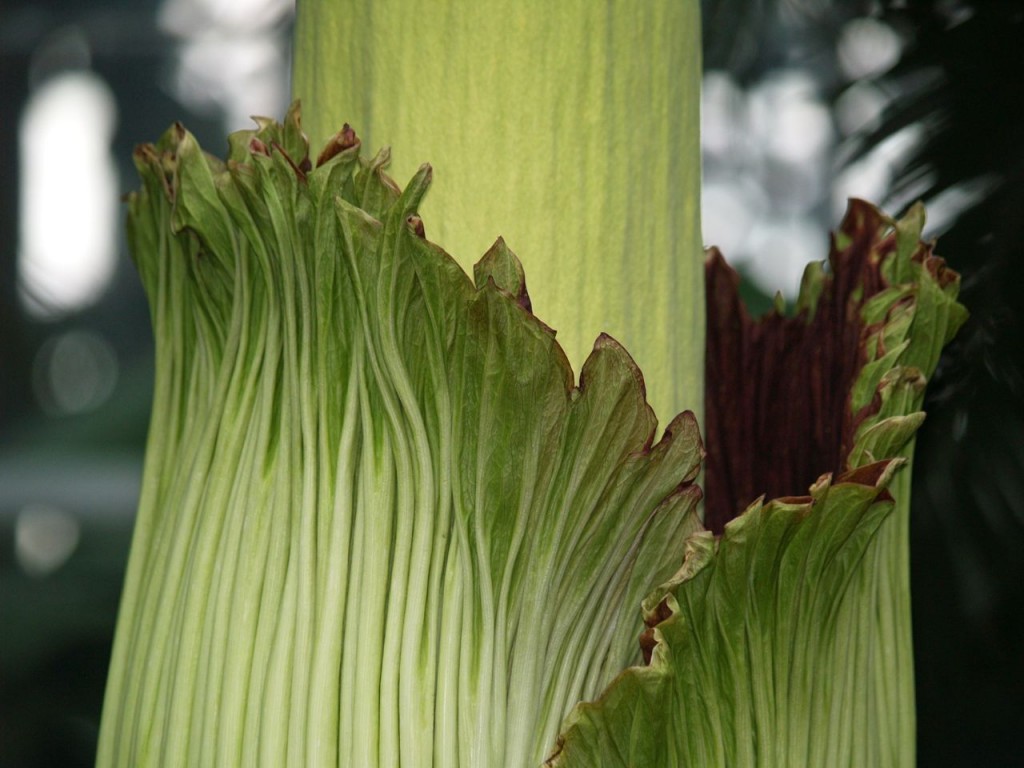
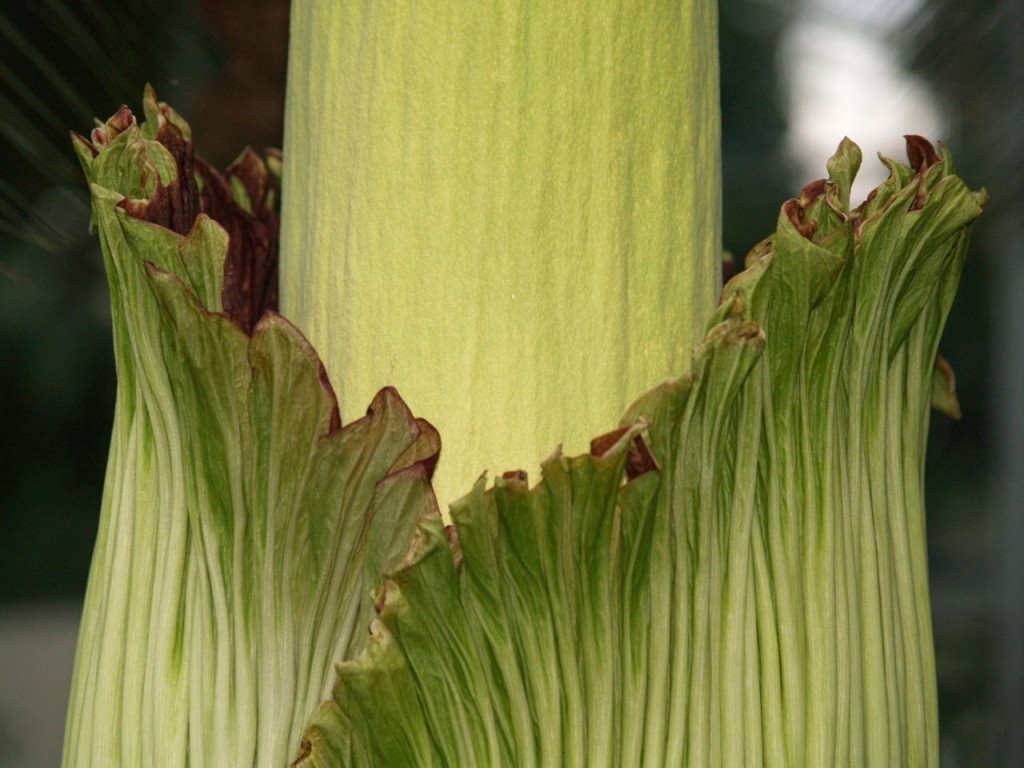
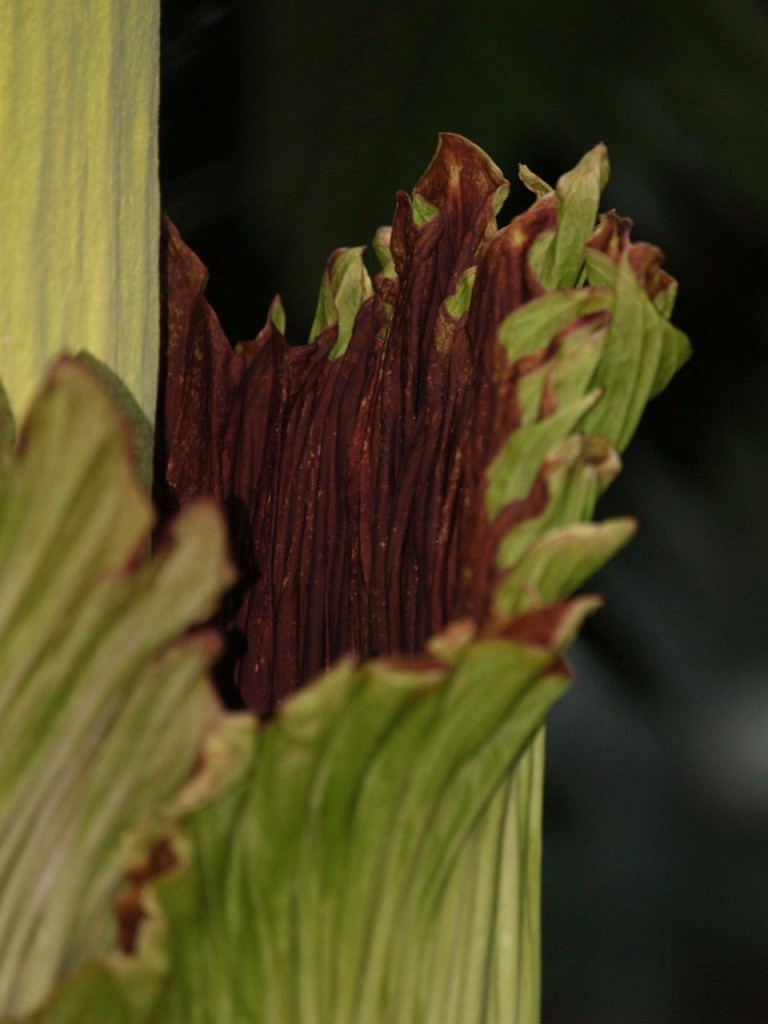

The below photos were taken approximately 50 minutes after the first three photos in this post. There were taken from approximately the same vantage point, and the amount the spathe has pulled away from the spadix can clearly be seen. 